MoreBegendings
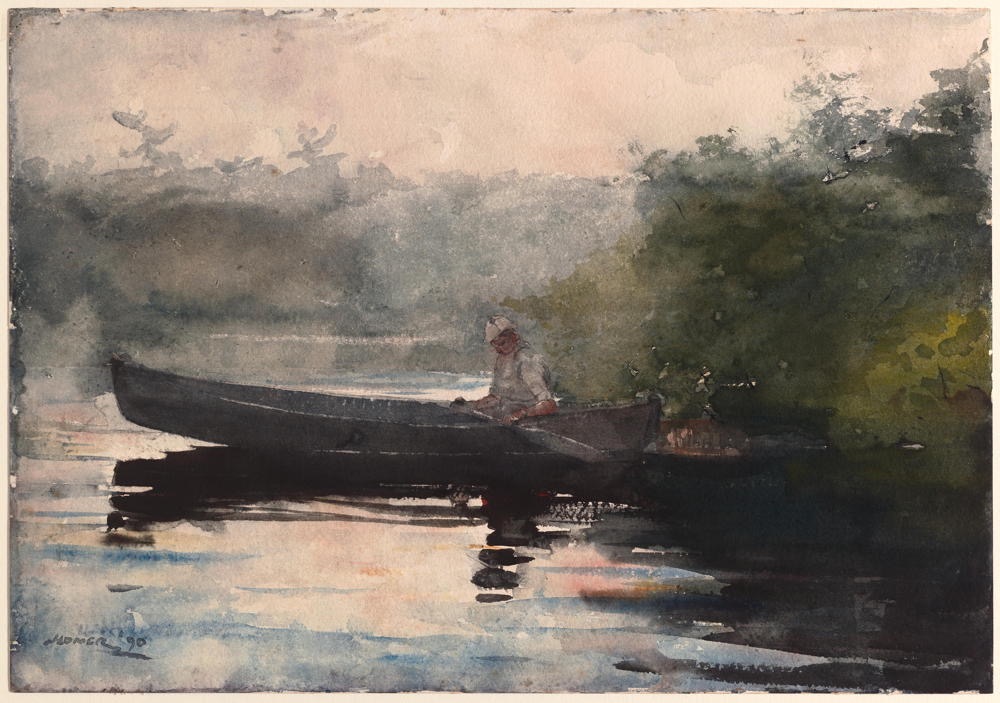
Winslow Homer:
The End of the Day, Adirondacks (1890)
" … the serious side of the practice."
Today is slated to extend fifteen hours and forty-five minutes, with sunlight visible for seventeen hours. These conditions make this the perfect day to end something. They also suggest a new beginning, for each ending abuts into whatever comes next. This day marks six years since I began this now lengthy experiment where I would try to create a new story each morning. I long ago lost the need to try very hard to accomplish this end. The stories slip out as a matter of course now. This morning, though, I wonder if this story, this final story in my Publishing Series, shouldn't be my last produced under this regimen. I began this practice following a professional disappointment and a lengthy discouragement. I thought it might prove courageous or at least foolhardy to create a story every morning to try to prove something. If writers write, it would not be unreasonable to expect me to write each morning since that's what writers do. That or else, perhaps I wasn't quite the writer I'd imagined myself to be.
I turned out to at least be the writer I'd imagined myself to be and more.
TidyingUp
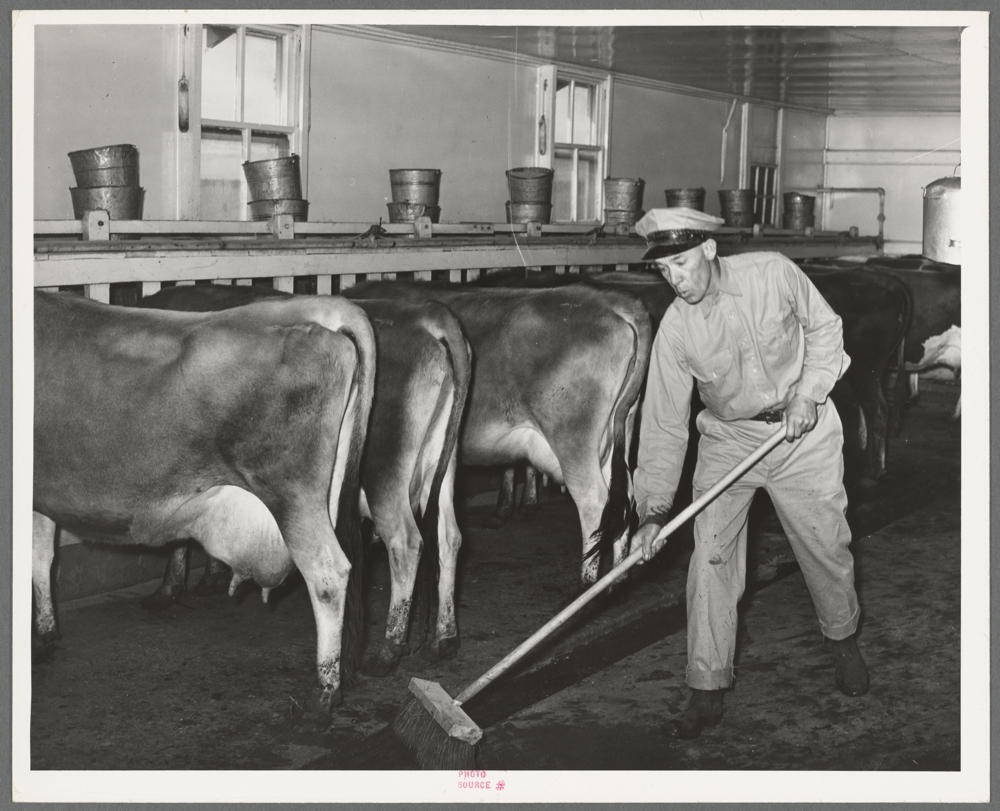
Russell Lee: Cleaning up manure in milking shed. Large dairy, Tom Green County, Texas (1939)
"It's up to the protagonist to decide what …"
Almost as if by magic, another ending arrives. The distance to the end appears impossibly long at the beginning, and it stays that way until the last few days. The morning before the final one, it might suddenly dawn on me that I never intended this series to last forever and that it, too, would be ending soon. I'm rarely ready to begin anything and even less prepared to finish. I have yet to produce what I imagined I would produce back when I chose Publishing as my theme for this quarter. I'd imagined I would have published something by now, but I have yet to. I moved closer to a point of publication, but I cannot determine for certain. I made progress preparing a single manuscript without finishing that work, though there's still time to cross that line before this series runs out of allotted time tomorrow.
Things take as long as they take.
MakingMantras
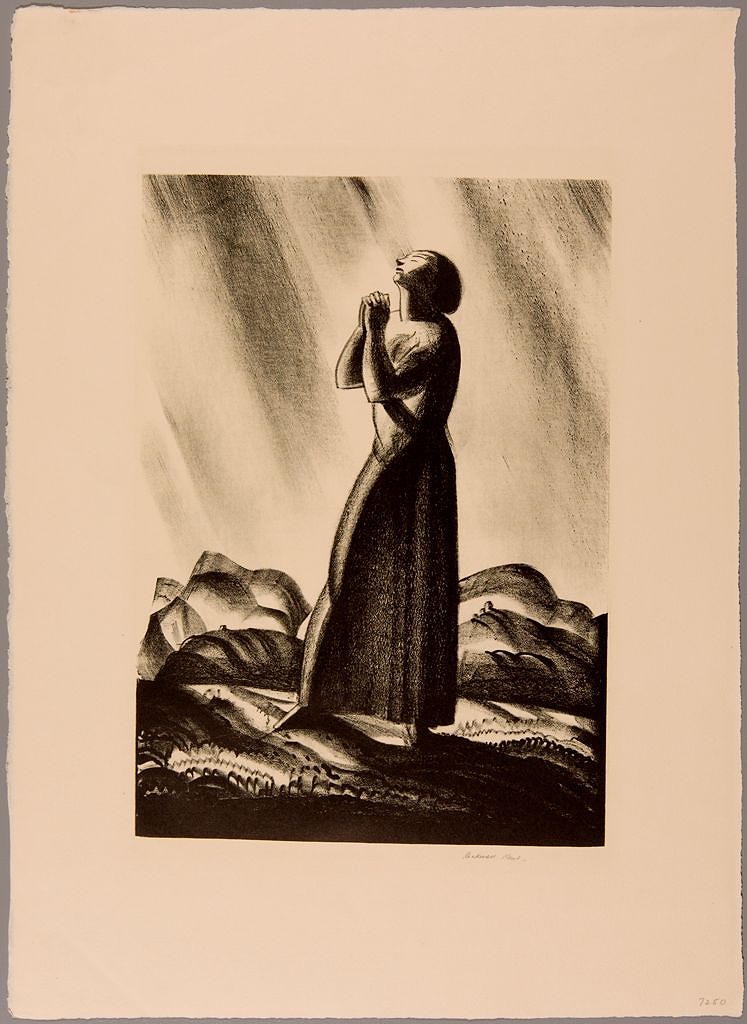
Rockwell Kent: Meditation (1929)
" … merely MakingMantras all along."
While reading beneath one of our backyard ornamental crabapple trees, it occurred to me that reading works like meditation. It seems to focus attention away as well as within, into, and without, the purpose often in doubt. I was reading a biography of John Singer Sargent, but it hardly matters the reading matter's content, for any words might encourage identical contemplations or self-similar ones. However thoughtfully crafted, the book and its contents do not serve as the sole or even the primary purpose of reading. They serve as mere mantras for the focus. They exist as context.
I was raised to believe—or somehow convinced myself—that the book was the object, the stuff that Publishing produced, but I might have been mistaken.
AngryArm
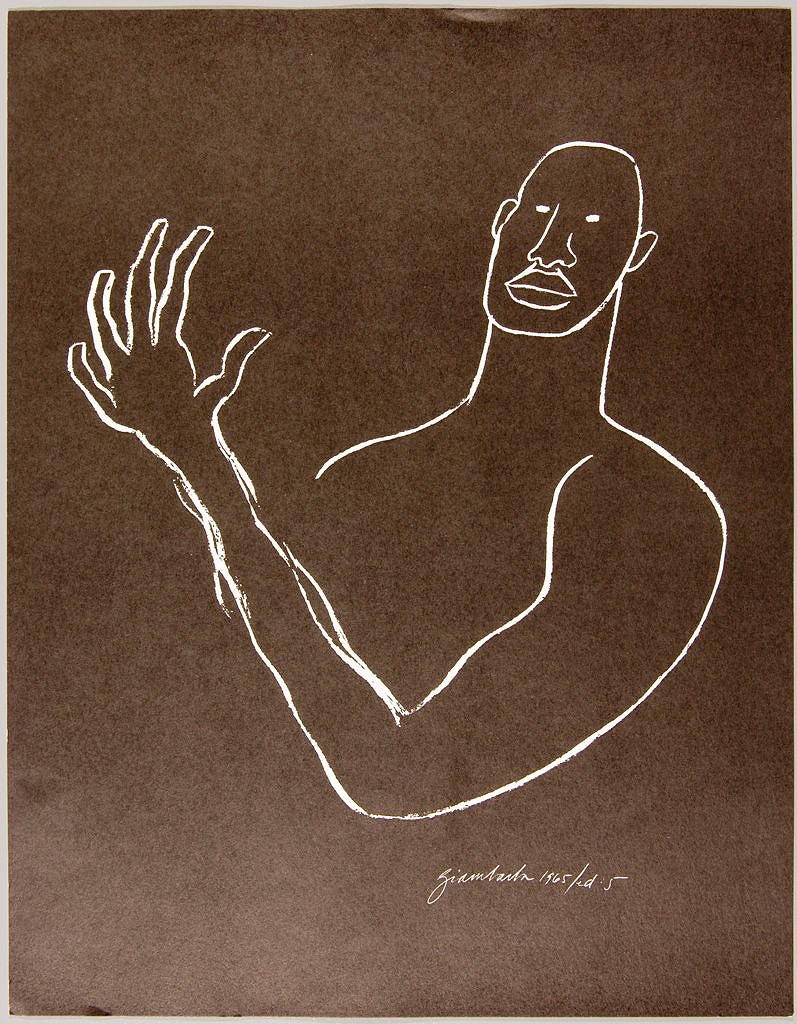
Paul Giambarba: The Withered Arm (c. 1960)
" … no fixing in the immediate offing."
I am taken by how much foreground attention even a superficial wound can command. The Vengeful god residing in my arm leaves it feeling angry and complaining whatever I do. I suddenly seem incapable of accomplishing anything without further insulting that AngryArm. I cannot play catch with my grandson without wounding the thing, so I decline to play. I cannot do anything without incurring more damage. As the list of things I cannot do without wincing continues growing, I wonder where all this might be going. The doctor who diagnosed the ailment (Deltoid Bursitis for those not paying close attention) wrote me a script for a ninety-day supply of remarkably ineffective pain medication. This prescription suggests that he anticipated a longer haul than a short one. I might be hosting this AngryArm for some considerable time to come. I try but fail not to think about this.
Now, everything seems influenced by the presence of this AngryArm, even my Publishing efforts.
TheIllusion
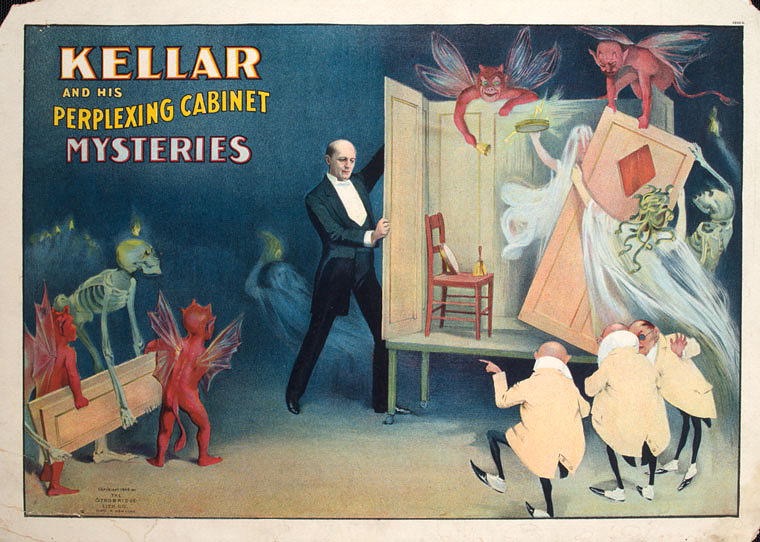
Strobridge & Co. Lith.:
Kellar and his perplexing cabinet mysteries (1894)
"The problem with communication is the illusion that it's occurred."
a common bit of folk wisdom
Publishing serves as a means of communication, and as such, it's subject to all the laws governing it. Primary among those laws might be TheIllusion, TheIllusion that it occurred. We inhabit the pointy end of eons of development of our communication channels. The very best I can claim about any of them might be that they're still subject to the same illusion that communication ever occurs. I famously struggle to keep up with my email, for instance, whatever 'keeping up' might entail. I understand that the probability of me receiving and comprehending any individual email as its sender intended remains slight, almost zero. The Muse is forever discovering that I never received the message she forwarded to me last week and, upon researching the cause, typically finds the message right where she had thought it would be, sitting plaintively in my email queue. It had somehow slipped by me without my noticing. Independent of her intervention, I never would have "received" it. It's the same for everybody.
Face-to-face oral communication seems just as likely to surprise and fail.
Vengeful
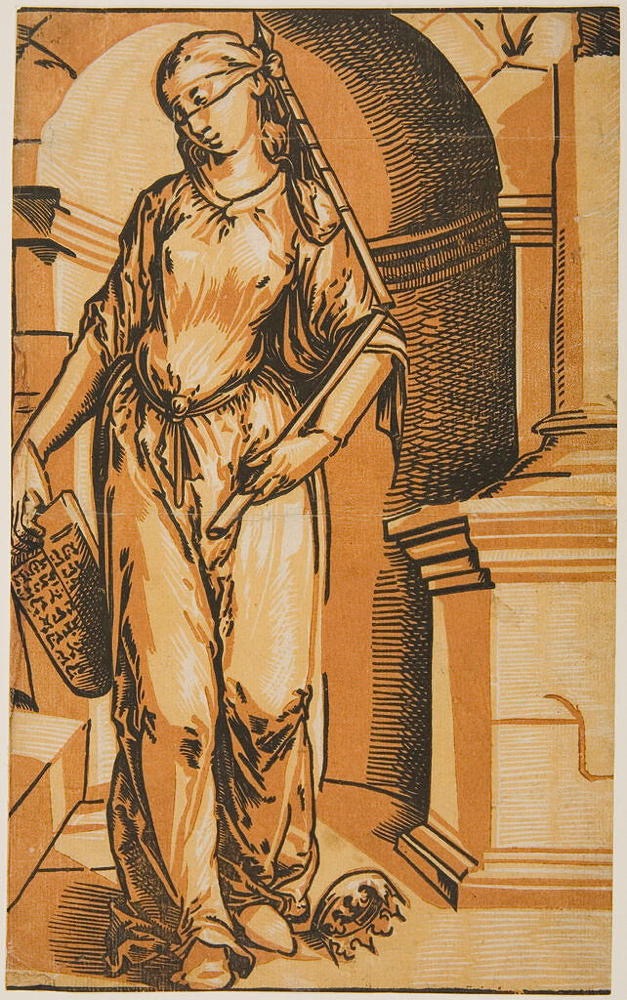
Tobias Stimmer:
Allegorical Figure of the Old Testament
(16th century)
" … one uninterested in unrequested eye removal …"
If I were to become a God, I'd choose to be a New Testament one. In the Old Testament, God seems grouchy in comparison and Vengeful. Nobody appreciates Venge. We believe those exhibiting Venge are full of it: Vengeful. Fortunately for you and me, I'm unlikely ever to receive the call emploring me to fill in, even for a long holiday weekend, for God The Father, Mother, or Other. Ain't happening. I mention this distinction between a mortal and God because of the allegory currently performing daily in my right shoulder. It occurred to me that what my doctor called Deltoid Bursitis is a dandy example of Vengeful in practice. I had been blissfully unaware of the existence of bursae until a yardwork over-exertion left me with a Vengeful God inhabiting my deltoid. What had been installed to assist the operation of a complex joint became the very model of a Vengeful God in practice.
My bursa remains ever watchful. He monitors my motor activity.
WritingSummary: 06/15/2023
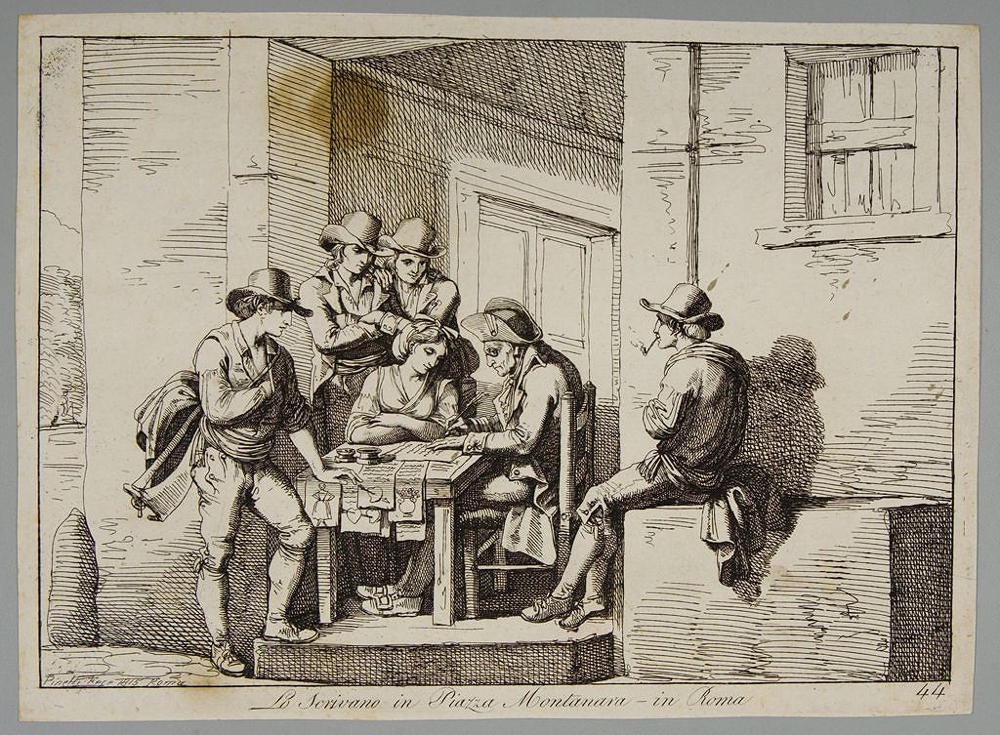
Bartolomeo Pinelli:
The Letter-writer in Piazza Montanara in Rome
(19th century)
We Inhabit Middles.
I realize I've already completed this series's final whole writing week. It might reasonably continue forever, and just how arbitrary was my decision to dedicate only a quarter to considering my Publishing issues. I've scratched some surfaces, some severely, but I surely leave remaining more questions than I've investigated. Each subject, each focus, seems to open something infinite within us. Yes, we might well find a universe within any old anything, for our curiosities reveal tremendous self-similarity. Each part of any infinite must also represent its whole; a piece of infinity might well seem indistinguishable from the total, smaller infinities retaining their context's character. Each writing week might be destined to fall short and leave more questions unanswered, but no amount of writing—or anything—looks very likely to ever get to the bottom of anything. We inhabit middles.
20YearJob
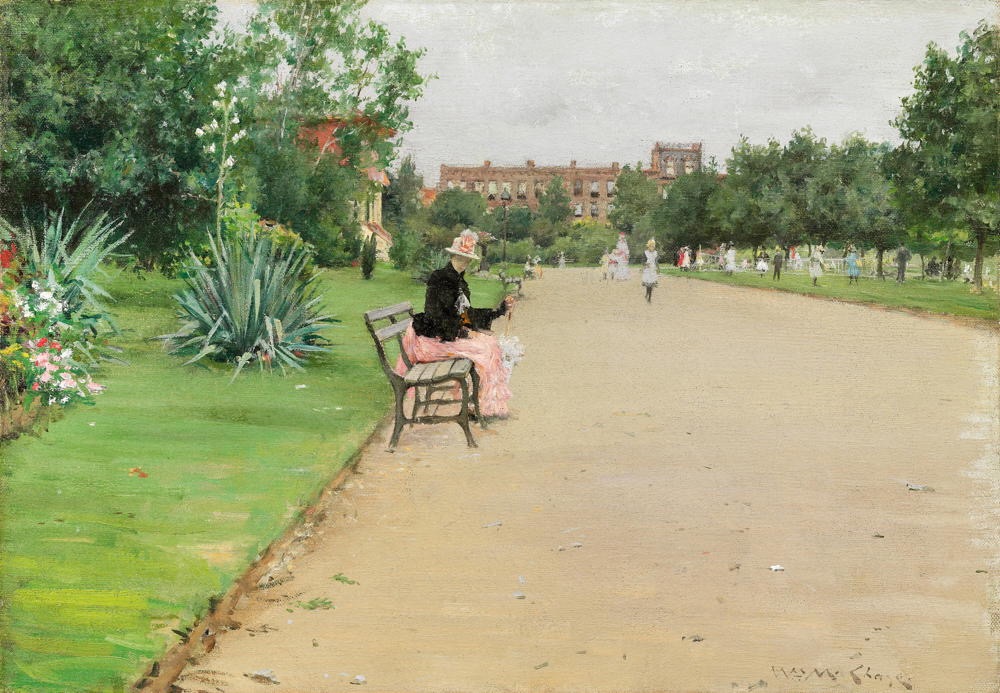
William Merritt Chase: A City Park (c. 1887)
" … knowing that probably nobody will notice."
Most of my work seems short-lived. Mowing the lawn, for instance, buys me, at most, a week's reprieve from needing to mow the lawn again. Cleaning up the kitchen extinguishes in mere hours. According to my schedule, my writing, which I sometimes think of as eternal, must be added to each morning so its reprieve extends less than a day. If I finish writing a story by six am, another aches to be born by four the following morning. House maintenance work tends to run on much longer cycles. One repaints infrequently, often a few years after it becomes absolutely necessary. I think of it as a 20YearJob, one for which I will be much older by the time it needs refreshing. It might take me three or four years to entirely paint the Villa exterior, so it’s good that its frequency moves more like an ice age.
Yesterday, I finished refinishing three cast iron-framed park benches The Villa's prior owners left behind when they moved.
Rapt
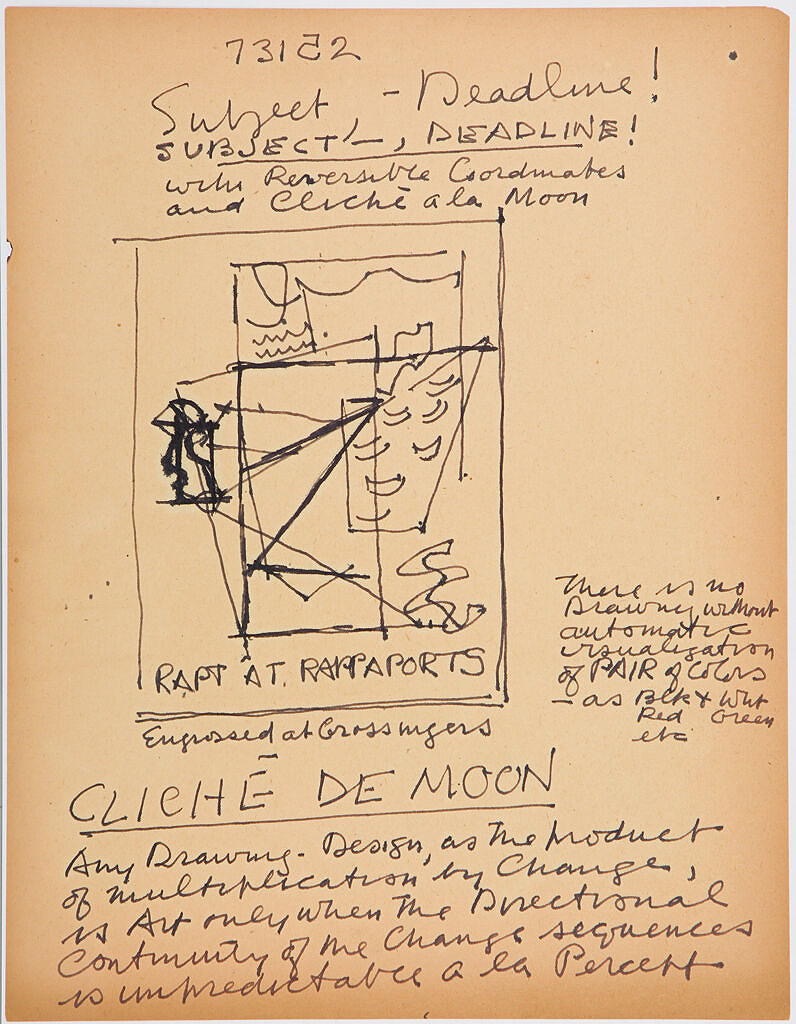
Stuart Davis: Study for “Rapt at Rappaport’s” (1952) 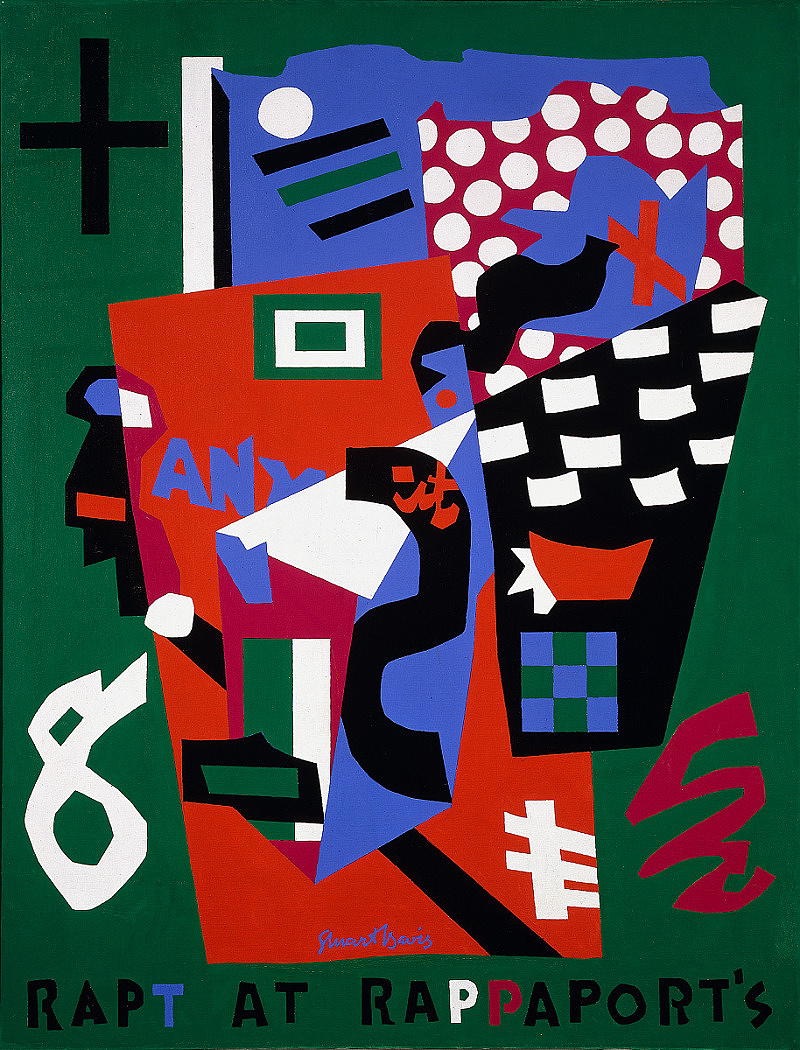
Stuart Davis: Rapt at Rappaport's (1952)
"Publishing ain't whitewashing …"
Writers and editors long ago acknowledged that authors make lousy proofreaders and copyeditors because they're too involved with and invested in the object of their efforts. One would never dream of employing any craftsperson as their quality control inspector, for use demands a separate set of imperatives than fabrication ever does. The maker should fall under a thrall with his creations, ardor which properly disqualifies them from passing sound finishing judgments. While creating my latest manuscript, I harbored deep doubts about the product of my effort. Well into the first third of the project, I complained that I had not yet found the rhythm of it and openly wondered if the concept possessed any inherent rhythm within it. Only when I was more than halfway done did an underlying logic emerge. Then I became more protective than critical, more the father than the humble subcontractor.
A form of evolution governs the creation of a finished work.
HearingMyselfThink

Follower of Frans Hals:
The Rommel-Pot Player (c. 1630)
"Nobody ever discloses greater secrets."
I believe, without hard evidence, that we each maintain a unique dialect of how we think. Unrelated to physical speech patterns, this manner of speaking to ourselves results from a lifetime of considering in the most personal possible ways. This voice accompanied us on our most harrowing as well as our most reassuring excursions. It was, quite literally, there then and remembers. It guided most of the figuring out we've ever accomplished. We might just as well consider it our most trustworthy friend.
It's a great gift when we're able to HearOurselvesThink.
Contact

Follower of Peter Paul Rubens:
The Apotheosis of the Hero (1630/40)
"We'll see where that takes us."
A year ago this week, a publisher contacted me to see if I might be interested in working with her organization. I reluctantly receive such calls because the caller often feels compelled to pressure me into agreeing to something before I understand the offer. Nobody appreciates feeling pressured into anything, so I feel baffled about why anyone relying upon persuasion or merely information to sell something would ever resort to pressuring anyone, but they do. I always ask for more details, paper if they've got it. I want to slow down the interaction so we might get to know each other before moving on to first or second base.
I've noticed a similar strategy at work when investigating the purchase of software.
Harbingers
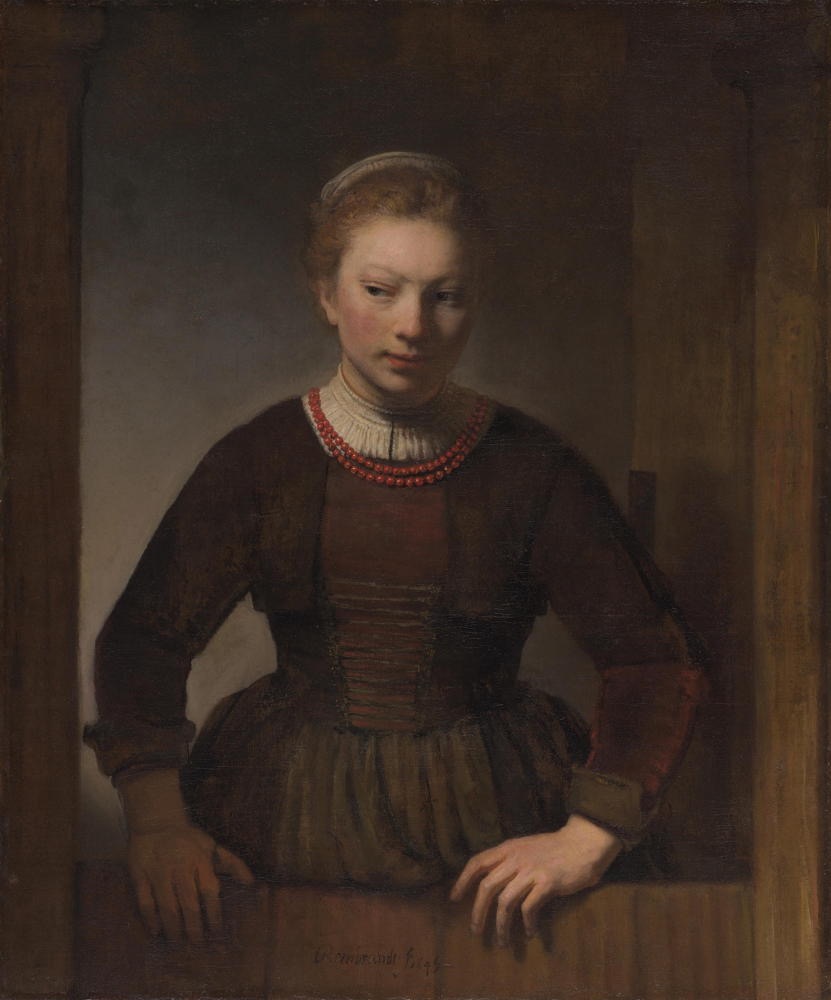
Rembrandt Harmenszoon van Rijn and Workshop:
Young Woman at an Open Half-Door (1645)
“The outcome should properly prove surprising …”
The immediate care doctor reassured me that my latest ache need not be a Harbinger of things to come. It represents a strain that, properly treated, need not become chronic or recurring. I wonder, though, when aches and pains appear, whether they're here permanently, for good, ill, or whatever. In my youth, I imagined that aches and pains amounted to karma, just desserts due to some prior shortcoming or committed sin. Smoke for fifty years and see what happens. But as I've aged, I might have started learning better that much misfortune visits without an antecedent rhyme or reason, without representing anything but fortune. "It just happened" probably explains more than all the root cause analyses in the world. I still wonder which of my maladies might become permanent companions and which might reasonably disappear over time.
A month ago, I could quack like a duck, even flap my right arm wing-like in unison.
WorkingWounded
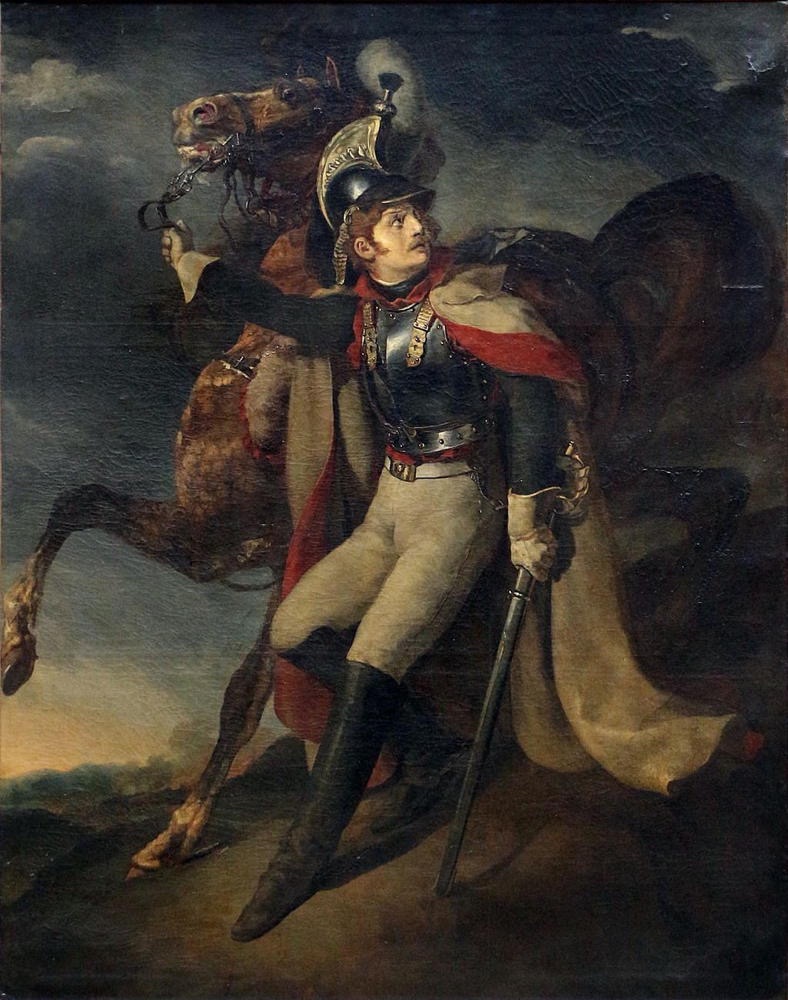
Théodore Géricault:
The Wounded Cuirassier
[French: Le Cuirassier blessé quittant le feu] (1814)
" … because that's what I do."
I admit to a certain degree of DIYdiocy. I do more than attempt to Do It Myself but sometimes seem to be actively engaging in Doing Myself In! A month or more ago, I finally set about cutting up those shrub trimmings clogging the driveway so that I could stuff them into the green waste can. After that work, an annoying ache took up residence in the region of my right deltoid, a shoulder muscle. I could manage that pain with regular doses of Ibuprofen and did. I tried to avoid activities that annoyed that spot, though just moving my arm laterally up or down could elicit a wince. I added some dedicated rest periods to my schedule and continued.
Repainting the back deck railings and superstructure brought fresh insults to my wound.
FallingInto
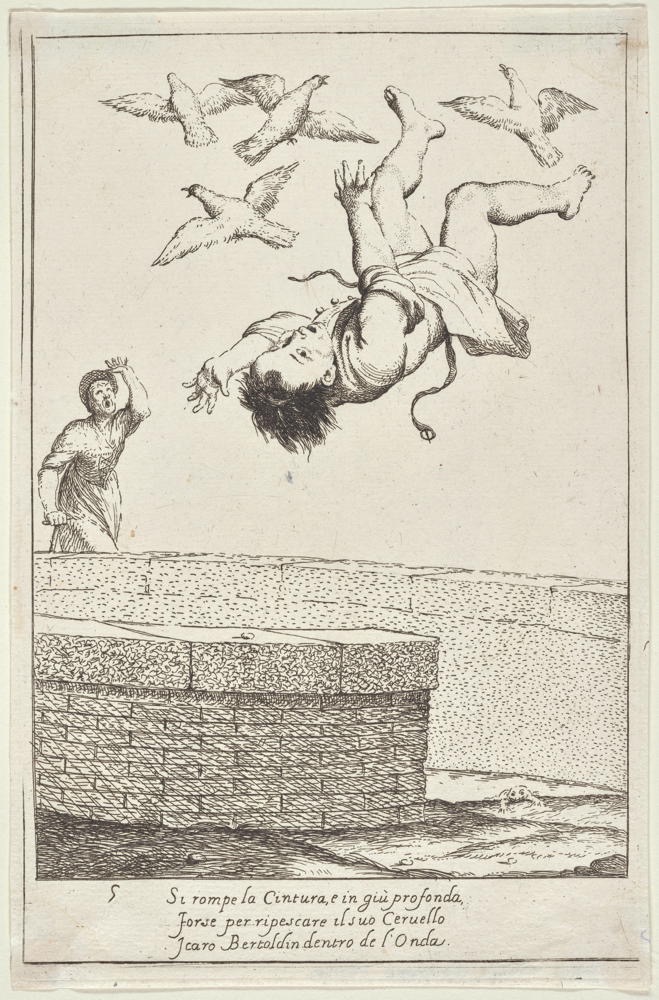
Giuseppe Maria Crespi:
Bertoldino Falling into the Fish Pond (c. 1665-1747)
"How could I not continue?"
I prefer to think about the future as something I'm FallingInto. I understand the more popular notions insisting that we create and craft or design our futures, but those operations seem severely limited. Whatever my intentions or preferences, I might, at best, be able to choose my seat. The destination's almost always out of my control. This goes double for those engagements where I've taken charge of creating something. My influence, even under those conditions, seems at best secondary. Writing my current manuscript only came about partly by design. An awful lot of happenstance guided my hand. Much of my effort was only partially consciously driven. Writing anything includes elements perhaps best described as coming together. Set up a context, and much just follows. Any practice depends upon gravity guiding some FallingInto.
I do not suggest that I am mere flotsam. I exert great influence, just not as great and not necessarily to the degree I imagine.
WritingSummary: 6/08/2023
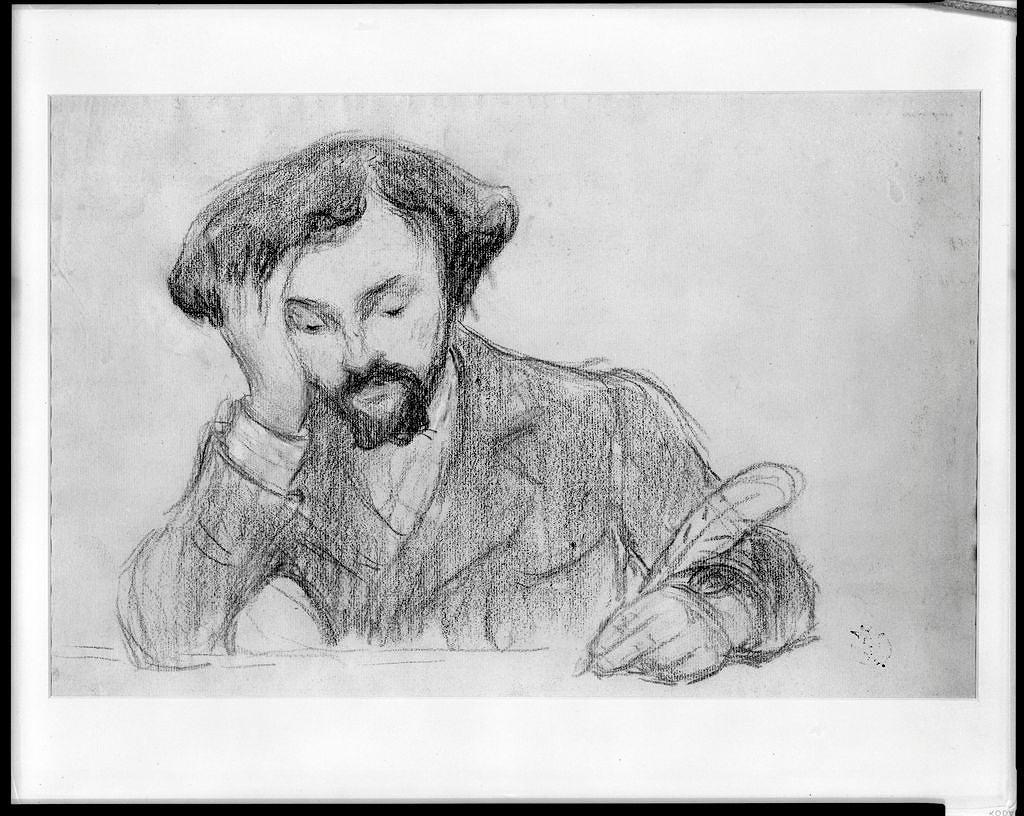
Claude Emile Schuffenecker: Portrait of a Man Writing (19th-20th century)
If Irises Carried Grudges, Our Winters Would Never End.
I feel as though I made little progress this week, what with all the diversions and distractions presently haunting me. I might be blessed with so many interesting sidelines, but the ancient Chinese curse about living in interesting times echoes in more than just the background; it accompanies the foreground, too. Our front yard iris garden might best represent this writing week. This time last week, dozens of blooms graced the otherwise barren flowerbed. Now, only desiccated fronds remain a week later, and memories of those brilliant colors and alluring scents. Iris season lasts at most ten days, yet they require tending through the entire year. In winter, careless joggers and dog walkers tromp right through their territory. Come Spring, the unpromising plants come to reassuring life again, forgiving our many trespasses, each of which we most probably unknowingly visited upon ourselves. If Irises carried grudges, our winters would never end.
CriticalEar
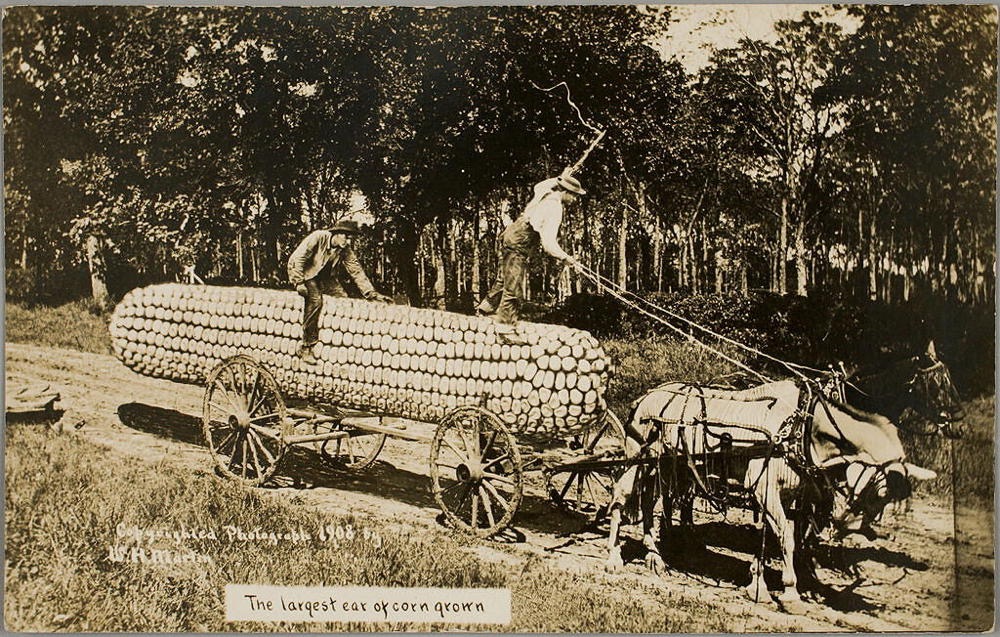
William H. Martin: The largest ear of corn grown (c. 1908)
"I might have to smother it if I expect to succeed."
I get an earful when preparing my manuscript for Publishing. I listen to the stories in different ways than I listened to them just after writing them, and also different than I did while assembling them. Once assembled into a contiguous whole, I hear different voices than I remember hearing before. After so many repetitive listenings, my ear had learned to become more critical. If I'm not careful, and perhaps even if I manage to become really careful, my ear becomes critical. My prose relies upon a certain innocence from listening ears. Experienced through a critical filter, it seems to need endless reworking. It could have been simpler, my suddenly CriticalEar suggests. It could have been more eloquent. There's no end to the little improvements the later listenings suggest, just to be helpful, only to enhance.
I'm experienced enough to understand that the time for wholesale improvement has already passed.
Diversions

Michael Wolgemut and Workshop
published by Anton Koberger:
The Virtues of Christ and the Wickedness of His Enemies
Symbolized by Diverse Birds and Beasts (verso);
The Last Supper (recto),
pages 66 and 65 from the Treasury (Schatzbehalter) (1491)
"… another good or great intention …"
Nexts tailgate my Publishing efforts as I move ever closer to concluding them, or I would be moving ever closer to finishing them were it not for the nexts crowding ever more closely and diverting my attention. I'm painting the back deck, by which I mean that I'm painting everything associated with the back deck except the deck surface, which was fabricated out of melted milk jugs and doesn't need painting. The railings and pergola-like superstructure above need repainting, so I set about to sand, wash, and sweep before settling into painting, a three-coat diversion that might take me a week to complete, what with the other diversions swarming my space. I started arranging to buy some tee shirts yesterday in lieu of painting and also instead of Publishing because The Muse is running for public office, Port Commissioner and I'm her campaign manager. Buying tee shirts pretty much marks the official start of her run. I'd been feeling delinquent because of all the Diversions lately tailgating my every movement.
I'll make no excuses or no concerted ones.
TechSupport
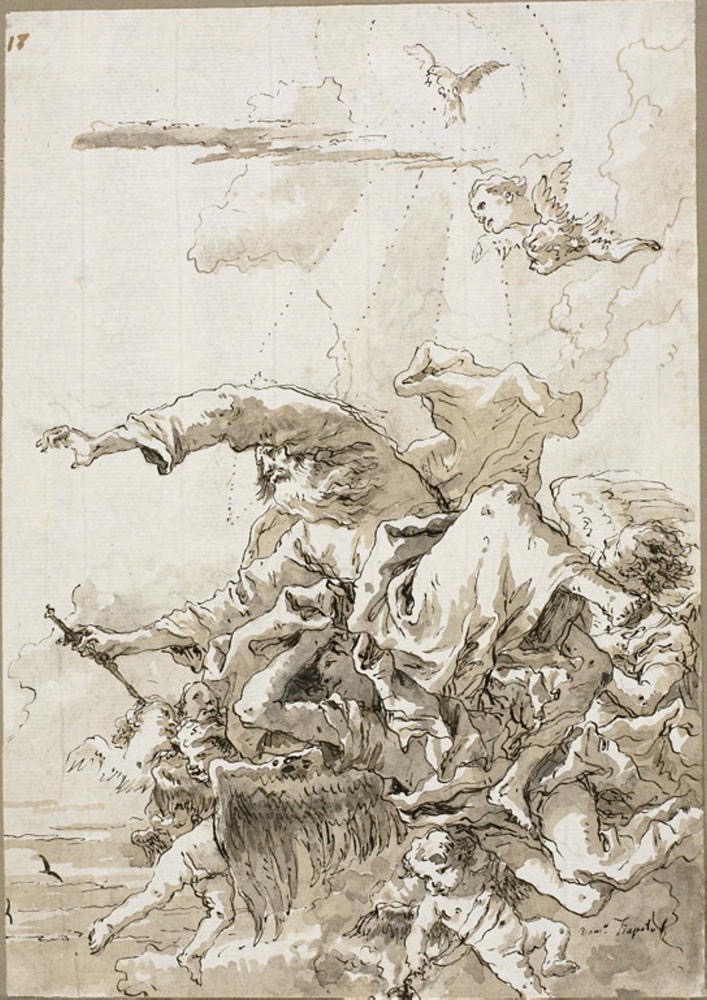
Giovanni Domenico Tiepolo:
God the Father Supported by Angels in Clouds, II (c. 1759)
"I once insisted that I would somehow maintain my naive state …"
I foolishly swore an oath when I was first introduced to what I referred to then as Barbie and Ken Computers. I referred to the so-called personal computers, those handy, steadily shrinking little machines we're not supposed to take too awfully seriously but do. My oath insisted that I would do everything in my power to remain a naive user of the damnable little things because I'd seen otherwise sentient beings disappear into some passionate swirl of technical engagement. Whether that attention went into coding or merely formatting didn't matter. My nonrefundable time mattered to me, and I swore my oath in the naive belief that I might somehow possess the power to make good on it, which, of course, I didn't.
To engage with technology inescapably transforms anybody into their own TechSupport.
TeachingMyself
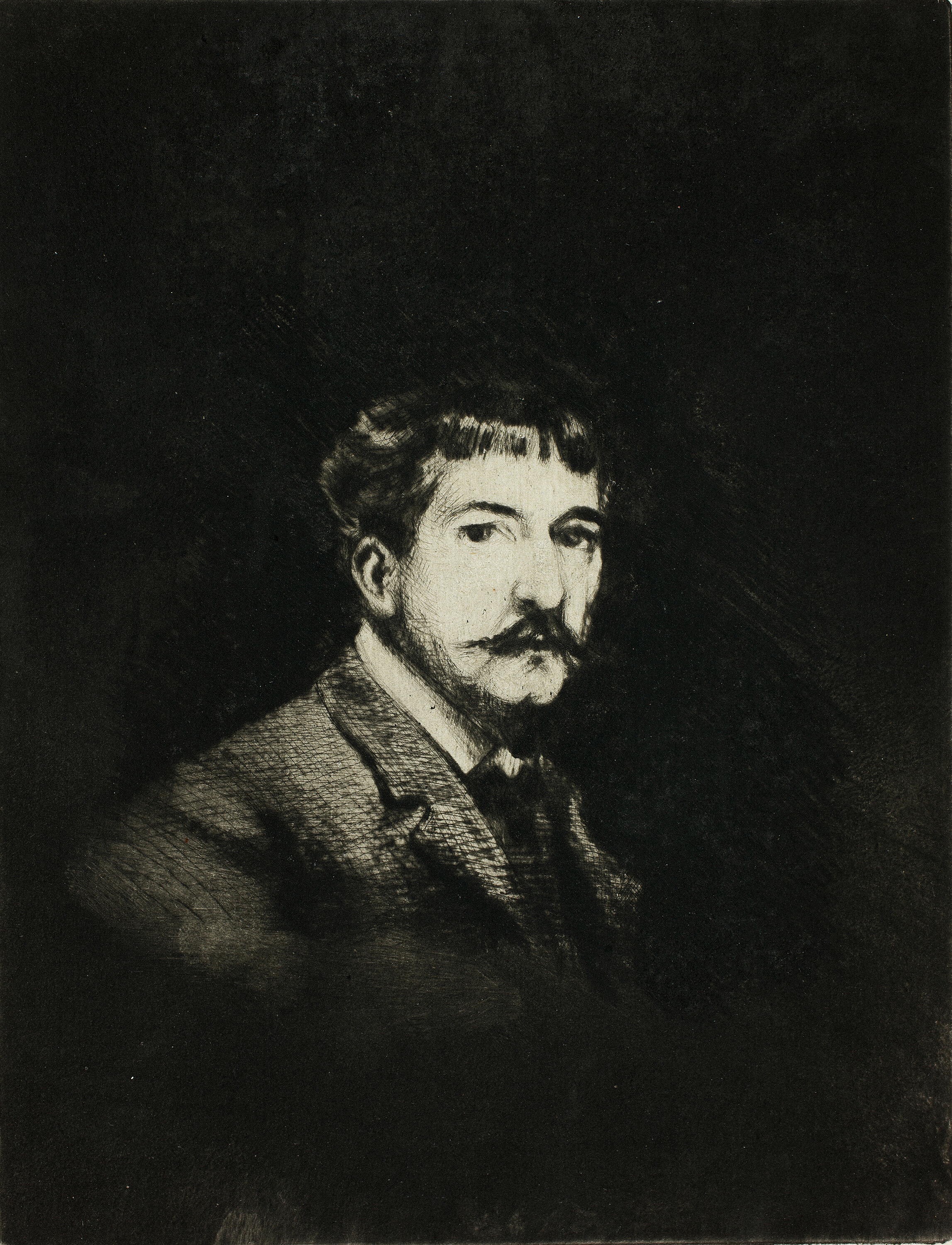
Theodore Roussel: Portrait of Myself (1901)
"Teacher, teach thyself."
What sort of book have I written? What does this manuscript aspire to become, and what have I achieved by creating it? These questions dominate my internal dialogue as I listen to this almost-finished work for the very first time after spending months producing it. The story–the narrative arc—seems familiar but not overwhelmingly so. I only sometimes know where each story's going from its beginning, for I seem to have been blessed with a remarkably short memory. Each story's conclusions also seem familiar, though I often feel that I hadn't previously recognized some aspects. I often think the endings, in particular, exhibit a certain eloquence, a sense of accurately summing up something, but what am I reading? Fiction or non? Biography or vanity? Gibberish or wisdom or some tragic combination of the two?
The work seems just fictional enough to hold attention, though I based most of the stories upon actual events, however embellished.
StoryTime
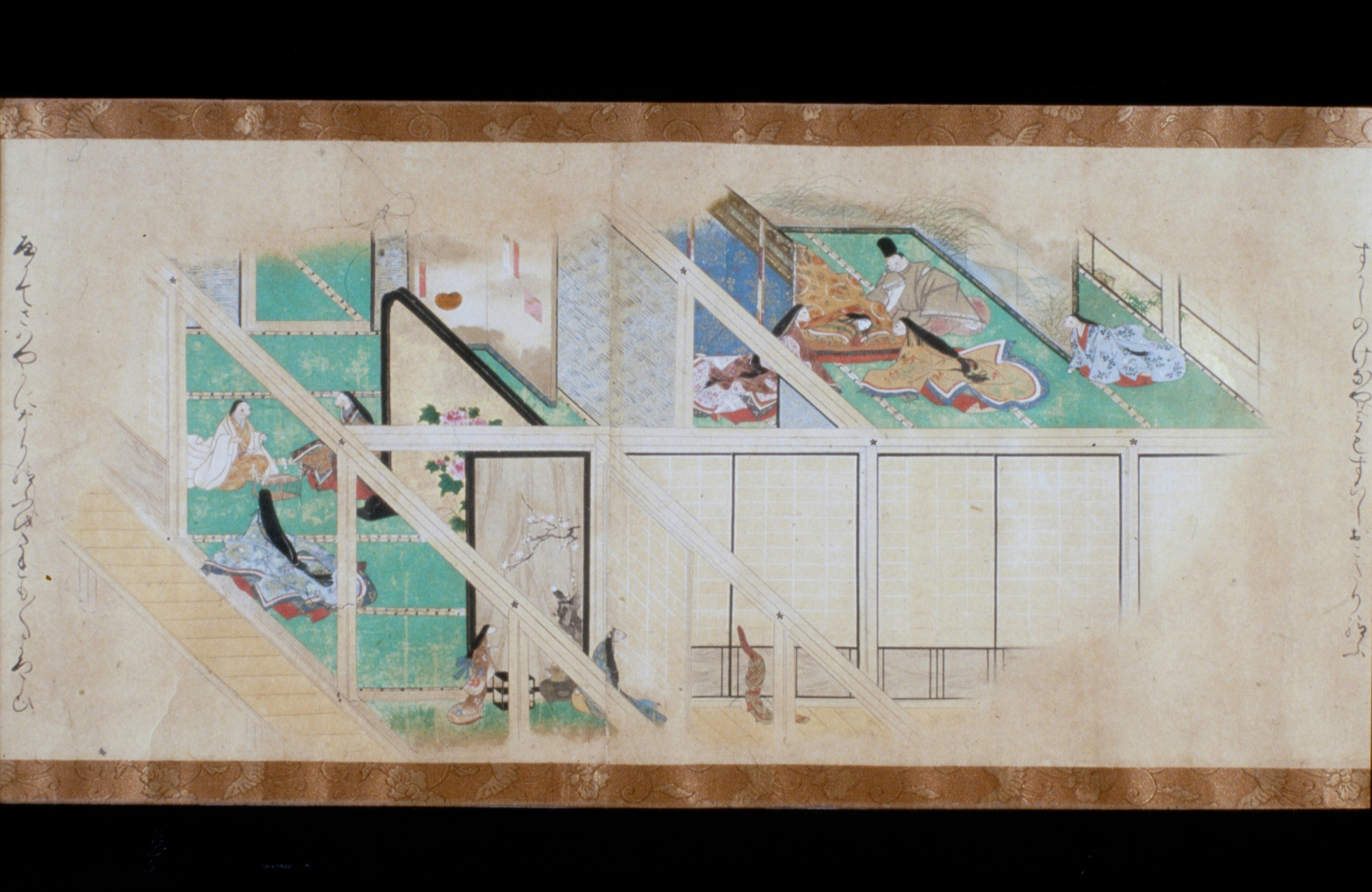
Attributed to Sumiyoshi Jokei:
A Story of Crickets (second half 17th century)
"The sweetest dreams always came before sleep …"
When I was a child, StoryTime was my favorite time of any day. My dad used to read to his children. We'd gather around, me often perching on the back of the couch, for the first imperative would always be to get just as close as possible to the narrator. The little sisters tucked in closest. He'd smell of aftershave. His baritone resonated whatever he recited. He was one of those who could read the stock market report to rapt audiences; the story's content always seemed much less important than his performance.
But even when he was unavailable to read, someone would read aloud, the older sister or even the youngest one when she was first learning to read.
MindSetting

Adolf Hohneck, After Gustav Friedrich Schlick:
"My Peace of Mind is gone" [Faust] (1834)
"I could found The Truly Terrible Publishing Company to distribute my mediocre works out into an already grossly over- stuffed marketplace featuring ever fewer interested consumers." from my Success Series, TheGames, 12/26/2022
Sitting down to finally read through that freshly compiled manuscript proves impossible. Its author feels guilty instead. He senses he might be better off if he just skips reading through the result. He expects not to like what he's created as if the mere act of reading it could only disclose a previously undetected fatal error. If he was to be honest with himself, he could only reject the work and relegate it to history's ashcan, humiliated. So instead, he dances around the job, grateful he doesn't have a printer powerful enough to render its three hundred-plus pages to paper. He distracts himself, busying his attention elsewhere, hiding out. He cannot find an appropriate mind with which to engage in this work. He consequently feels justified in just shirking this necessary next step.
Perhaps he could just move to assembling the next series in line and become, rather than published, more accomplished at assembling, a necessary skill in the vast Publishing world.
OldWeaknesses
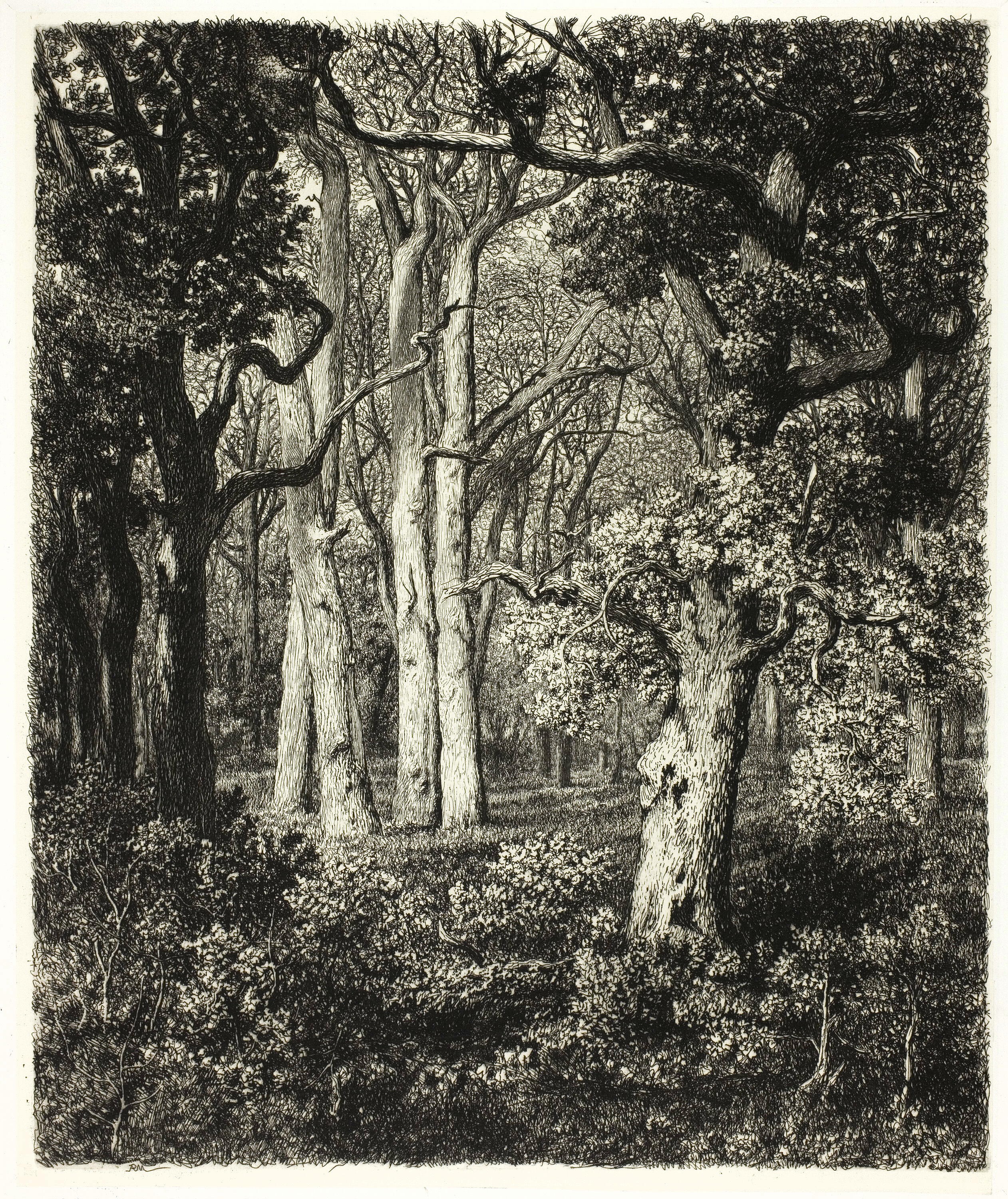
Adolphe Martial Potémont:
Old Oaks at Bas Bréau (c. 1865)
“ … shamelessly incorporating our OldWeaknesses …”
I remain a change skeptic. I see clear evidence of change but perhaps clearer evidence that nothing very drastically changes. I remain who I always was, changes in context probably contributing more to the appearance of change than to any substance. I remain distinctly recognizable, even if my once girlish figure has disappeared into belly and sags. I still feel fairly youthful for my age. My OldWeaknesses remain if more contained than they were at times. My tastes have expanded some. My palate more refined. My experience clearly greater, but the unknowns still far outnumber the knowns, and my unknowables seem essentially unchanged across decades. I remain remarkably contained.
I suspect that my OldWeaknesses are my secret strengths.
WritingSummary: 6/01/2023

Johann Andreas Benjamin Nothnagel:
Hermit Writing (18th Century)
A Decent Chance Of Becoming Requitable
Now that I've finished assembling my manuscript, my schedule allows me some distractions and respite from that all-consuming focus. I became a wannabe handyman again, entering The Home Despot only to have my desires dashed by the harsh realities they almost exclusively dispense there. Between that visit and a following one to a lumber yard, my grand plan to accomplish something besides manuscript assembling fell apart. I took these experiences particularly hard, for tight on the sense of success completing assembly had brought; I'd thought myself invulnerable to disappointment, only to learn better, by which I, of course, mean worse. I realize that my small successes influence little, almost nothing, yet they still feel consequential, at least until this old world starts dispensing its usual disappointments again. Again, I'm reminded of why I became a writer. It allows me to inhabit a world primarily of my own making, where my notions of what's possible hold a decent chance of becoming requitable.
OnSpec
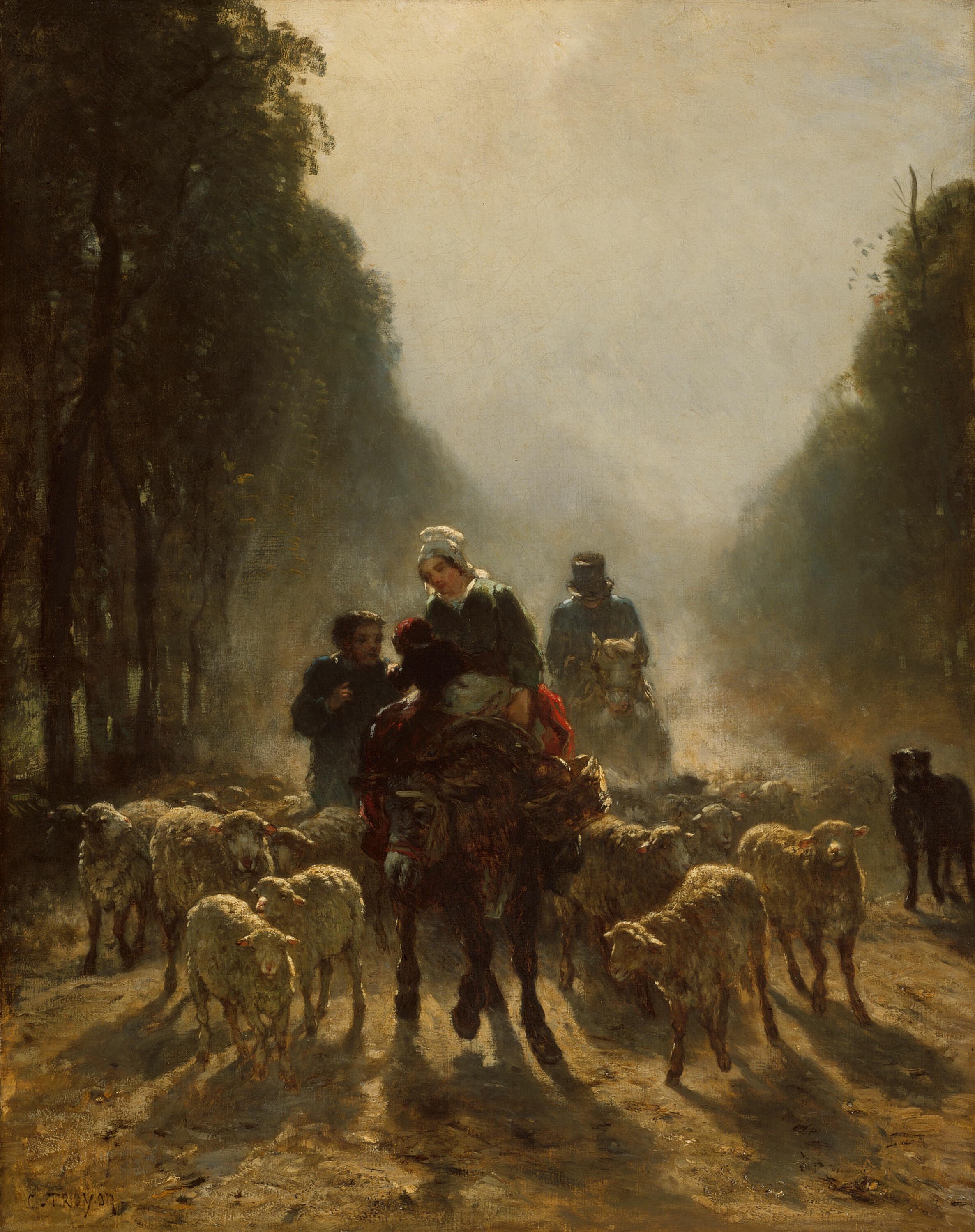
Constant Troyon: The Road to Market (1858/59)
" … worth gratefully beyond measure."
It pays nobody to misunderstand how Publishing works. It does not work like most markets or, depending upon one's ability to swallow experience, it works precisely like all markets, which is to say it works mindlessly. Those who believe they can predict how a particular work might sell, especially if from an unknown author, fool themselves first. Those who believe their book might make them rich and/or famous would be better served investing in lottery tickets, where the odds are somewhat better than those offered by Publishing's invisible thumb. Invisible hands put in their place, one need not necessarily remain naive to engage. Donald Trump, Jr., barely literate by most accounts, produced a best seller, but by the most tried and true method yet devised. The Republican National Committee purchased a hundred thousand dollars worth of the forgettable title "Triggered" the week it was released for use as "collateral," giving away a "free" copy with every donation. Trump's re-election campaign repeated that purchase with an even bigger buy. This market manipulation has become common among some wildly successful authors. You'd readily recognize their names.
Random House must be the most accurately named Publishing house ever, for the markets it serves primarily serve randomness to its players.
Read

Nicolas Lagneau:
Elderly Man Reading a Book (C.1650)
" … one can be fairly certain it isn't …"
What does a writer really do? This kind of question seems useful, whatever the profession, for professions notoriously label themselves as something other than the professional's primary occupation. A cook might spend considerably more time prepping than cooking. A typical astronaut might spend less than 1% of their time actually astronauting, the balance spent primarily in training. Surgeons can only spend a few hours each day in surgery and expend the balance of their days engaging in all the ancillary activities attendant to performing surgery: diagnosis, evaluation, follow-up, consultation, etc. Nobody actually does what they're advertised as doing, not primarily, and a writer's no exception. So what do writers do in lieu of writing? They read.
Every book I've ever read about how to become a writer prescribed precisely the same regimen: Read.
Poifection
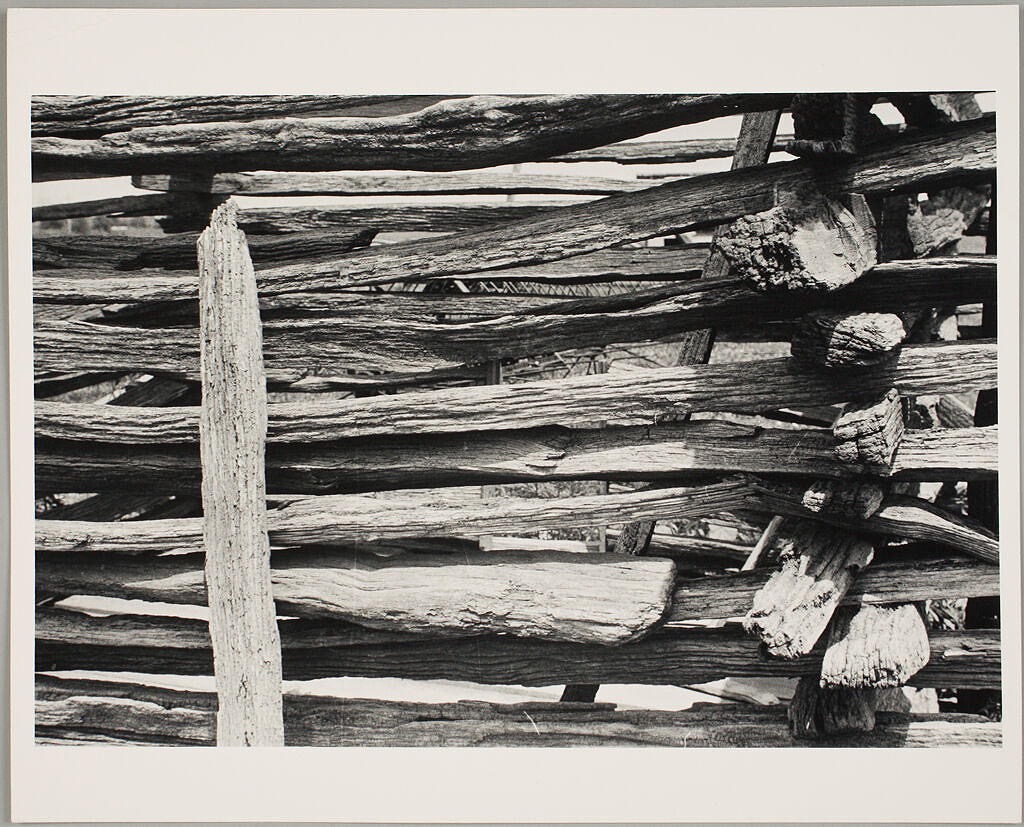
Ben Shahn:
Detail of a log fence in central Ohio (1938)
"It must have been a form of magic …"
Nothing amplifies a sense of accomplishment like a long lead-up. Finish anything quickly and effortlessly, and little sense of elation accompanies the closure. Struggle over it, though, and it seems like a very big deal, indeed. Even the more evident and normal surface imperfections might seem to disappear in the shadow of the resulting joy. And so it seemed for this dreamer who set out to publish one of his works into something resembling a book. He learned that books do not just happen, nor are they the inevitable result of the concatenation of individual parts. They must be crafted, reworked, and reimagined, whatever their original form or concept. Much picky work and many unexciting details combine to finally produce something resembling a finished product. There's even more effort required after, but the appearance of something resembling a book works as a new beginning, a platform from which further adventures might resume.
I somehow managed to stumble upon the secret, that magic something allowing me to proceed to Go and collect my obligatory Two Hundred Dollars.
PickyDetails
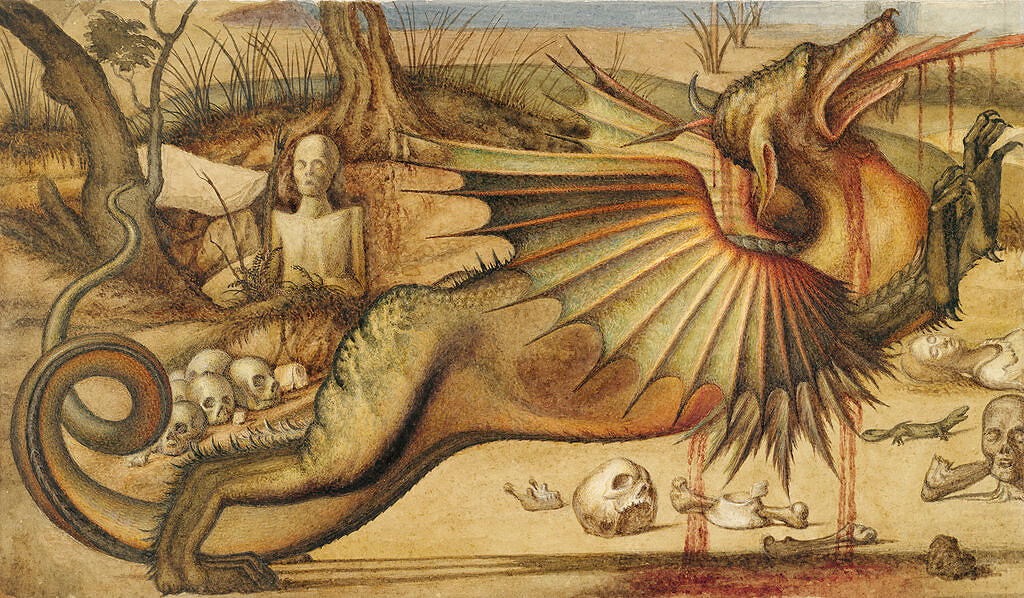
Charles Herbert Moore,
Copy after Vittore Carpaccio:
Much Reduced Study of the Dragon in
Carpaccio's Picture of St. George and the Dragon,
in the Chapel of S. Giorgio dei [sic] Schiavoni, Venice, 1876
"I'll never be much more than not quite a rank amateur …"
Once assembled, my manuscript must be printed before one more round of rereading and review. The formatting's not quite right, meaning I've entered the long-dreaded PickyDetails part of this Publishing process. I've long dreaded this stage because I have not even nearly mastered my manuscripting software, which seems by any measure an absolute behemoth. It does too much for any app even to attempt. Being a purported master of so many realms, the user who seeks no more than an informal relationship seems sunk from the outset. A unique vocabulary seems at least necessary to make any headway, and I still have not begun to master even a pigeon-English dialect for this one. The app comes with hours of detailed tutorial videos which introduce the app in curious slices. These videos induce sleep better than a bootleg prescription of Nembutal. Five or six years of experience with this app still leaves me well within the Naive User classification.
The question comes down to how I might accomplish this.
Onward&Inward
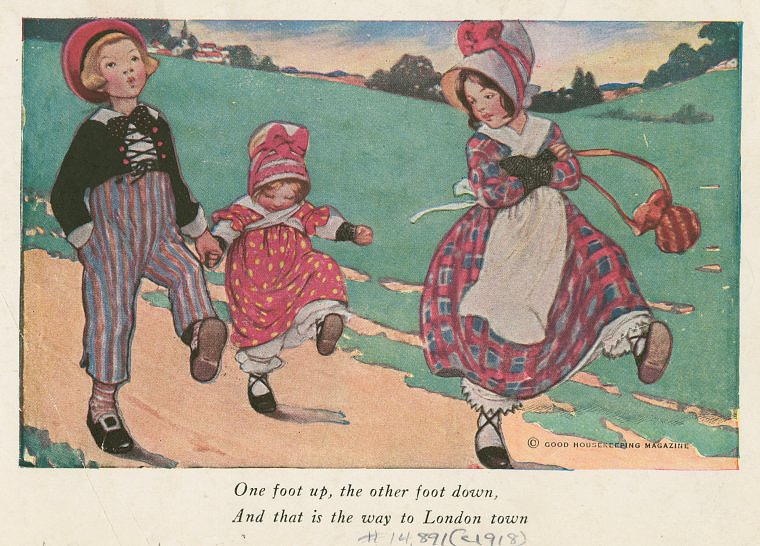
Jessie Willcox Smith:
One foot up, the other foot down (1918)
" … exclusively produced by fools like me …"
Two months later, I stumbled across a finish line of sorts. I finally put together that manuscript I started assembling sixty days ago. This achievement amounts to more of a milestone event than a finish line one, for many subsequent steps remain along paths as yet clearly charted. I do not yet understand where this thread continues, just that I'm not at the end of it yet. However, this event still feels momentous, for assembling this bugger was a genuine struggle. Much of the effort required patience, a commodity perennially in short supply, especially when and if one's anxious to finish. The more one wishes to accomplish something, the more difficult it becomes to achieve. I suspect that if I could only become indifferent to accomplishing anything, my life would become a breeze, but without enough passion to sustain anyone, let alone me. Besides testing dedication, frustrations help maintain momentum and purpose. I've made progress! Sixty-six thousand, nine-hundred and ten words, projected to produce three hundred and thirteen pages when printed. Estimated reading time: four hours and forty-seven minutes.
Next comes some different challenges.
MixingMetaphors
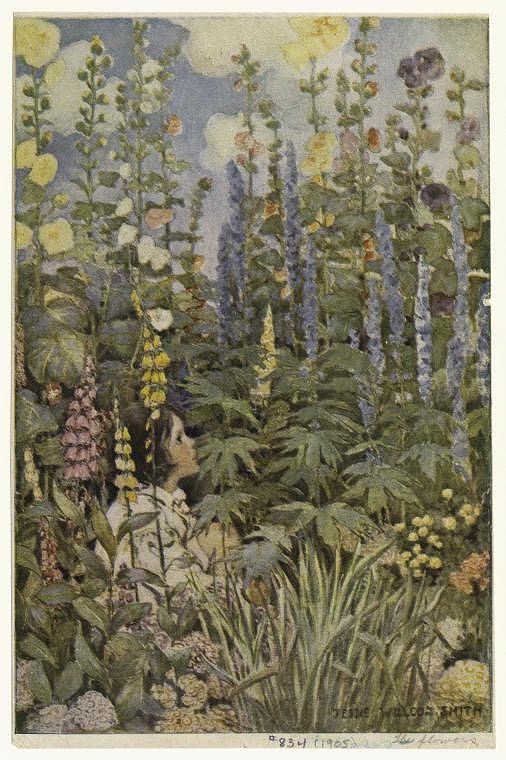
Jessie Willcox Smith:
Girl seated in flower garden (1905)
"Beware of good advice and even warier of better."
As I assemble my manuscript, I catch myself unable to imagine its contents. Yes, I wrote every word, but even after creating each story and reading through each several times, I cannot quite bring to mind most of its contents. I carry a general impression of whatever's between the covers, but the details escape me, or they would escape if they'd ever been captive. I sense that I might be especially stupid to find myself unable to crisply recall what I've written. When I reread a story, I quickly realized it was mine. I recognize the voice. I usually even recall the context within which each one emerged, but I'm almost at a loss to describe much of the manuscript's contents absent that prompting. I consider this a serious shortcoming.
Like all advice-givers and consultants, I once encouraged my clients to start with a singular focus.
Introduction

Jessie Willcox Smith:
Heidi introduced each in turn by its name to her friend Clara (1922)
The Introduction tends to be the last chapter written and the first one read. The author might have drafted an Intro as at least a placeholder before writing the contents. That one better represented the writer's intentions but intentions rarely survive encounters with a keyboard. Like every paper you tried to write to the outline you were instructed to create before you started writing, writing takes intentions in different directions. By the time the author's finished writing, he holds a firmer impression of who he's become while creating the manuscript. More likely, it won't be until after he's finished assembling the manuscript before he finally manages to catch up with himself and affect some sort of Introduction. By then, he will have become different from the aspiring author he was at the beginning and even different from the more seasoned hack he became after he'd finished writing. The proofing and sequencing effort couldn't have helped but change more than just his perspective. It changed him into someone needing an Introduction to himself.
I have watched myself as I've crawled through this latest manuscript assembly.
WritingSummary: 4/25/2023
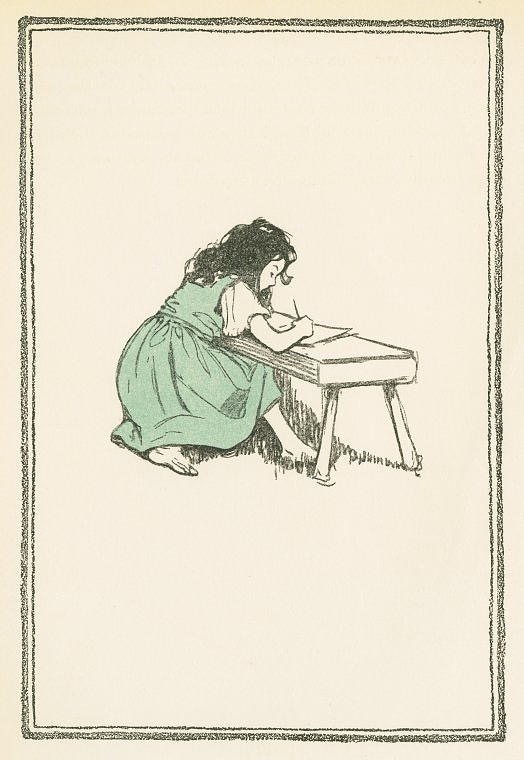
Jessie Willcox Smith: Heidi writing (1922)
Refreshed if Groggy
I primarily create my weekly writing summaries for myself. I need the reminder of how I have spent my week, of what I've discovered. Once written, an insight's quickly forgotten, buried beneath subsequent discoveries. As I've assembled my latest manuscript, I have discovered plenty. I've been continually stumbling upon identities I'd forgotten I'd ever assumed, stories written in stone but still somehow lost, bits and pieces needing connecting. These stories do not just connect themselves. Connection requires deliberation, focused attention, and clear intentions. I catch myself over-anticipating creating these summaries. Come Thursday, I foresee a lengthy effort coming Friday morning. Often, something happens on Thursday that leaves me late to bed. The alarm rings almost viciously come early Friday morning. Still, I finish the summarizing effort, pleased with myself for having done it, for it marks a milestone as I create my next manuscript. I start my new writing week refreshed if groggy, clearer about my recent history, and ready to proceed into the upcoming unknowns.
Resolute
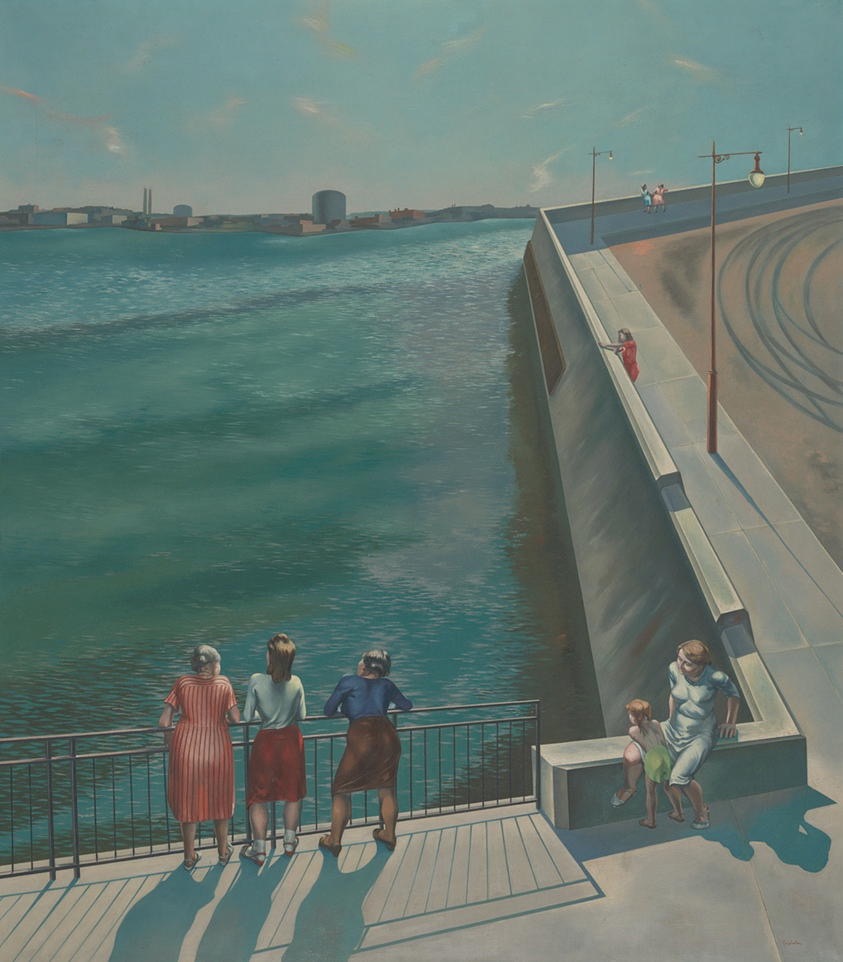
O. Louis Guglielmi: The River (1942)
"Where another inertia ruled the start, its counterpart commands the finish."
I can't fairly characterize myself as relentless, but beyond a certain uncertain point, I have known myself to turn Resolute. This Publishing business, for instance, which has turned out to hold far more dimensions than I at first suspected, has left me feeling, in turns, helpless and reassured, overwhelmed and bored stiff. It has offered a gauntlet of negative reinforcement and many must-dos between the beginning and realizing my aspiration. I'd even gladly bartered away my beginning naivety for a better story once I realized that I could hold my dream or realize something tangible, but not both. Now that I'm down to the final few weeks of the planned excursion, I've grown more comfortable with the intrusion. I can sense an impending resolution; I swear that I can smell it now. Downwind of resolution, I might just as well turn Resolute.
My schedule, sometimes my staunch opponent, has now become my ally.
TwoMillionPlus
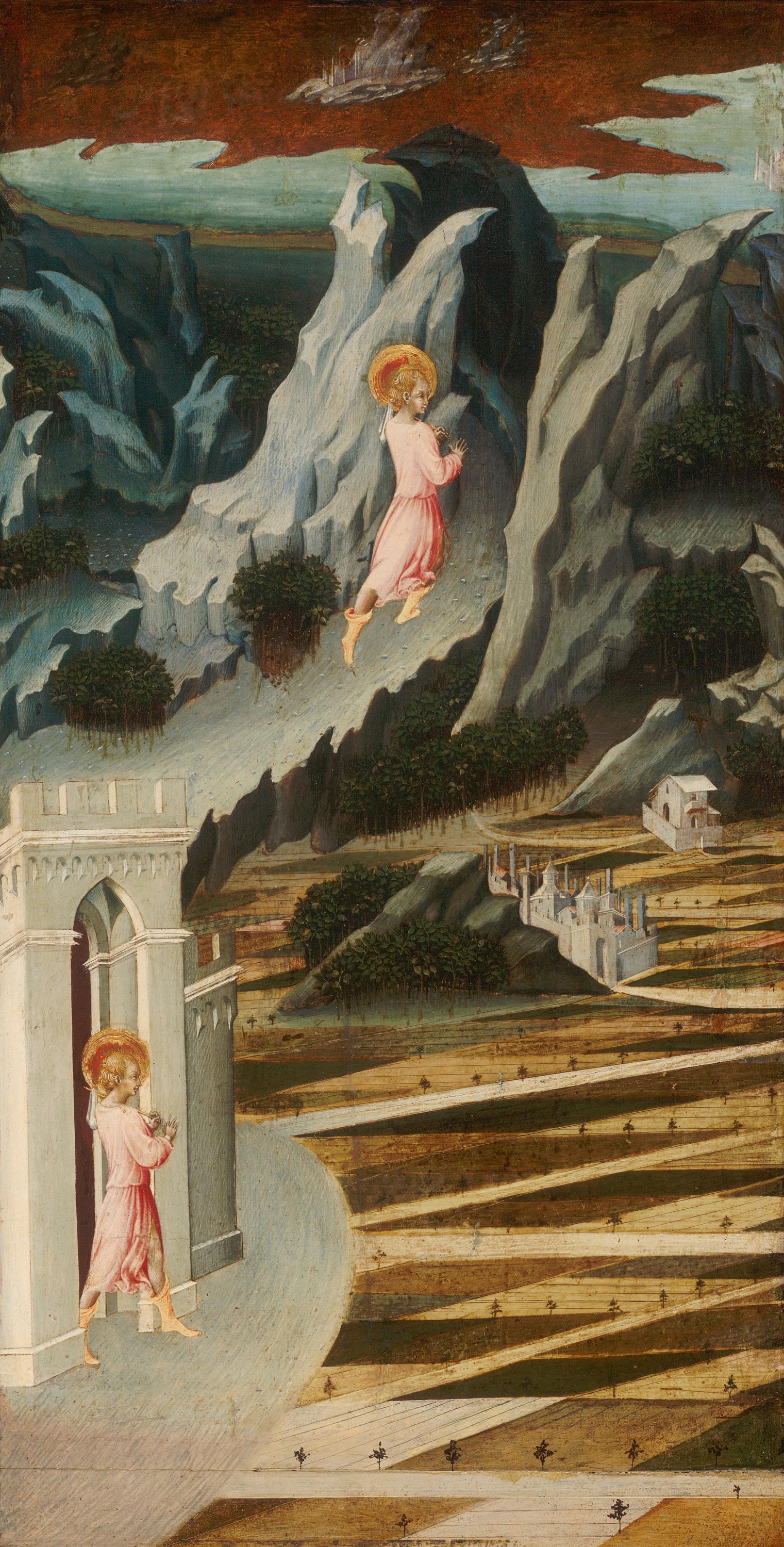
Giovanni di Paolo:
Saint John the Baptist Entering the Wilderness (1455/60)
"… we periodically pretended together that it was."
I claim to be a political Progressive, meaning I subscribe to the curious notion that progress remains both possible and net positive; unlike political Conservatives who view their future skeptically, often cynically, as if it serves as a descent from prior greatness, Progressives claw ever forward. In contrast, Conservatives seek to return to past glory. We cannot possibly experience either perspective, what with entropy and all, but they're belief structures, not intended to represent reality but to harbor aspirations. As a Progressive, I hold lofty aspirations. My Conservative neighbors seem to hold more catastrophic ones. It comes down to what sort of future I imagine since an actual future has yet to manifest and perennially can't.
The question of progress made and experienced eventually enters into every human activity.
Joystaking
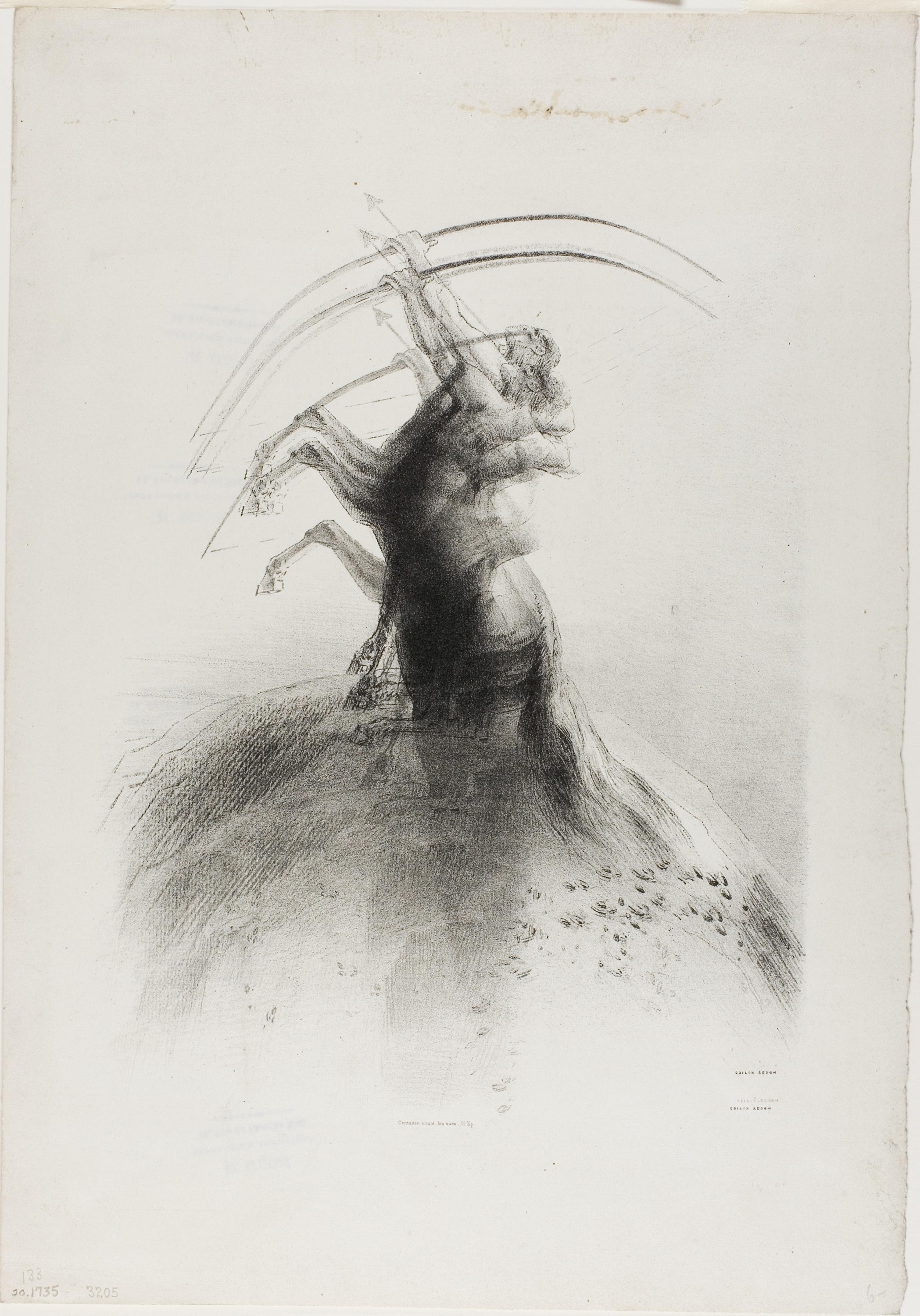
Odilon Redon: Centaur Taking Aim at the Clouds (1895)
"Edit with a light heart."
I might fairly characterize much of Publishing as painstaking, but that term connotes the wrong sense. The work should not evoke pain, for it seems the soul of the Until It's Fun, It's Better Left Undone sort of work, best not thought of as work at all but play. With all the picky copying and pasting, copyediting and formatting, reading then reading again before proofreading one final time, any of this effort could easily seem dreary, long lonely slogs through barren territory. It comes in pieces and remains as disjointed pieces through most of the process intended to transform raw writing into something finished, but the manuscript takes on the spirit of whoever engages in creating it. If the assembling's drudgery, so the finished work shall be. The manuscript becomes the heritage of whatever vibe created it.
So painstaking might properly characterize the assembler's careful focus, but it connotes the wrong feeling.
MysteryWithin
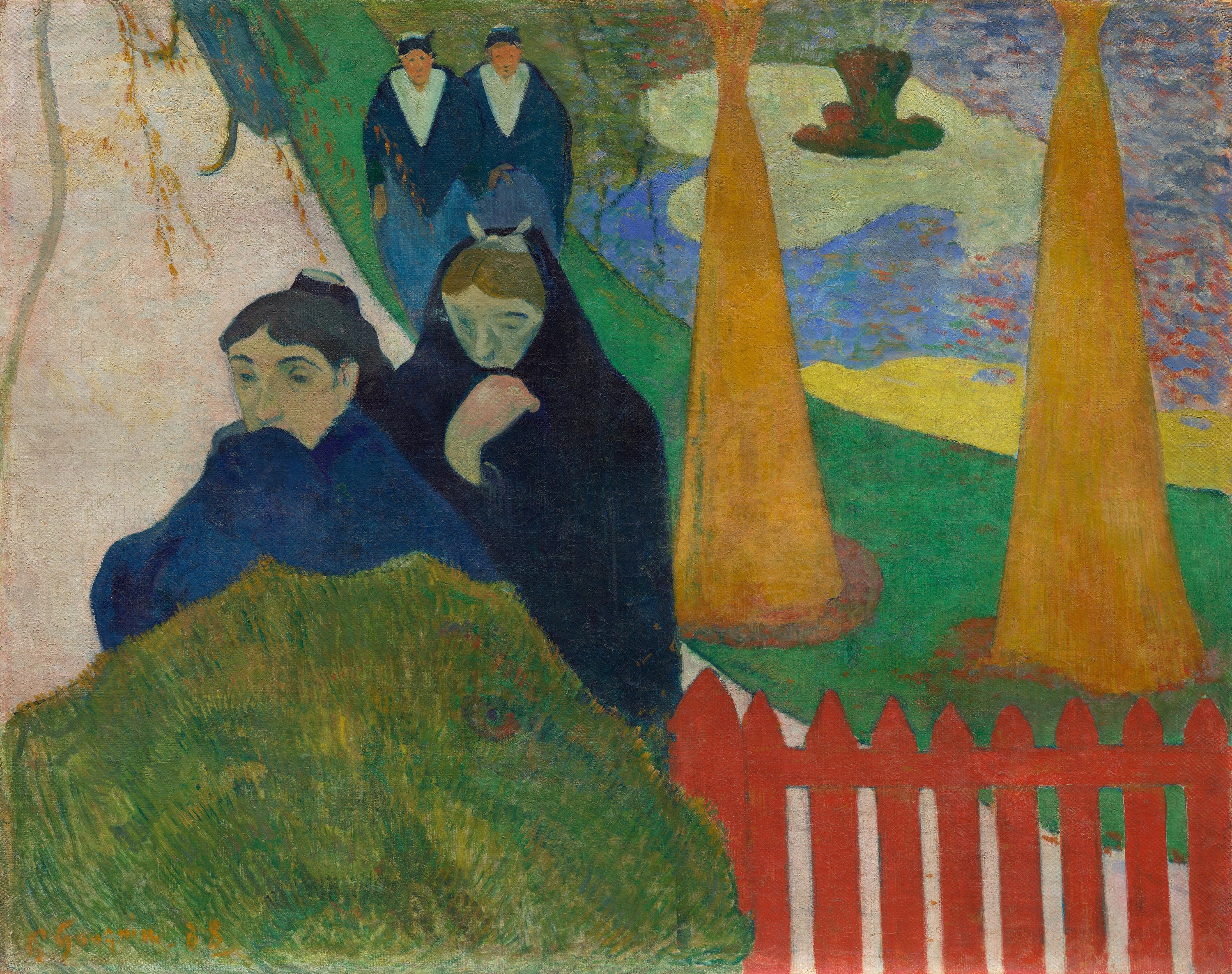
Paul Gauguin: Arlésiennes (Mistral) (1888)
"He always was before."
I dreamed I was solving a mystery. Clues appeared before me, and I dutifully tracked them down, slowly building my case. Just when I felt as though I might be getting close to identifying the guilty parties, a thought visited me, an idea that, just for a second, wondered who was writing the story. Was I solving a mystery or staring in a story where I was cast as the detective, not really solving anything but more like serving as an author's character in some work of fiction, my role not real but made up. I considered shifting my focus then from merely acting as a mystery solver to chasing after the deeper mystery to see if I could identify who was this author. I received surprise testimony from a woman who claimed to be the actual author's mother, but even she needed help determining which part of the puzzle was figure and which was serving as ground.
I remember happening upon helpful strangers, of feeling baffled just before, as if by fortunate accident, fresh useful information came into my possession.
Clicks
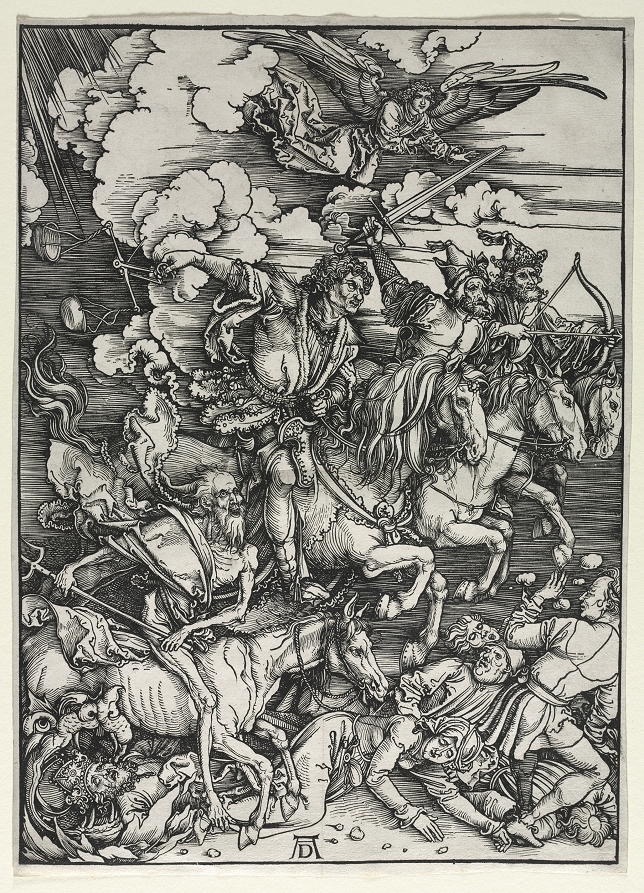
Albrecht Dürer:
The Four Horsemen, from The Apocalypse (c. 1498)
"How do I compare thee to a provocative headline?"
The cynicism in this world expands at an ever-expanding rate. What passed for crass fifty years ago will hardly make noteworthy today. From Fuck Biden bumper stickers to clickbait social media headlines, today's world trades in raw attention—the less refined, the better. Publishing, too, has fallen prey to these emerging values—if I dare use value to describe what I see happening inside. Almost twenty years ago, some brilliant upstart experienced a revelation. Where Publishing had forever focused on distributing content as its purpose, an emergent goal appeared: attention. On the internet, the Click became the metric and the purpose, and everything was or would eventually be distributed via the internet. A hollow piece with an attractive title would easily attract more attention than any unprovocative, thoughtful piece. First one, then almost all others began focusing their attention upon attracting attention, upon encouraging Clicks. The brilliant insight centered around the realization that Clicks pay, but content doesn't.
At first, It didn't matter how long attention focused on any individual item.
Obswerving
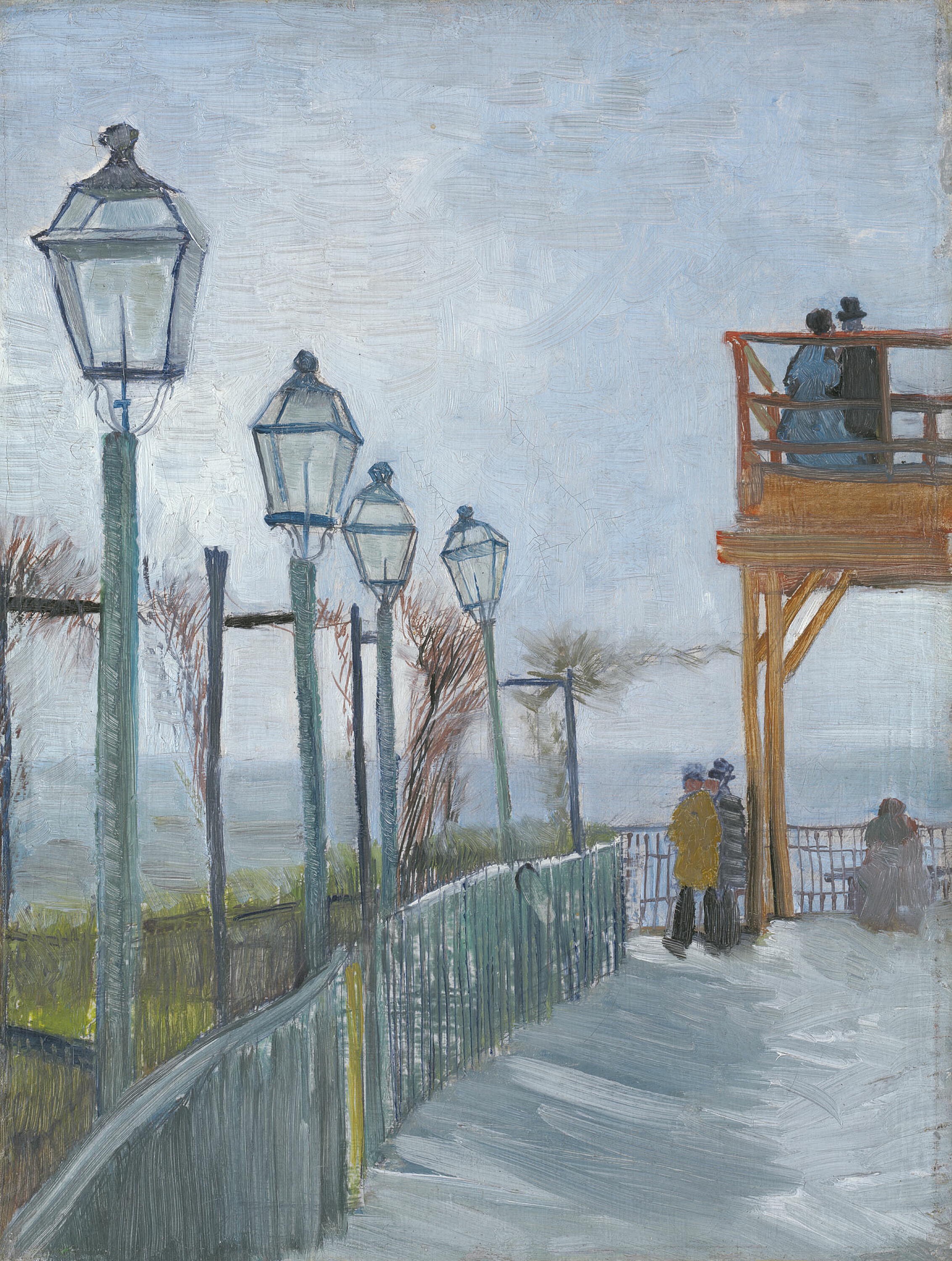
Vincent van Gogh:
Terrace and Observation Deck at the Moulin de Blute-Fin, Montmartre
(early 1887)
"The finished work isn't finished …"
I claim to be writing a series about Publishing, but I've grown increasingly uncertain if this effort will produce what it initially implied. I know, I know, that bait-and-switch suggestion might qualify as the subtext of this whole series so far. I can hardly pick up a stick but what that stick transforms into something else, or sure seems to. Iterate that experience a few dozen times, and anyone might come to question the basis upon which they'd drawn their conclusions. The jury might opt to continue deliberations and might not ever come to any firm conclusions other than that the case was clearly not as presented and not really as expected, either. It turned into something different.
Could I once, just once, leave well enough alone?
WritingSummary: 4/18/2023
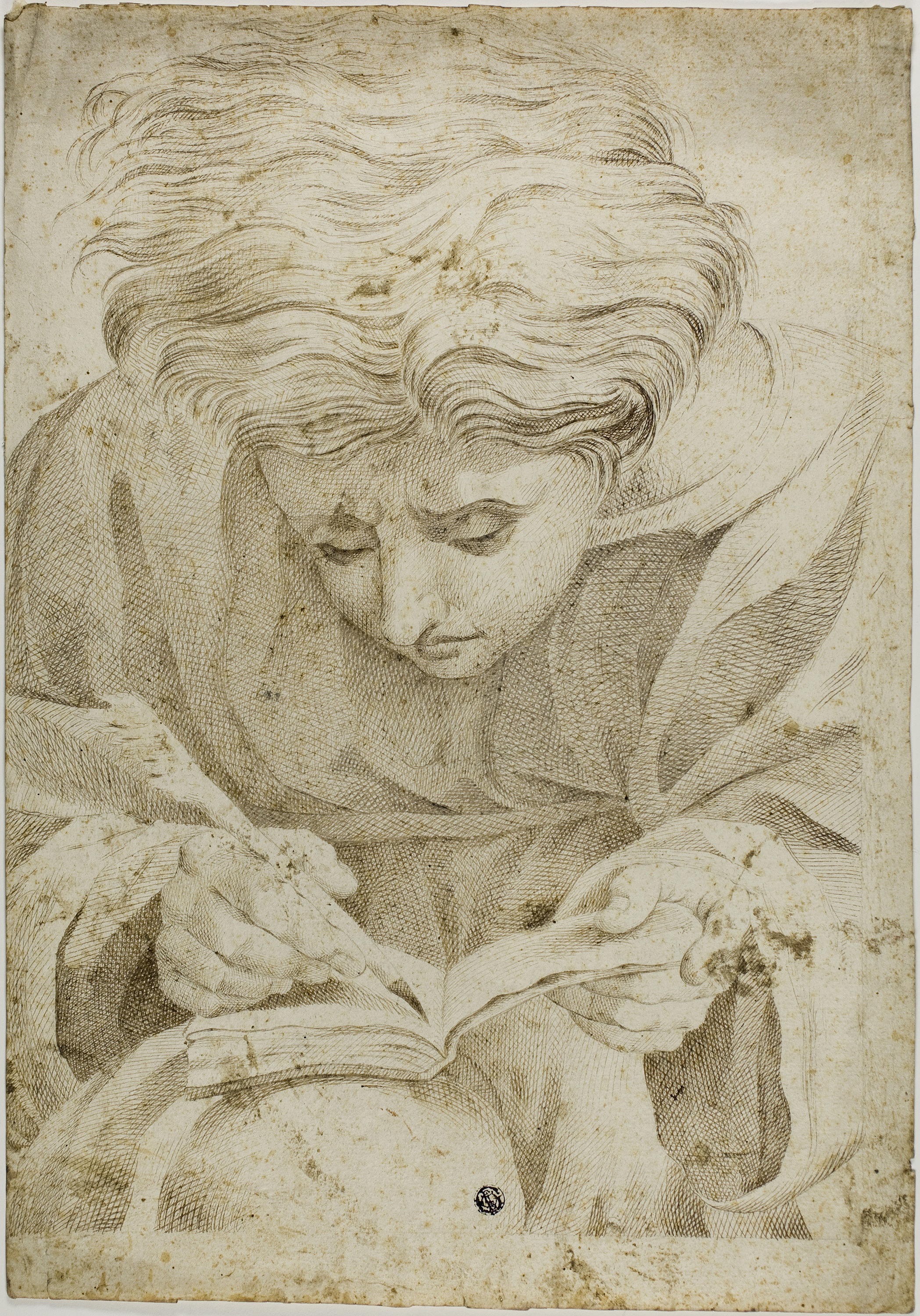
After Raffaello Sanzio, called Raphael:
Seated Youth Writing in Book (17th/18th century)
Thrive On The Unresolvable
This week brought me back into my regular writing schedule after missing parts of three writing weeks. I had worried that I'd broken the trance that usually carries me into and through my writing work. I can be superstitious about my habits, mistaking them for necessary imperatives when they're more likely no more than random patterns. I learned—or I am still learning—that I need not necessarily fear upsetting my patterns. I am no longer the sum total of the habits I keep, for I have been actively breaking bad habits in favor of better ones, so far, without evident damage. In my relative youth, I might have been addicted to my life, convinced of the necessity of so many of my choices. One of the great gifts aging brings seems to be a loosening of those encumbering imperatives. I increasingly see that I am unnecessary, though I might still qualify as nice-to-have. I am no longer necessary if I ever was; my stories are not what they seem. It might be that our purpose here was never to resolve any great mysteries but to discover more of them. This world seems to thrive on the unresolvable.
Piles
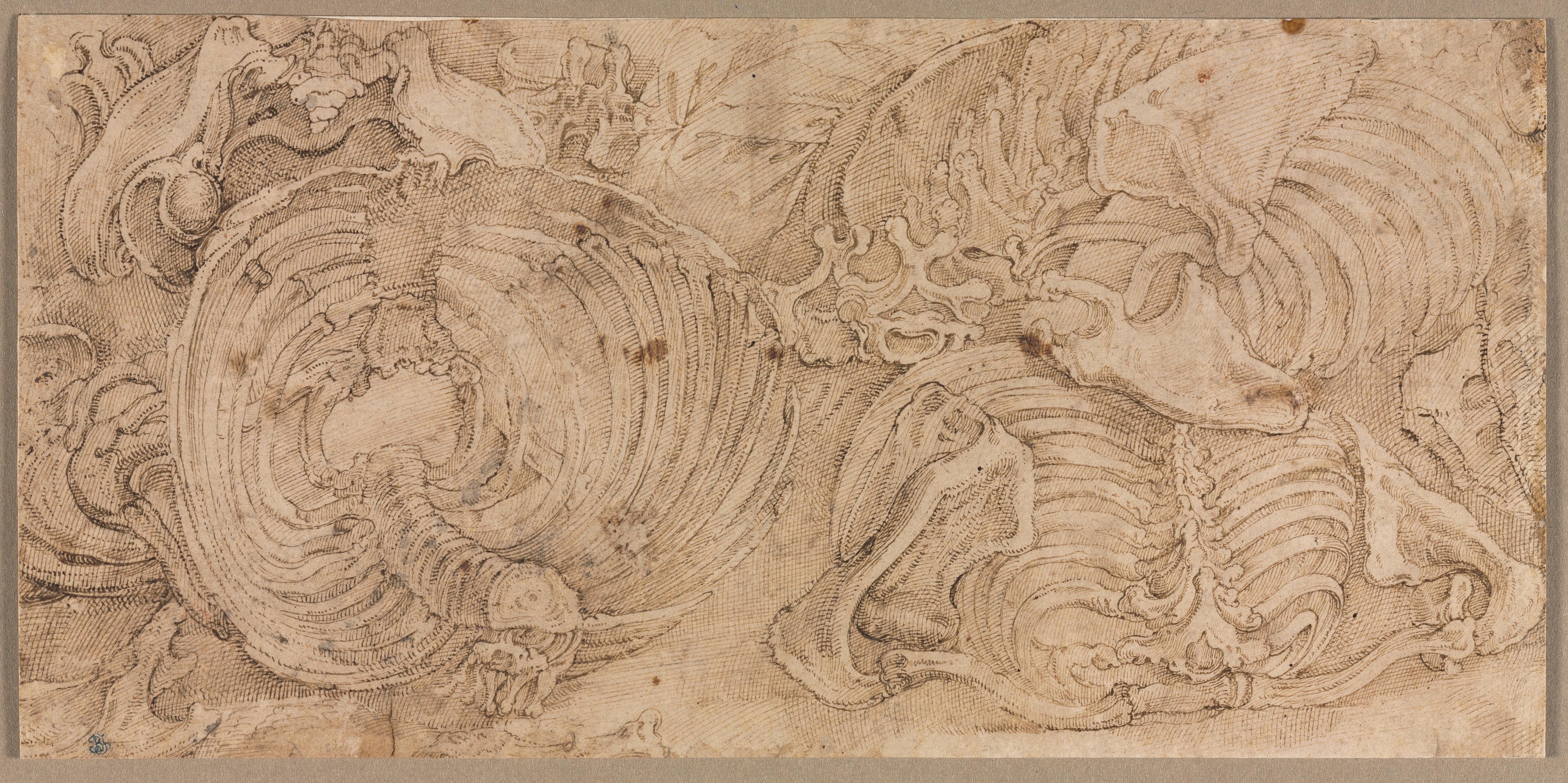
Battista Franco: Rib Cages (early 1540s)
"Delusions like this one keep me moving forward."
One can tell a lot about an artist by learning how they organize their work. I utilize the venerable Pile, which started as a page, and emerged from an inadvertently random-access filing system. My legitimacy was always suspect because of the primitive methods I employed to keep track of my output. For me, Publishing attempts to right this error, to finally put form to what emerged almost randomly. My great sin as a writer and creator has always been that I have never understood what form my collected works might eventually take. I failed to properly anticipate. I'd produce a word, then a sentence at a time without deeply considering where I might store the product or what structure might best serve my someday heirs and archivists in the unlikely event that I left either behind. I'd pile one page upon another until the pile threatened to tip over, then I'd start another pile. Fifty years later, my library looks like an abandoned recycling center.
Fortunately, most of my pages and Piles are virtual.
Symmetry
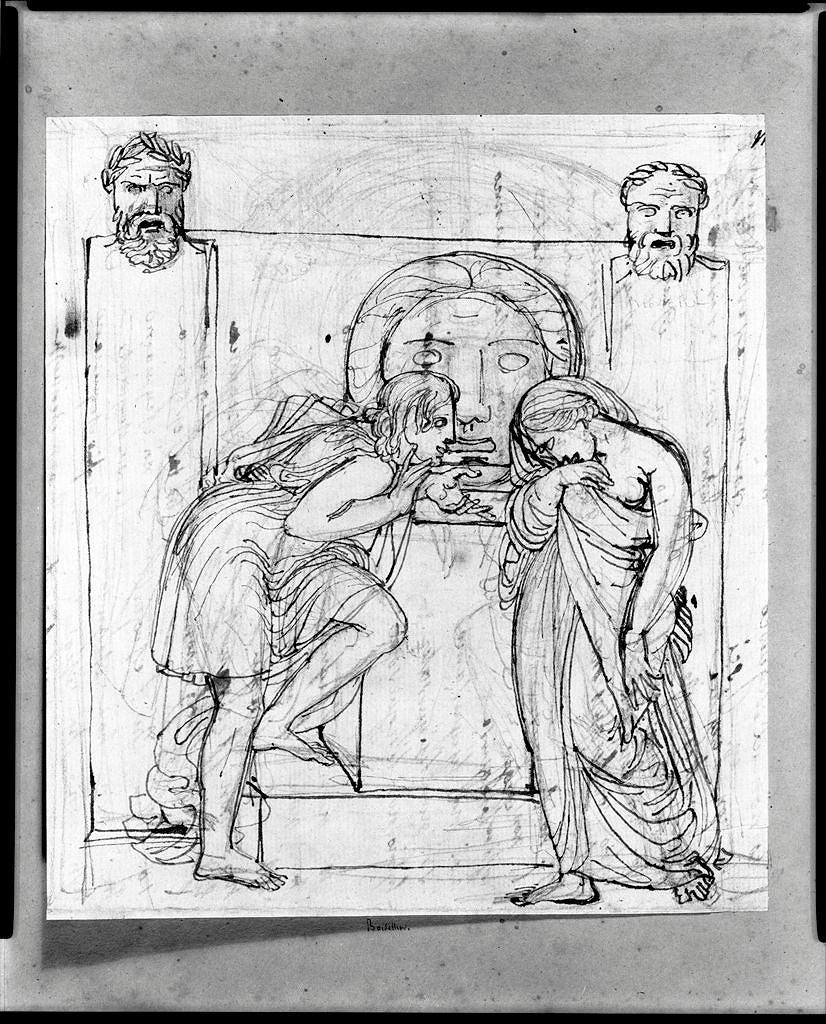
Félix Boisselier: The Mouth of Truth (1809-1810)
"When beauty appears, remaining questions disappear."
"It was a poet, not a scientist, who claimed that beauty was truth and truth beauty, but neither beauty nor truth are sufficient to sustain, let alone understand life as it is lived. There is a certain symmetry even to the bit of broken fence in my neighbor's yard, which convinces me that it is both real and functional enough to not need any added elegance that might be found from fixing it." PureSchmaltz - Integration: Symmetry- 11/04/2009
A point finally comes when the emerging manuscript takes on the appearance of a manuscript. The troubling formatting details, often the final mystery to resolve itself, finally come together, and the final pattern of the work manifests. This comes as both a shocking and a subtle experience. I might not notice until a while after since I have been immersed in the most trance-inducing work of the effort. I repeat the patterns until their eigenvalue emerges, beyond which every fresh addition automatically aligns with every other. Even the illustrations find consistency in their presentation and placement. The work, forever in pieces, finally becomes whole.
This form was not the result of deliberate design but its second cousin. Iteration, starting blind, then moving ever more closely into an alignment, formed a kind of evolution.
Repurposeful

Katsushika Hokusai 葛飾 北斎: Recycling Paper (1821)
"I repurpose and therefore am."
By the time this story becomes part of a manuscript, I will have repurposed it several times. The manuscript itself might have always been the purpose of creating the story, but each seemed to need several interim iterations before I could quietly put it to rest there. It first appeared as a part of my daily production, my each and every morning writing practice. This initial iteration sure seems finished when I first post it, but it needs fixing before it can reach anything even remotely like its final destination. I often wonder if I could simplify this terribly complicated and intricate process until I recall that this present instance represents years of evolving improvements. The process isn't yet completely static, but it's become both much simpler and more complicated as various purposes have emerged and stuck into more or less permanent practices. I've become a Repurposeful writer, poster, and publisher, reworking essentially the same kernels to satisfy their varying purposes.
Much of this effort amounts to relatively mindless copying and pasting.
Distracting
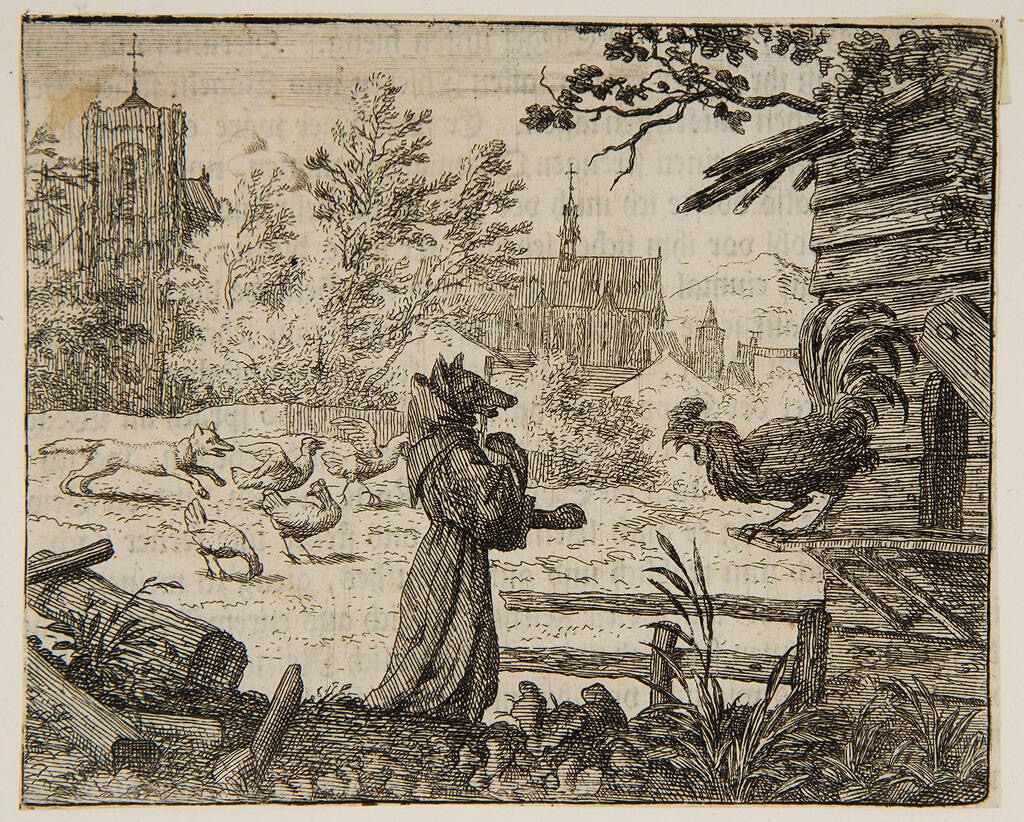
Allart van Everdingen:
Reynard disguises as monk and distracts cock
(17th century)
" … few intentions seem very far beyond us."
Publishing sure seems like an occupation especially designed to try a practitioner's patience. Every damned thing involved in the engagement takes longer than expected and ultimately seems more complicated than strictly necessary. Still, under the It Takes Whatever It Takes Rule, I cannot characterize even these demands as excessive. They simply refuse to align with my tastes. Someone somewhere would very likely find this work rewarding, but probably nobody who'd ever very likely find themselves actually asking to engage in it. Some professions seem just like this. They seem the exclusive domains of misanthropes, those who never hoped to find their gainful employment shipping out beneath those masts. Dies cast as they cast. I might just as easily insist that I've been blessed with my Publishing mess.
I lack sufficient discipline to make the headway I had been expecting, though, as with many things, I suspect my metaphor's lacking.
Skeptical
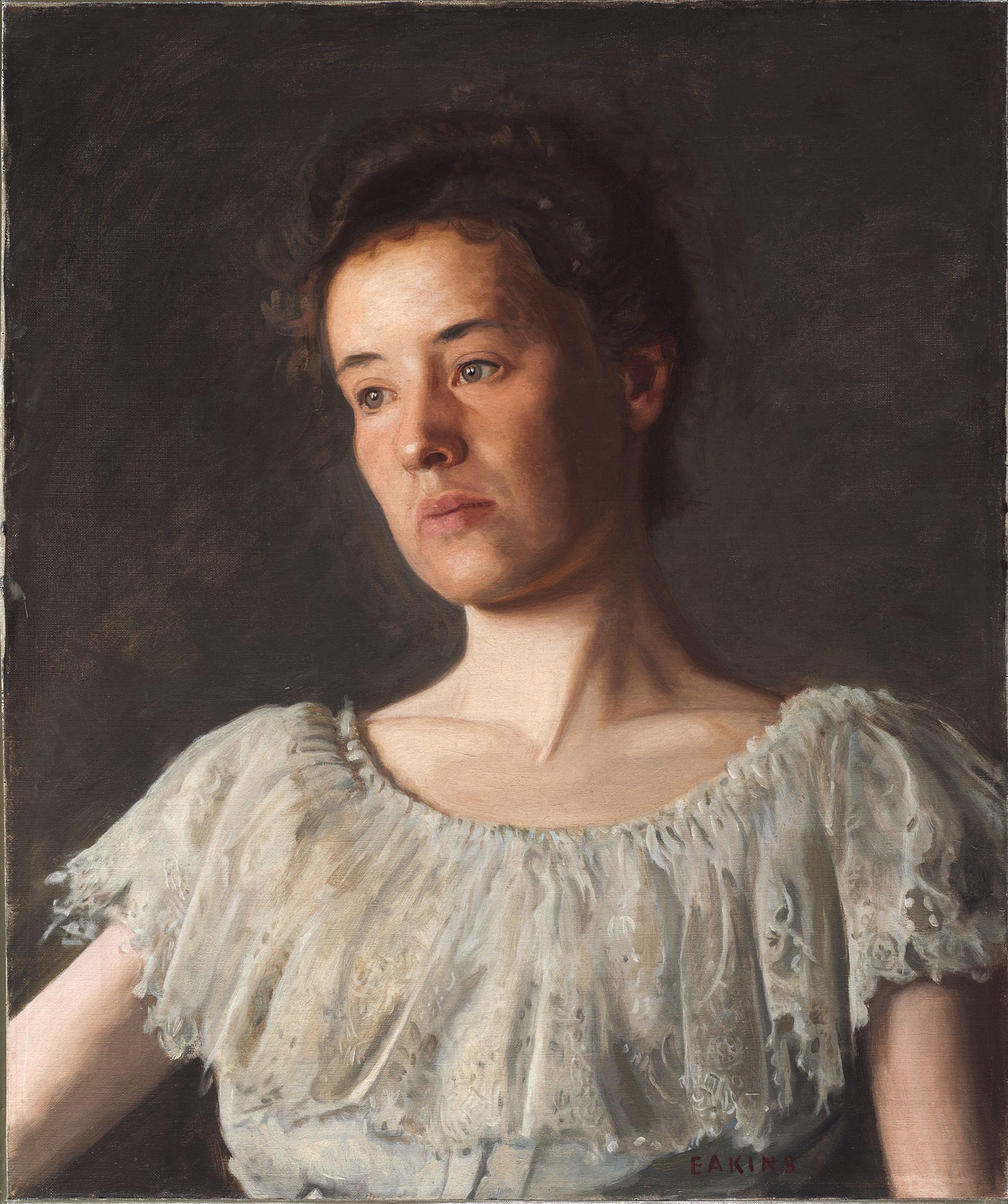
Thomas Cowperthwait Eakins:
Miss Alice Kurtz (1903)
" … who once upon a time left a few utterly ordinary stories behind …"
I'm not much of a Booster. I'd make a piss-poor Rotarian, Kiwanian, or member in decent standing of the local Chamber of Commerce. My father before me stood off to the side, not precisely hiding but actively trying not to become the center of anyone's attention. The salesmen and hail fellows gladhand their way through their lives while others stand aside and gladly bid them pass by, for they seem to be on some mission. They're going somewhere, sure and certain of their own salvation, and excited at the prospect of improving others' chances, too. They seem to hold God's ear, his attention, with the explicit intention of collecting their due.
I feel uncertain whether I'm on a righteous path.
Confidence

Adélaïde Labille-Guiard:
Portrait of Dublin-Tornelle (c. 1799)
"How could any of us ever experience the considerable benefits of our doubts if we've smothered them with our Confidence first?"
Confidence proves neither necessary nor sufficient to support any creative endeavor. It more often undermines an artist, who might find himself better served by slathering himself in criticism or doubt, for Confidence accentuates the positive at the onerous cost of other perspectives. It too easily evolves into studied self-deception, unshakable notions, and devotion to lesser Gods who grant unearned permissions and the pursuit of unwarranted commissions. One too easily falls into playing the Confidence Man, so practiced at self-deception that deception becomes first nature, trading in hollow and narrow platitudes, knowing for certain what nobody could ever know for sure, selling soap and Bibles.
The Confident author might not be worth reading other than as an example of what one should avoid reading.
Outlying
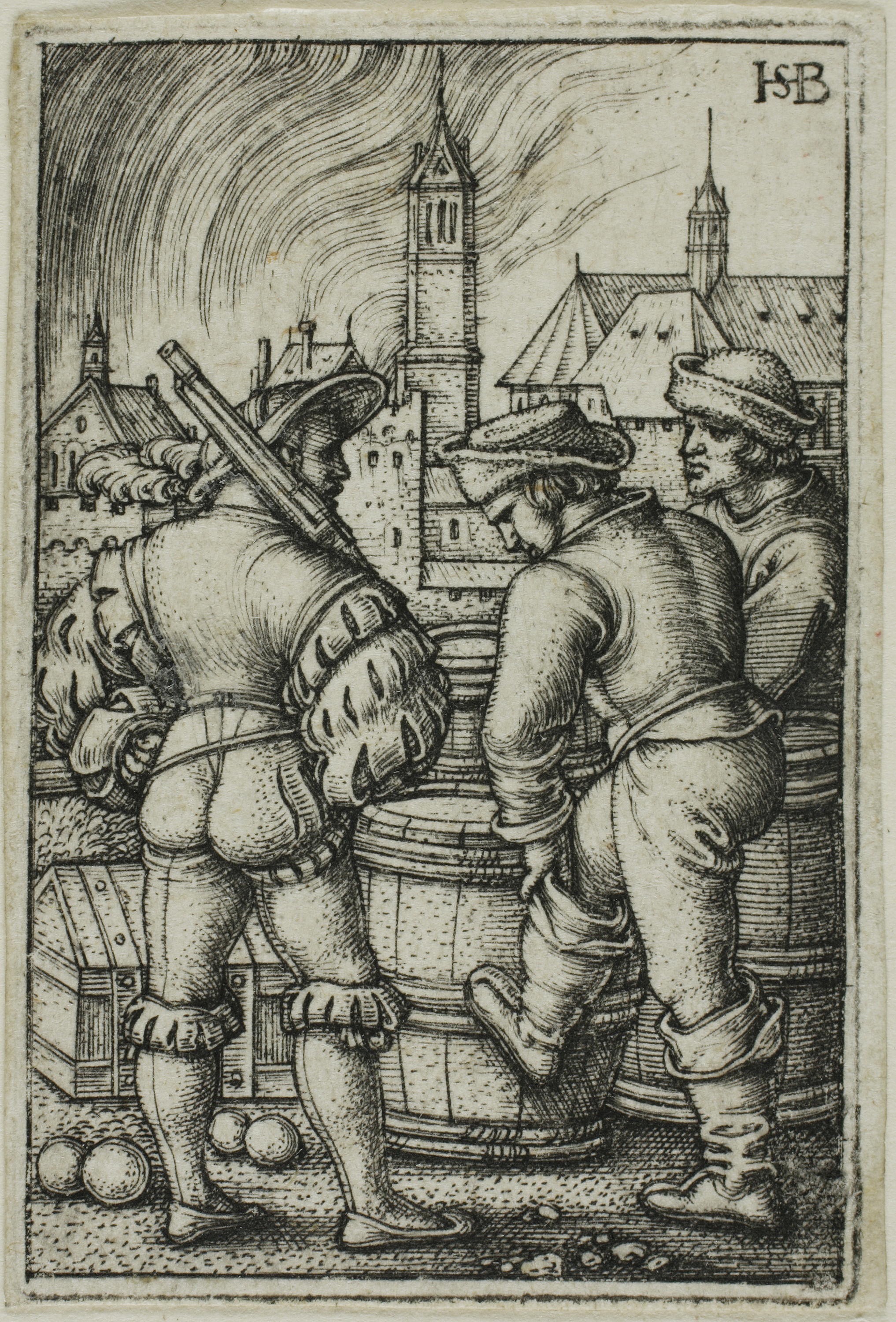
Sebald Beham:
The Guard Near the Powder Casks
(Not Dated, c. 1520-1550)
" … my books look different than most others."
Each publication should be different than anything published before it. Not necessarily radically different, but just different enough. Nobody, for instance, really wants their New York Times to arrive looking like a tabloid Post or US News, for that difference makes little sense. So, superficially, each edition of The Times should appear, from a slight distance, almost precisely the same as every other, though once a decade or so, something so outrageous happens that the front page of even the staid and solemn Times might become an Outlier of itself to amplify the rarity of the reported event.
I try to make each of my stories unique.
Disrupted

Anonymous Germany (Wittenberg): Moses Destroying the Tablets (1558)
" … getting good and lost along the way?"
I usually isolate my stories from current events, hoping this convention will endow them with longer-lasting relevance. However, I make an exception with this story since this one considers Distruption. Today marks the end of the coronavirus public emergency, which, officials emphasize, does not mark the end of the coronavirus' influence on our lives. I, for instance, just tested positive (again) this morning, marking the thirteenth day of my first and so-far only Covid infection. The Muse recovered from hers more than a week ago and has been flitting around attending public meetings since then while I've hung out in the guest bedroom licking my wounds.
The libertarians, primitive thinkers that they've reliably proven themselves to be, gleefully proclaim that we live in an age of Disruption, just as if this condition were reason for celebration.
Chiseling
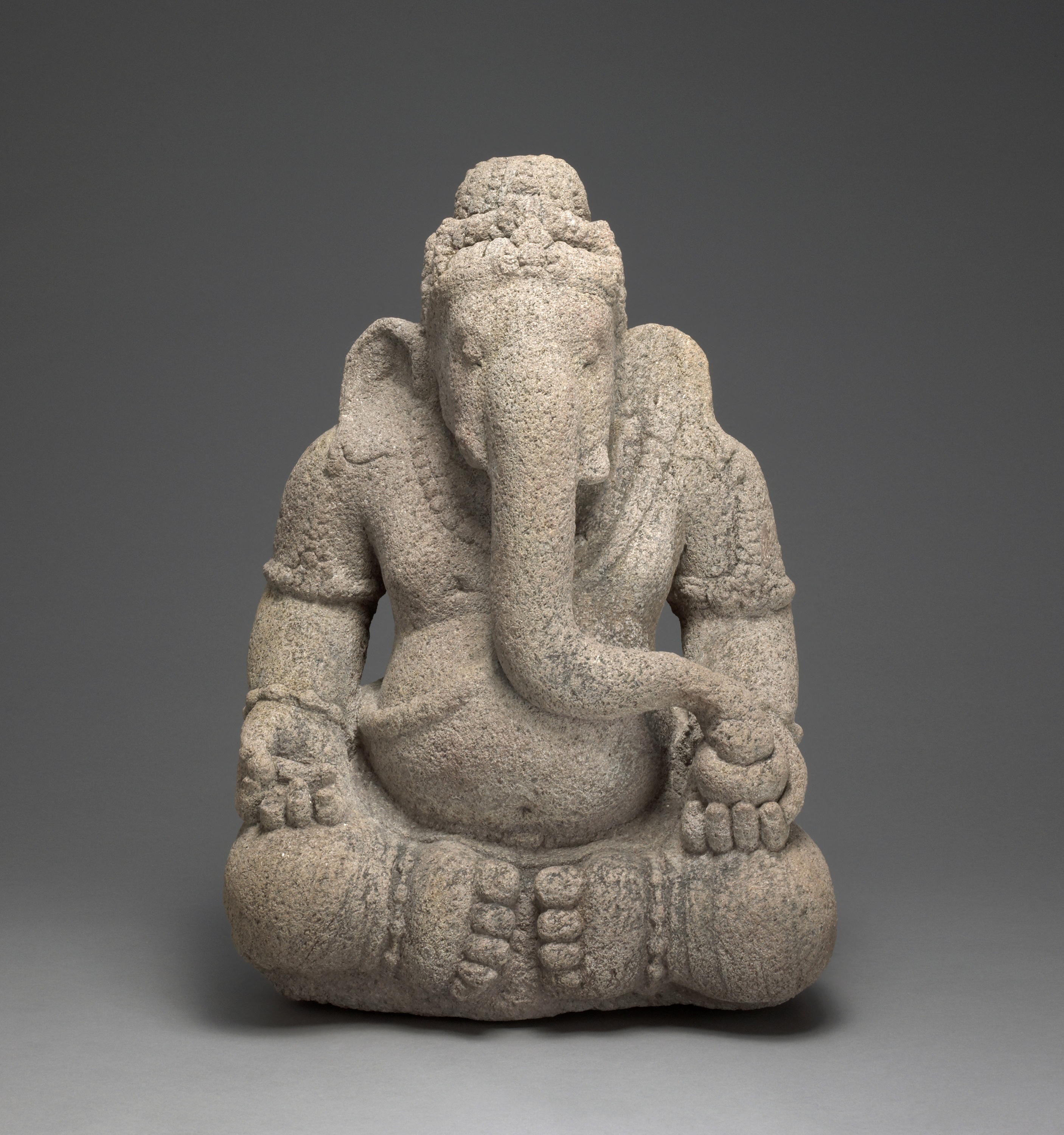
Unknown Indonedian/ Central Javaian Sculptor:
God Ganesha, Remover of Obstacles
(9th/10th century)
" … which explains my aching shoulder."
Publishing might qualify as a form of worship. Like all forms of worship, Publishing demands extended effort, as if Chiseling something out of stone, sculpting a practice from indifferent material. The practice itself needs to be coaxed into being using tools that should properly seem distinctly unsuited for their purpose, with straight edges intended to create curving lines and blunt instruments guiding the creation of fine edges. The outcome should seem unlikely from the outset and, if anything, even less likely as the faithful progress. This very difficulty feeds the resulting faith, encourages penitence, and sanctifies the practice. If it proved easy or convenient, it would prove worthless.
I mention this effort because the Amplified Collective revisited me yesterday.
Rededicating
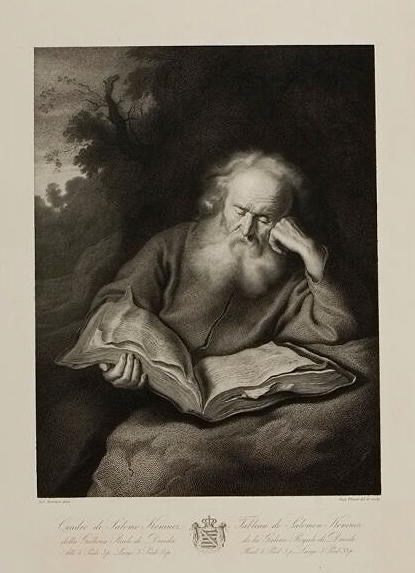
Christian Julius Gustav Planer,
After Philips Koninck: Hermit Reading (19th century)
"I might just as well be Rededicating my efforts …"
It doesn't take much to distract me. A tiny break in even a long-standing routine usually serves as more than an adequate impetus to go off my rails. I think of myself as a dedicated worker, but I seem to stand with one foot out the door, ready to divert my attention at the mere rumor of a hat dropping somewhere, anywhere. One might easily conclude that I lack an underlying discipline, and this observation might well prove both accurate as well as beside any useful point. Discipline should not be necessary and only prove essential in cases where one's held hostage, attempting to complete someone else's effort. Completing's one's own work should prove to enliven such that little discipline's demanded. I believe that if I'm focused on achieving my objectives, motivation should naturally take care of itself. That it only sometimes takes care of itself occasionally puts me at a distinct disadvantage.
The end of my Covid infection left me feeling ambivalent about Publishing, about everything.
BoogeyMens
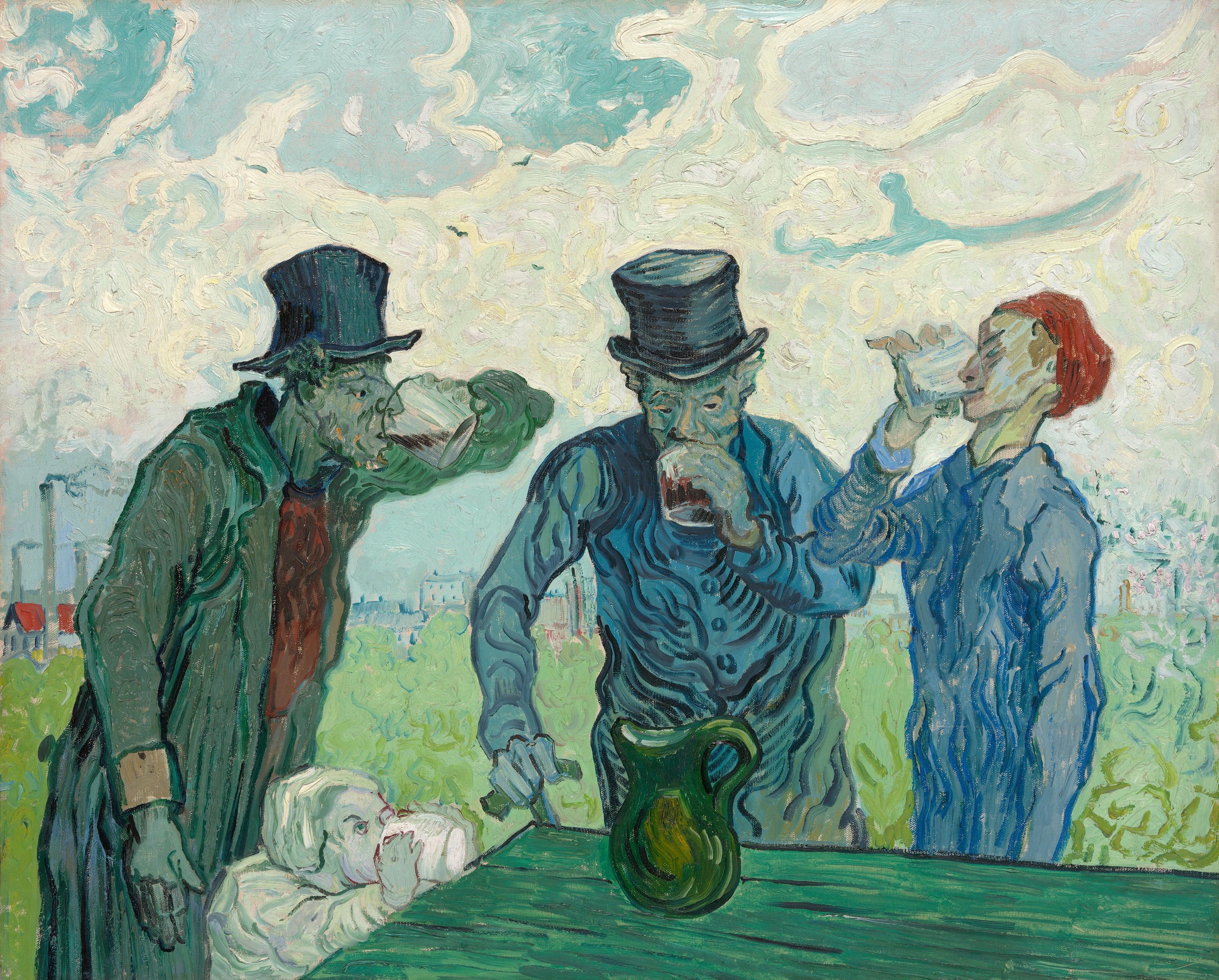
Vincent van Gogh: The Drinkers (1890)
“Our future seems secure together.”
Writing sometimes seems more like a haunting, for I am usually dredging up memories of past experiences to serve as grist for my work. I also sometimes exhume as yet unexperienced futures, and these can also prove to be problems. I imagine a few of my futures to be warm and inviting but more likely to harbor threats, many inhabited by BoogeyMens. The Boogeys remain from childhood stories rather than from lived experience. Their prior lives entirely consisted of stories, some of the types usually shared around a campfire on shadowy summer nights with a forest crowding in too tightly. Those stories promised an impending visit, scheduled for sometime between then and dawn. Later, some disturbance on the side of the tent will seem to announce doom's arrival, sparking some real drama inside. However, we almost always discovered the next morning some completely benign explanation for what we'd presumed had been our grisly demise. We'd somehow survived.
I've also somehow survived so far, though I often glimpse futures I would not willingly wish upon anyone, let alone myself.
FirstDrafting
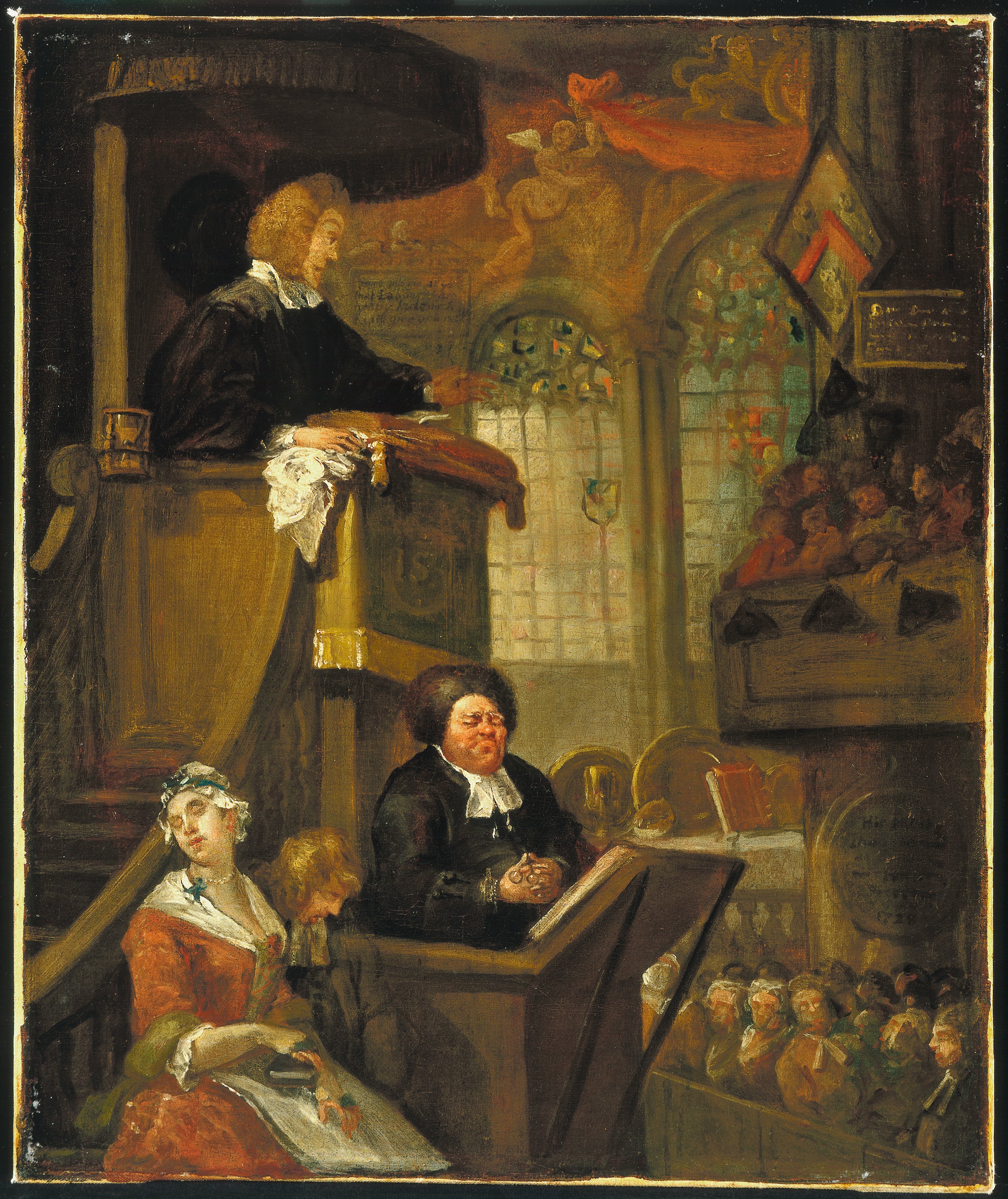
William Hogarth: The Sleeping Congregation (1728)
" … one must just keep going."
Try as I might, and I have been diligently trying, I cannot yet imagine the final form for anything I've been preparing for Publishing. I feel I have exclusively been FirstDrafting rather than final editing, though I suppose that I have been final editing. The feelings of finality have yet to kick in. I'm picking and poking at the manuscript and have not yet stumbled upon any central unifying theme. I acknowledge that central unifying themes tend to emerge rather than get engineered into anything, regardless of how cleverly anyone might attempt to engineer one. The period between initial idea and that theme's emergence might seem infinite when one finds oneself in the middle of an effort. Still, the sense that I'm merely scratching at some surface rather than anchoring my effort in bedrock unsettles this scribbler.
This middle space seems vast and trackless.
ReBeginningAgain
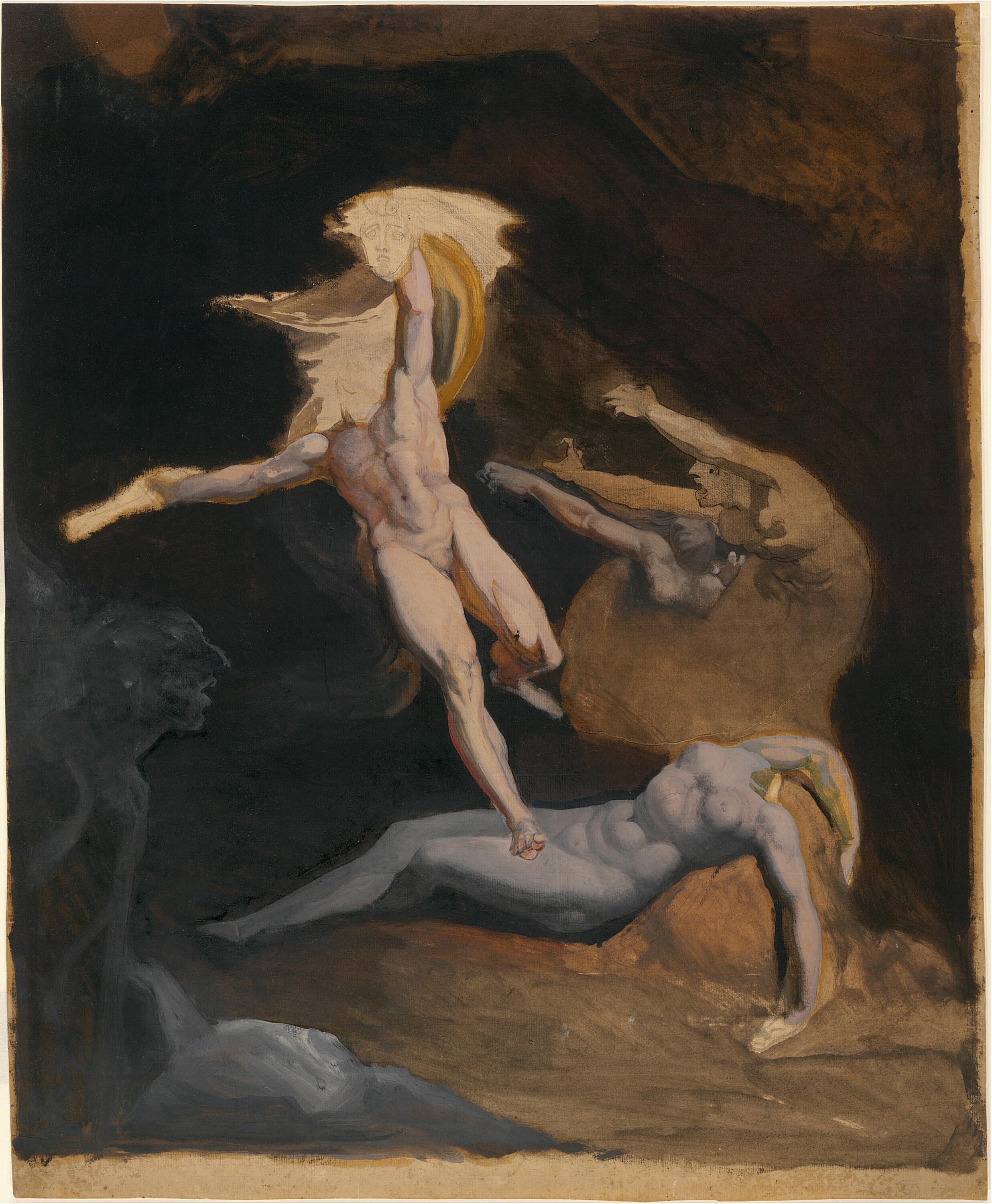
Attributed to Henry Fuseli: Perseus Starting from the Cave of the Gorgons (c. 1816)
"I should never again, ever be mistaken for anybody's spring chicken."
I somehow got the impression that beginnings and endings exclusively—or almost exclusively—came in matched pairs, with precisely one ending for each beginning and a single starting point for every ending. This notion could plausibly be further from the truth, but it needn't travel that far to expose its underlying fallacy. We've each seen multiple endings spawned from a single humble starting point, and many beginnings merge into a single ending. Commonly, something started finds itself interrupted, its routine disrupted, only to re-begin again; not usually to wholesale entirely start all over, but perhaps backtrack a little before trying to slip back into an established rut. These ReBeginnings always seem awkward, for it certainly seemed that the established routine had become well-engrained and unforgettable before the disruption. Some remembering with attendant struggling still seems evident. Nothing flawlessly re-begins.
Further, psychologists and metaphysicists insist that humans require disruption in their routines, however paradoxical this notion might seem.
JustWhen
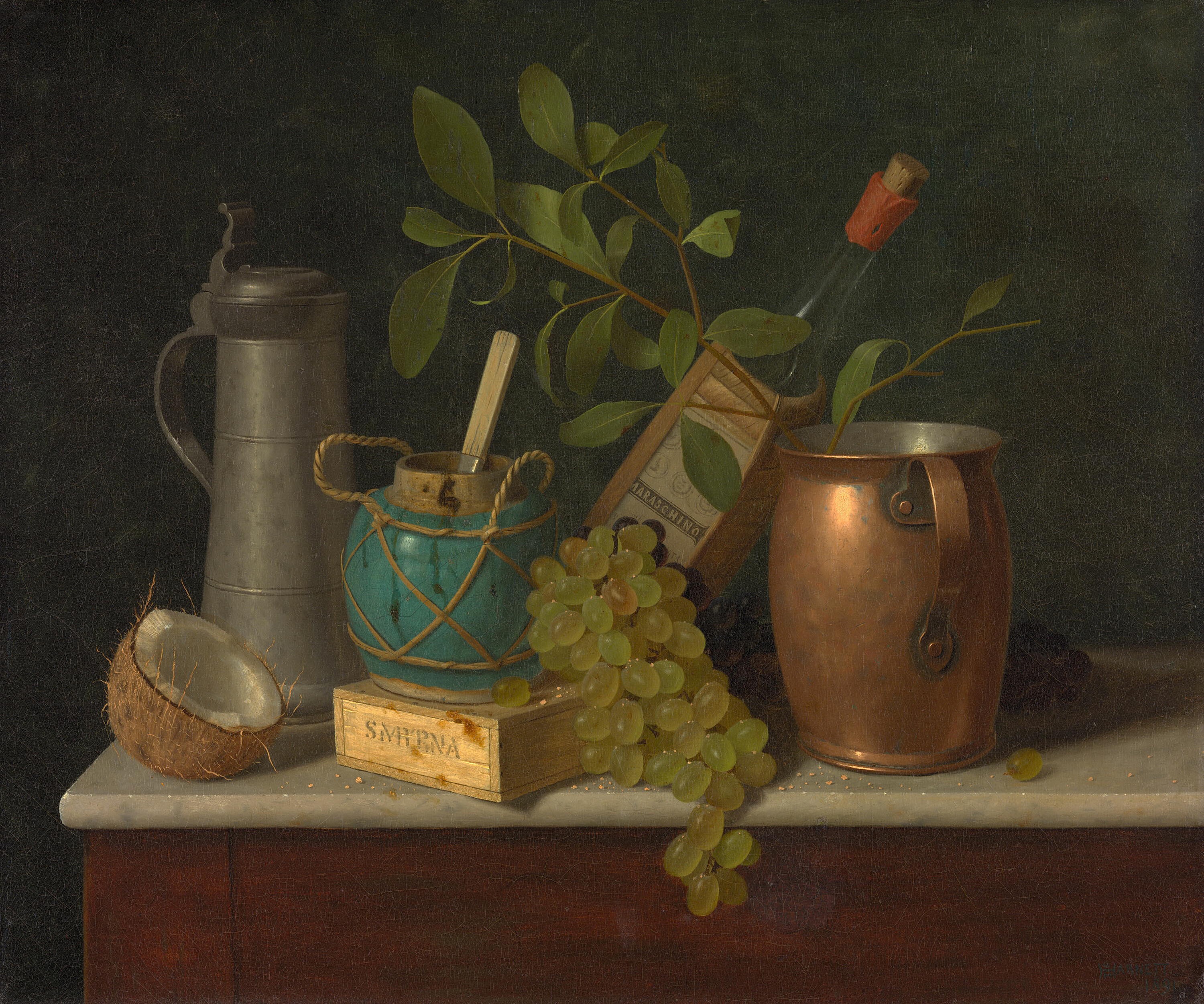
William Michael Harnett: Just Dessert (1891)
"Life most often proceeds by other means than planned."
It might be an immutable law of this universe that JustWhen something seems lined up and ready to go, something else intrudes to blow up whatever best-laid plan was guiding the move. This presence justifies all the encouragement anyone can ever attract. But, regardless of how it feels, these intrusions are never about you. They're just this unsettling property of the universe breaking through at the invariably least convenient times. I know that it seems you get more of these than anybody, but that's a perspective illusion created by you having the only seat situated to see what happens to you but not to anybody else. Ninety percent of these JustWhens are invisible to everyone but the victim.
The occurrence of another JustWhen, no matter how common they seem, does not necessarily render the recipient a victim.
CreepingFormality

Abraham Delfos: Oude man, schrijvend in boek
[Old Man, Writing In Book] (1777)
"I do not yet know how I'll know when I'm finished."
As I prepare a manuscript for publication, I notice a CreepingFormality entering the effort. I began as I begin most things, naive and hope-filled. I will end this effort a little wiser and even a little more knowledgeable: more domesticated. The wild streak that fueled my first steps will have been tamed into a kind of compliance, for certain principles and practices have been replacing my feral enthusiasm with deeper understanding. I've already incorporated my earlier stage discoveries into more consistent practice. No longer simply hunting and pecking, I have been watching myself gain circumspection. No longer merely writing, I'm learning to avoid do-overs. This, despite the sure understanding that one tends to get whatever one attempt to avoid.
I sense a more profound responsibility to my broadening audience as I prepare postings for formal publication.
IncompleteIdiot
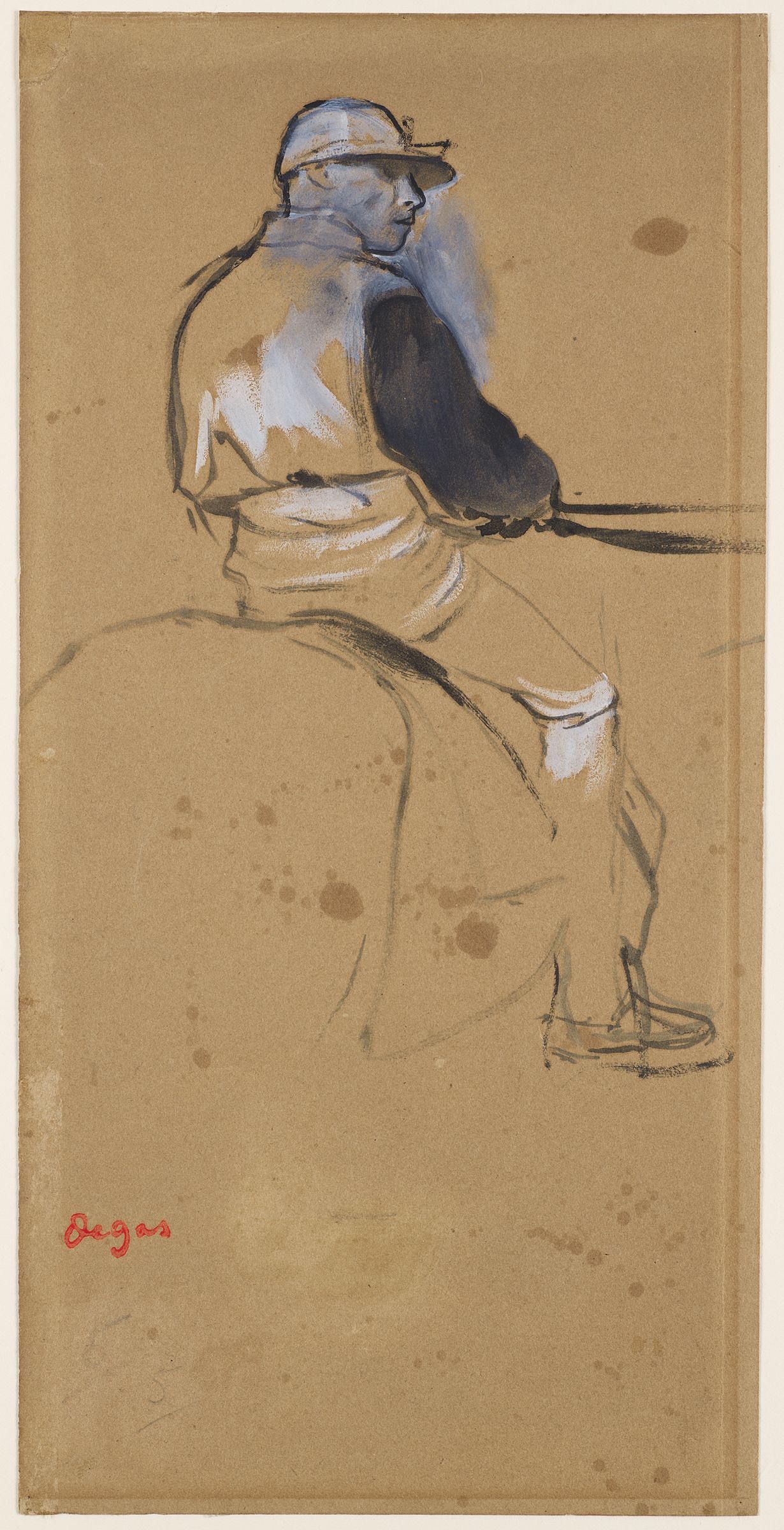
Hilaire-Germain-Edgar Degas:
Mounted Jockey (c. 1866)
"Self esteem seems over-rated, if not impossible …"
I find myself somewhere in the middle of the current controversy surrounding Artificial Intelligence. The purists stand steadfastly against it, insisting that resorting to its assistance will, over time, reduce the brightest of us into idiocy. The advocates don't see such threateningly sinister results. They figure AI's just another in a seemingly never-ending line of technology, an indifferent presence and nothing to get all riled up about. I stand somewhere in the middle, as I said, because I sense a clear and present danger of impending idiocy while at the same time figuring the suspected impact has probably been overstated. As my awareness of my own use of AI has increased, I have so far experienced more positive than negative results, though those positive outcomes have come with a price. My AI Grammer Checker, for instance, initially left me feeling like an idiot, for it clearly demonstrated just how little I knew about writing. Now, after a few weeks of continued use, I've come to feel as though I might qualify as an IncompleteIdiot, more like an idiot in training, and that AI has been serving as my teacher.
I had no idea how little I knew about writing before the AI Grammer Checker started parsing my prose.
Swooshing
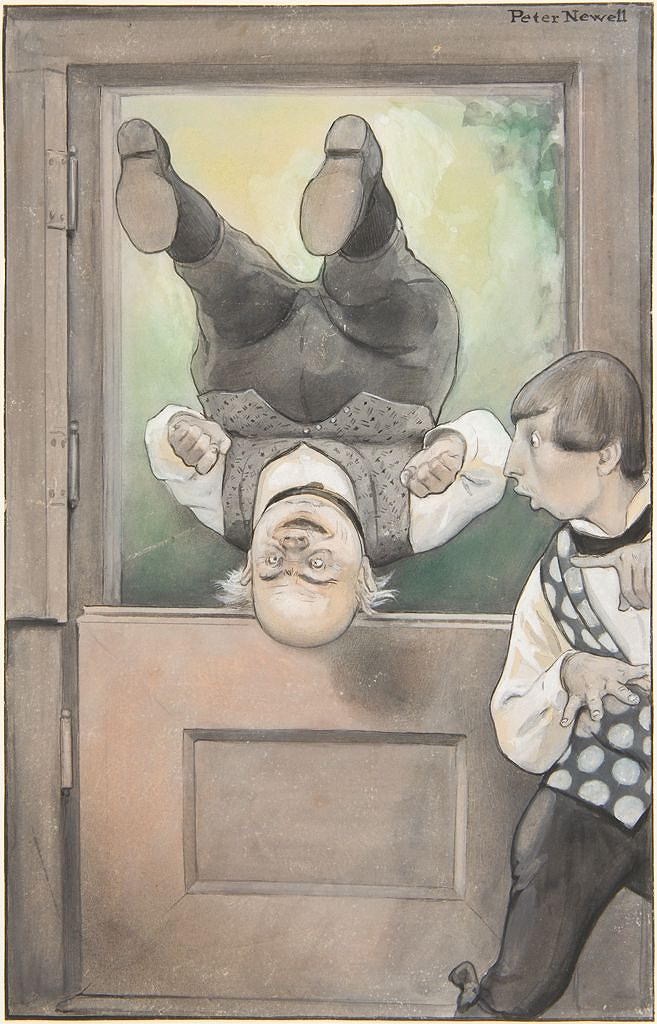
Peter Sheaf Hersey Newell:
Old Father William Turning a Somersault,
from "Alice's Adventures in Wonderland" (c. 1901)
"I might accomplish my Publishing without too much suffering …"
The prospect of a four-and-a-half-hour airplane ride opened up some space I couldn't find while sitting at my desk. I had been unable to locate the space I felt I needed to complete the arduous manuscript assembly process for just one of the titles I'd started assembling when I began this series. I have more than a dozen backlogged. I'd been dutifully chronicling activities I had not actually been doing, but then that tactic seemed typical of my usual approach to anything. I feel the urge to nail down the philosophy of something before fully immersing myself in it. Why should Publishing prove any different? Especially the daunting effort to assemble individual blog posts into manuscript form, an inevitable copy/paste/match-style coma inducer, intricate, supremely dull, and requiring pulling down commands because I cannot decipher their keystroke equivalents: ⌘⌥⌃V, for instance.
I admit I had avoided getting too much into the thick of this effort. It scared me.
'Tweenings
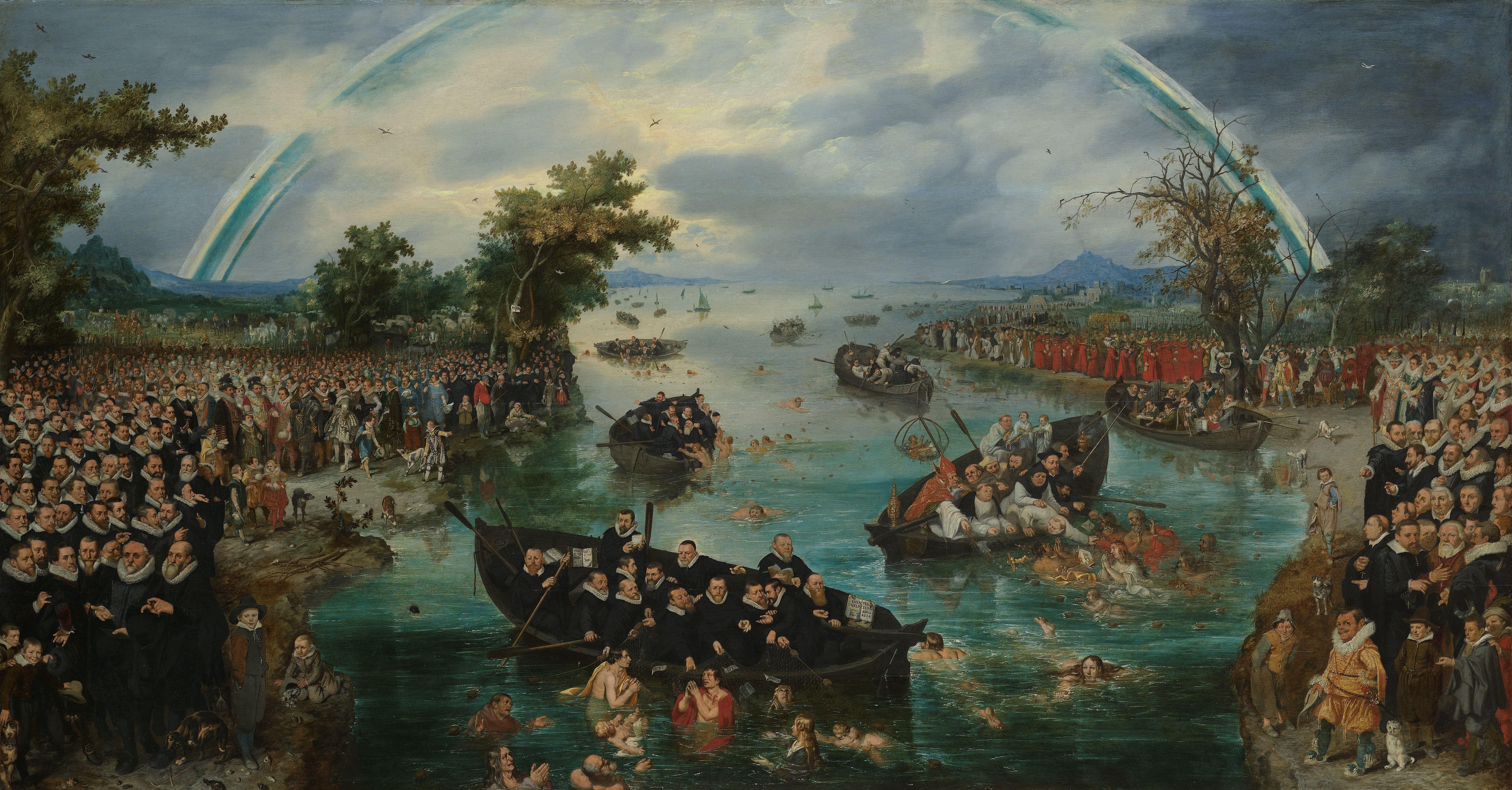
Adriaen Pietersz van de Venne:
Fishing for Souls (1614)
" … always somewhere in between."
I spend most of my days neither here nor there. I tend to transition between one and another state, not quite gone nor quite fully arrived at any particular point in time. My experience here has therefore seemed more of a smear than an occupation, not even my transitions precisely true to any clear standard. I have proven myself fully capable of fooling myself into insisting that I've successfully made transitions and somehow managed to grow up, for instance, even though many cues strongly suggest that I remain in transition. My presence anywhere remains distinctly ambiguous.
My Renewing efforts seem to be ending, or at least The Muse and I will be returning to ordinary time today.
Renewing
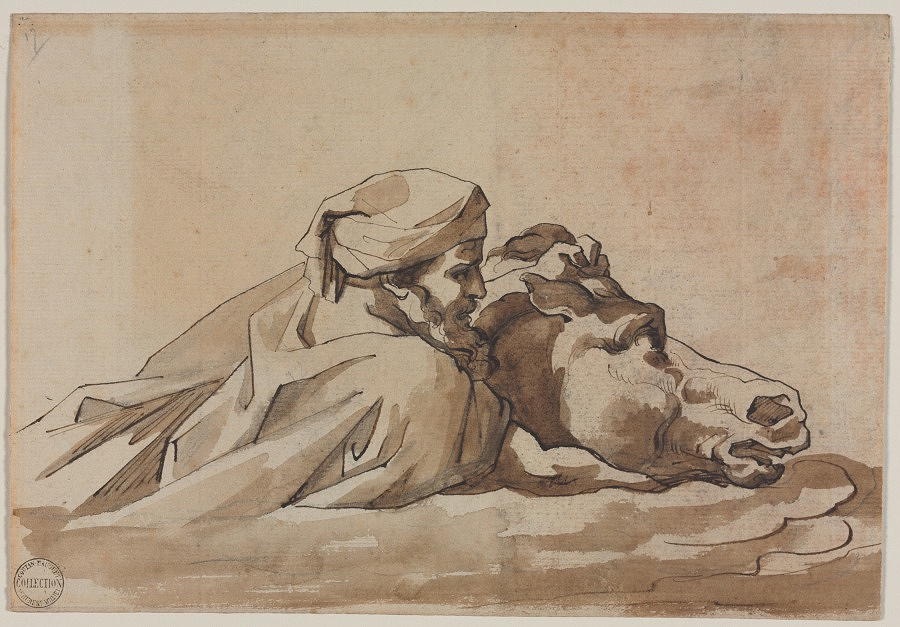
Théodore Géricault, after Nicolas Poussin:
Man Clutching a Horse in Water,
after Poussin's "Deluge" (1816)
" … a seemingly new you to see it through."
Renewing seems indistinguishable until after it’s over. During, it might be anything. It runs on intention until it succeeds or fails. One intends to renew, but one never really knows whether one'll be successful until the resulting feeling finally catches up to them. Until then, Renewing can resemble anything, even its opposite.
This underlying feature renders Renewing more similar than different from other intentions.
PrimitiveProgress
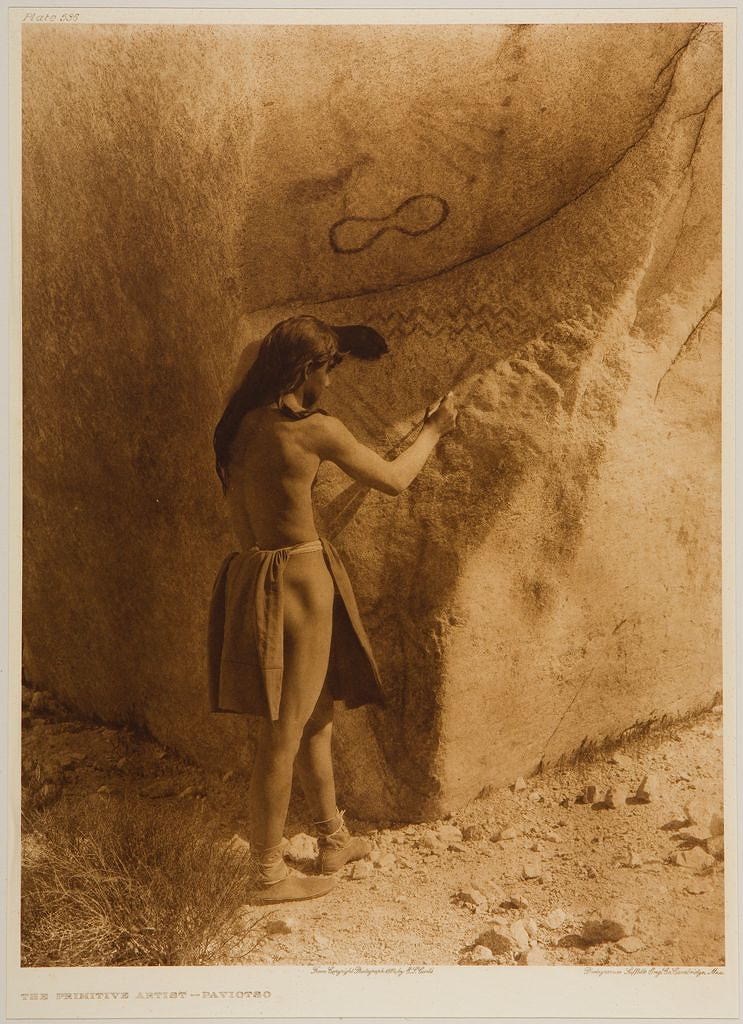
Edward Sheriff Curtis:
The Primitive Artist - Paviotso (1924)
"I might scratch a story in a sandstone wall …"
Backward steps can produce forward progress. I tend to get so focused on improvements that I can lose the more primal assurance I can do without all my usual accoutrements. I only really need some of the utensils my kitchen holds, for instance, or a few of the array of pens I keep on my desktop at home. I am not only capable of making do without these tools, but I might also sometimes leave myself feeling better off without them.
It's long been understood that sudden reversals of fortune can produce personal improvement, a sense of freedom curiously lacking when surrounded by the trappings of success.
ARRR&ARRR
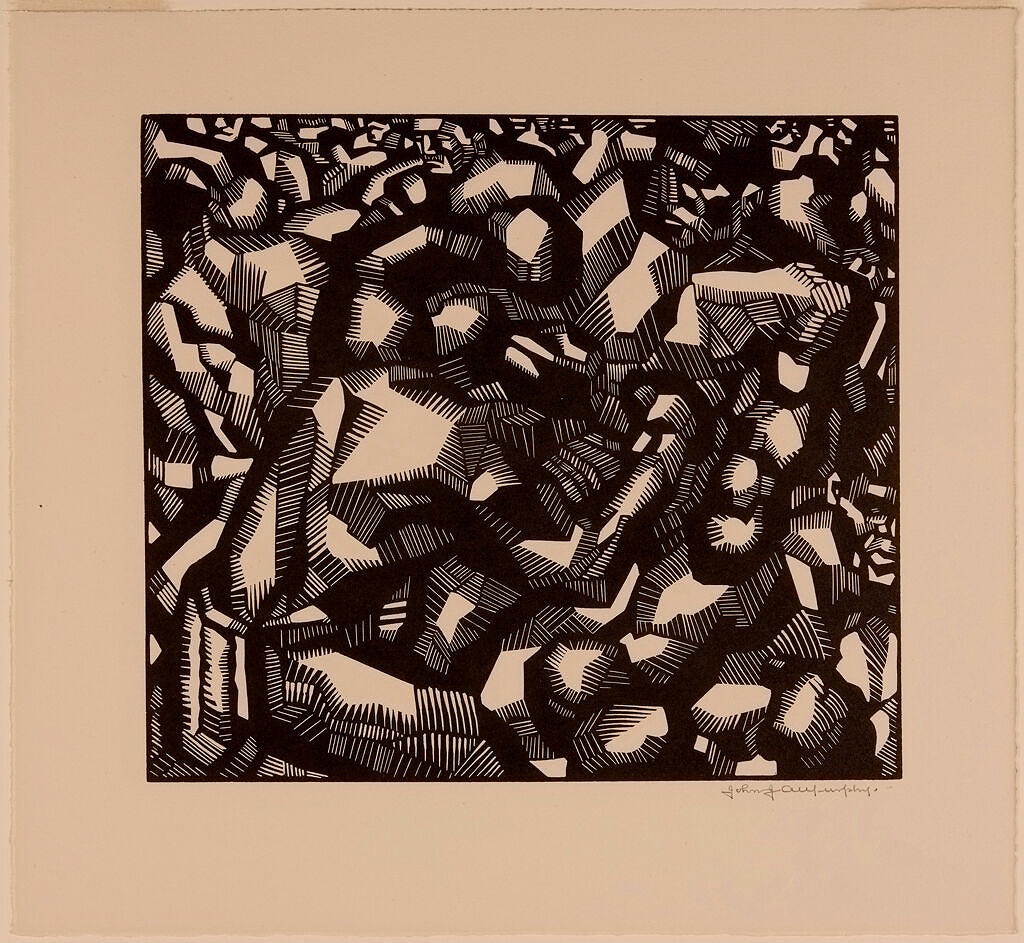
John J. A. Murphy: Athletes at Rest (20th Century)
" … they get away with murder …"
The Gospel of Efficiency fails to mention the necessity of Rest and Recuperation. It exclusively focuses on nose-to-the-grindstone dedication, personal sacrifice, of laser-like focus. It calculates using only the sparest arithmetic, not the more complicated calculus of human-powered action. We naturally work in fits and starts, sprints and collapses rather than by more primitive fixed and so-called standard methods. We create by means mysterious, especially to us, so we seem prone to misrepresent our efforts, even to ourselves. We might, for instance, apply fierce dedication when some slacking might better serve. We can insist upon creating by the least creative means, defaulting to mistaking context for something industrial. We're apt to mix our metaphors and garble our messages, then follow our internal directions as if they made sense simply because we created them.
It's not until we catch ourselves slacking that we might notice that something significant must have been lacking from our earlier strategies.
Backgrounded

Agnes Winterbottom Cooney:
Backyard View, Public School in Background,
Rulo, Nebraska (c. 1900)
" … a little embarrassed at my previous blindnesses."
Writing and, lately, Publishing have been my foreground occupations. These occurred within some background, typically unmentioned and perhaps unworthy of mention, for background just is and rarely seems to warrant acknowledgment. We humans are notorious for presenting ourselves as unconnected, as if we were not utterly dependent upon some fairly heavy infrastructure. Each of us belongs to a family which, depending, might or might not warrant mention. We inhabit places, sometimes embarrassing ones, which might seem as if mentioning them would somehow demean us in someone else's eyes, as a small-town rube or a big-city slicker. We conveniently neglect to mention details that might overly complicate how we wish to be perceived by others or even by ourselves. We mostly remain mum on many levels.
But we all understand that we're each imbedded within endless complications.
Marionating
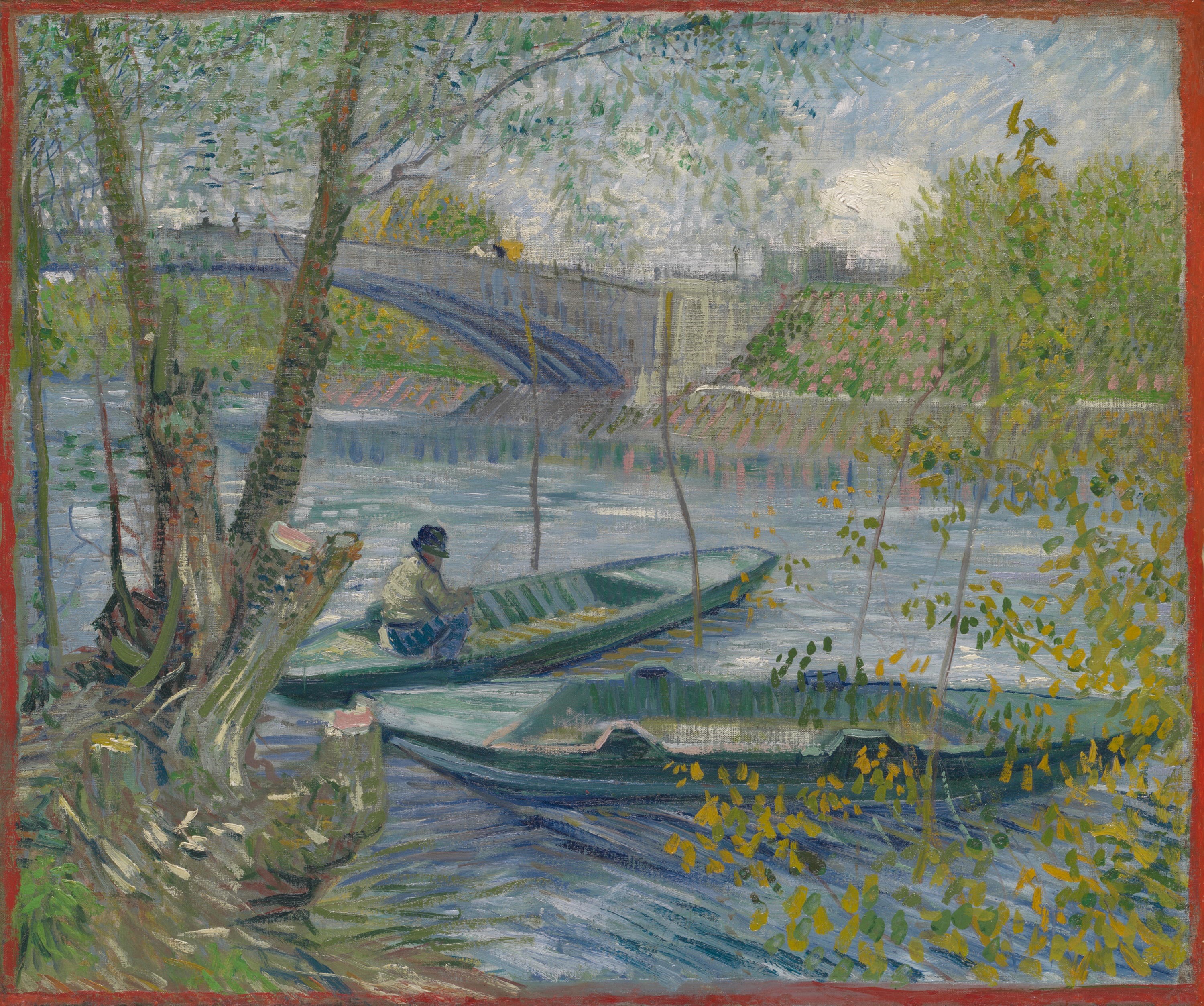
Vincent van Gogh:
Fishing in Spring, the Pont de Clichy (Asnières)
(1887)
" … emergent properties, never properly envisioned …"
Assembling a manuscript feels like puppet work as if I can only accomplish it while suspended by strings and manipulated by a puppeteer. It seems slow and sloppy; each story pulled from its marinating emulsion where it's sat suspended since I first finished it, awaiting a second finish and probably a third. The work seems absurd compared to the hands-on immediacy I experience when writing. Assembling involves no out-of-body trance like writing does. Intuition, enormously satisfying when writing, does not for an instant enter into assembly work. It's measured steps in particular orders, pedantic to a fault, trying. I can't phone in this effort, and I can't for a minute doze through it, for the stories have changed since I set them aside. They disclose new meanings and promise fresh beginnings. Their flavor's changed.
I had been fussing over how long I'd let some stories set before finally assembling them.
Manifestering
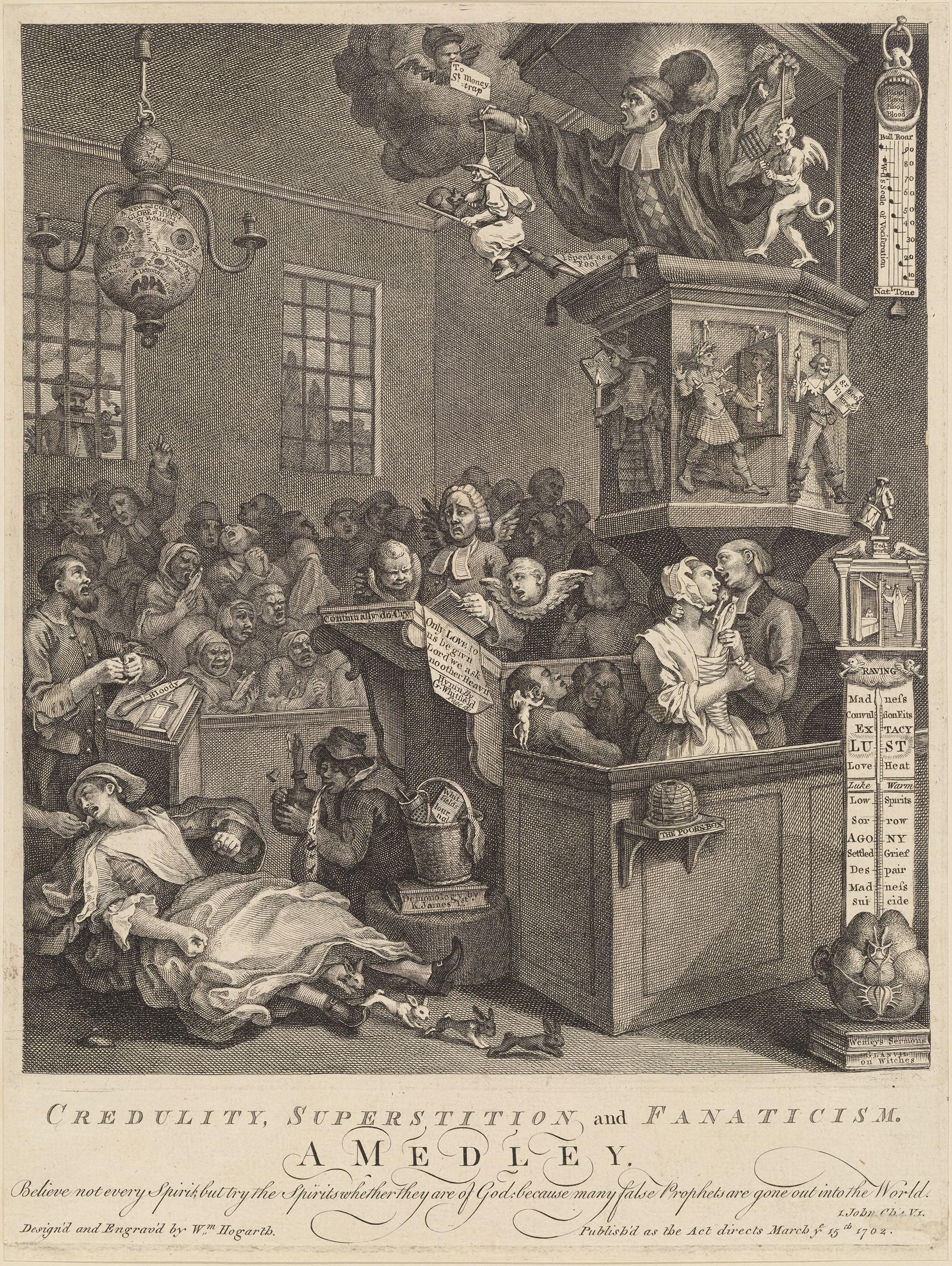
William Hogarth, Printmaker:
Credulity, Superstition, and Fanaticism. A Medley.
(1762)
" … never grant us any deeper understanding."
Publishing exists as an essentially infinite field. From an author's perspective, interacting with it carries all the context markers of any encounter with any infinite, by which I mean that there's no reasoning with it. Any individual interaction holds an essentially random possibility for any outcome: positive, negative, but mostly indifferent. In this way, at least, publishing does not quite qualify as a classic system. I might better describe it as a field and its products as perturbations. Something happens, but whatever occurs was never beforehand predictable. One casts into Publishing without ever knowing what might become of the encounter. One might dream of great good fortune, but there's no guaranteeing any outcome. The best anyone can promise might be an entry, an attractive offering. Whether anyone reads the damned thing, a matter of marketing, by which I mean a matter of credulity, superstition, and fanaticism: mysticism.
Ask any author how he happened to become successful, and the honest ones will answer with complete mystery.
Erratics
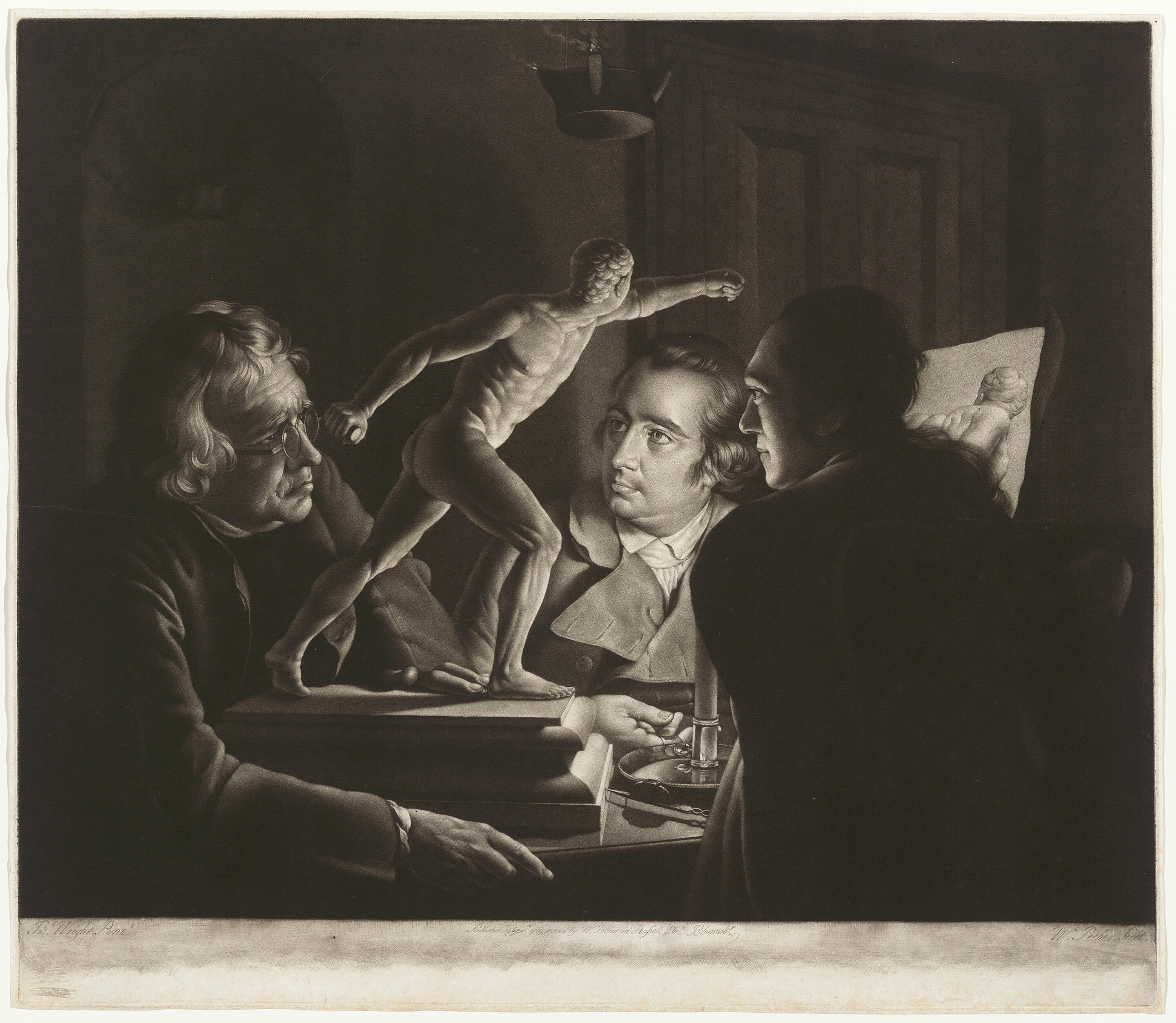
William Pether after Joseph Wright of Derby:
Three Persons Viewing the Gladiator by Candlelight
(1769)
" … evidence of history having happened and still present …"
What makes these stories a collected work? What unifying theme do they exhibit? Publishers seem to love to ask authors these sorts of questions, for they seek a discernible purpose for publishing something. One does not properly throw any odd old bunch of pieces together and label them A Work. Consequently, I choose a theme, this series' theme being Publishing, then head out into the wilderness to see what startles up out of the underbrush. I do not work from an outline, which I'm convinced only ever exists in fifth-grade writing teachers' fantasies. I try to keep my wits about me and observe what I do, and these observations become the grist for most of the resulting stories. This series could not exist without the provocation of the overarching theme and my own continuing observing. Still, the resulting series sure does seem awful various from a publisher's perspective, Erratic.
What do I look for when I'm so aimlessly wandering through my writing wilderness?
SwimmingLessons
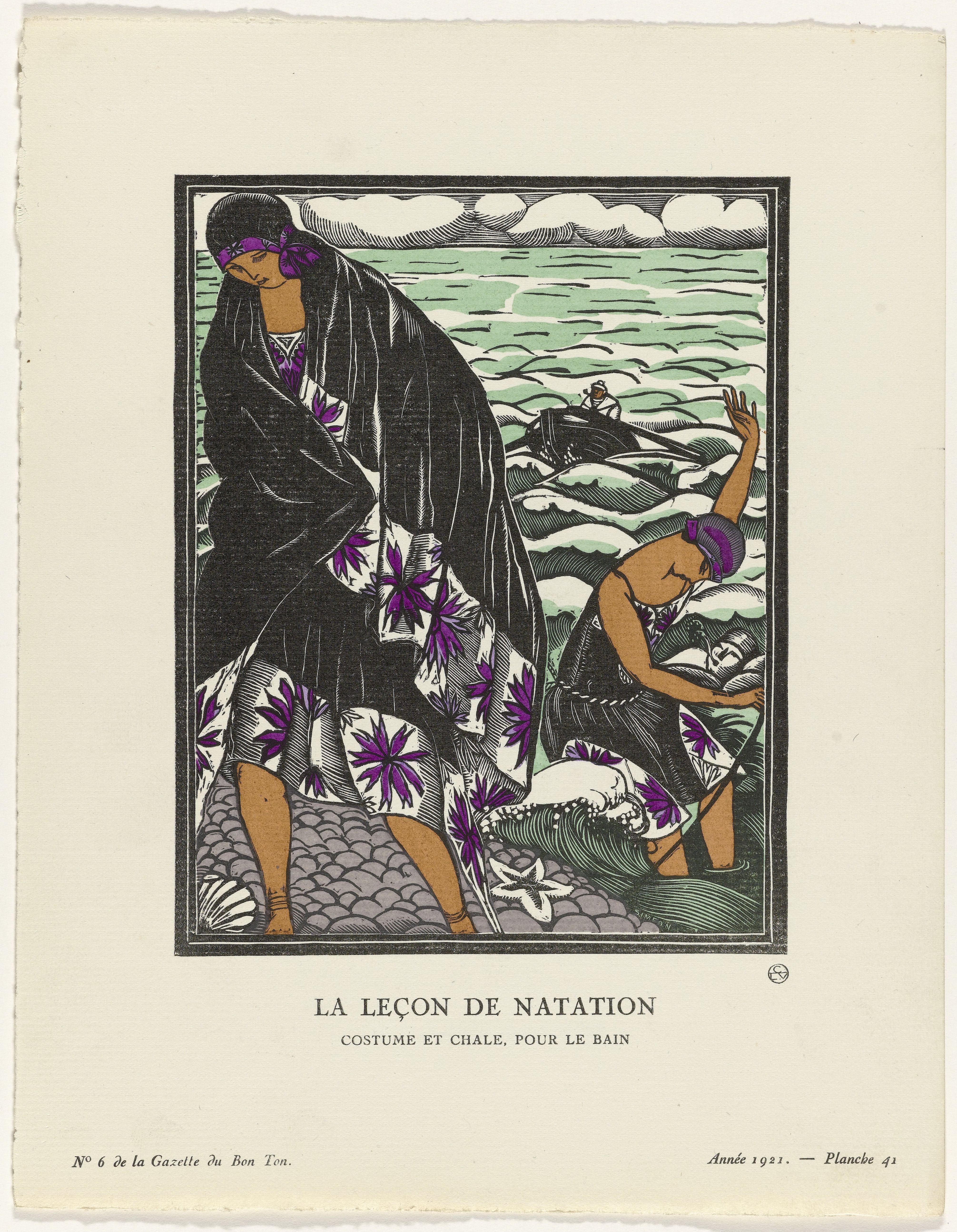
Fernand Siméon: Gazette du Bon Ton,
1921 - No. 6, Pl. 41:
La leçon de natation /
Costume et chale, pour le bain
[The Swimming Lesson /
Suit and shawl, for the bath] (1921)
"We all engage in SwimmingLessons which we'll never master."
I do not yet consider myself a competent practitioner of whatever it is that I do. I falsely claim to be a writer because I write, not because I consider my writing to demonstrate my competence. I no longer believe that practice might one day render me capable. I engage in a paranoid fashion, not merely as an imposter fearful of discovery, but as if I work on probation, subject to immediate dismissal at the whim of any uncaring overseer. I consider everyone competent to pass judgment on my production, their opinion, their own, and outside my direct influence. I no longer believe that I might one day manage to master my profession, but I will forever aspire to enter journeyman status from apprentice. Rather than practice, I work as if engaging in lessons, SwimmingLessons.
The ocean has never once been conquered.
MetaProcessing
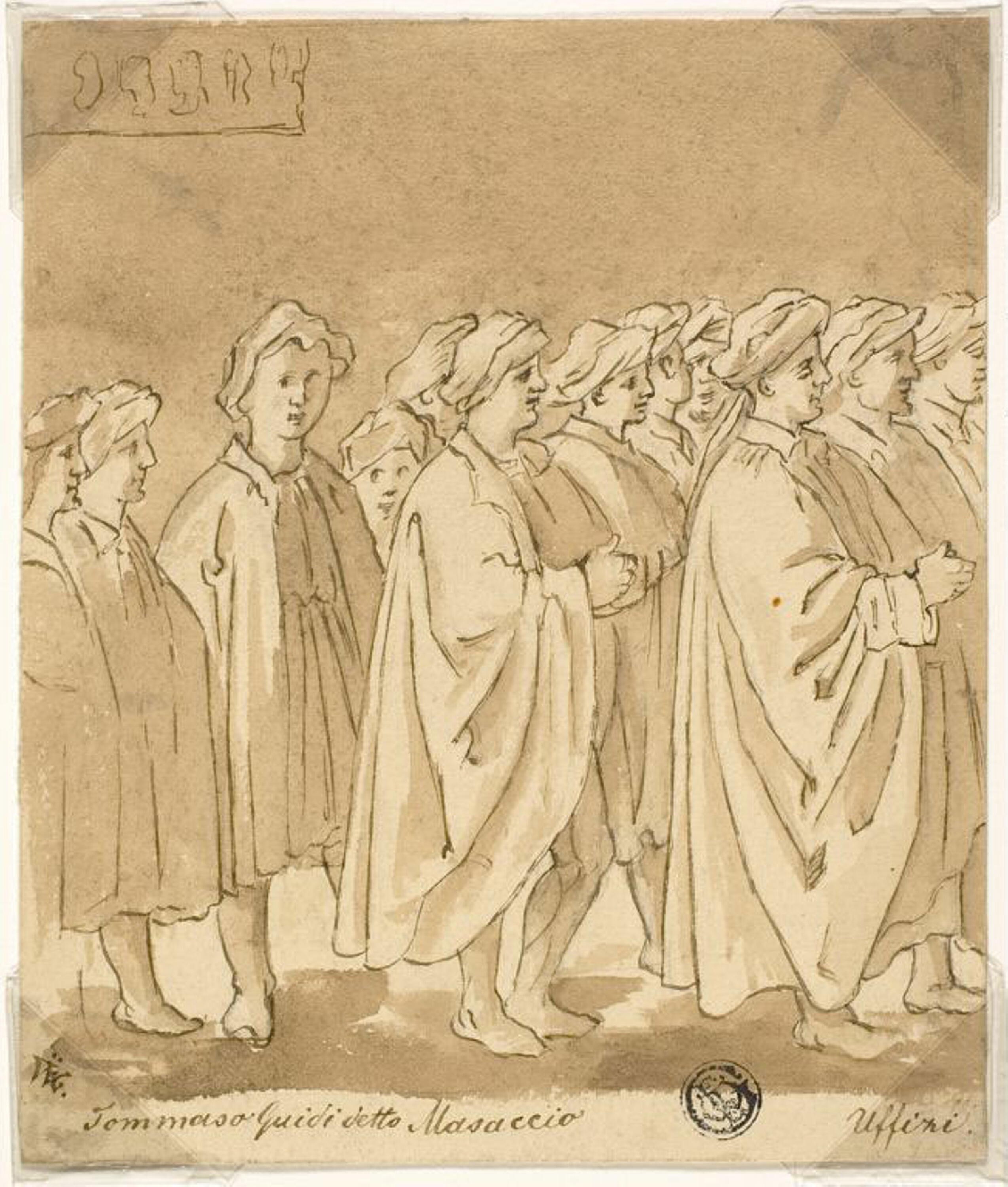
Unknown, after Masaccio: Procession of Figures (1700–1899)
" … mistaking wheel reinvention as some sort of fatal mistake …"
I've long suspected something fishy about process, and not just because of my professional encounters with Process Nazis, those people who could only see their worlds as a series of sequential procedures due to a genetic mutation or something. Modern recipes have no ancient counterpart, for the ancients never managed to become slaves to their routines. Instead, they seemed to have retained the ability to hold their intentions more lightly. As a result, they could only mass-produce a little of anything. Also likely true, they probably lived more satisfying lives as a result.
Now, we inhabit civilizations addicted to our processes.
Bletting
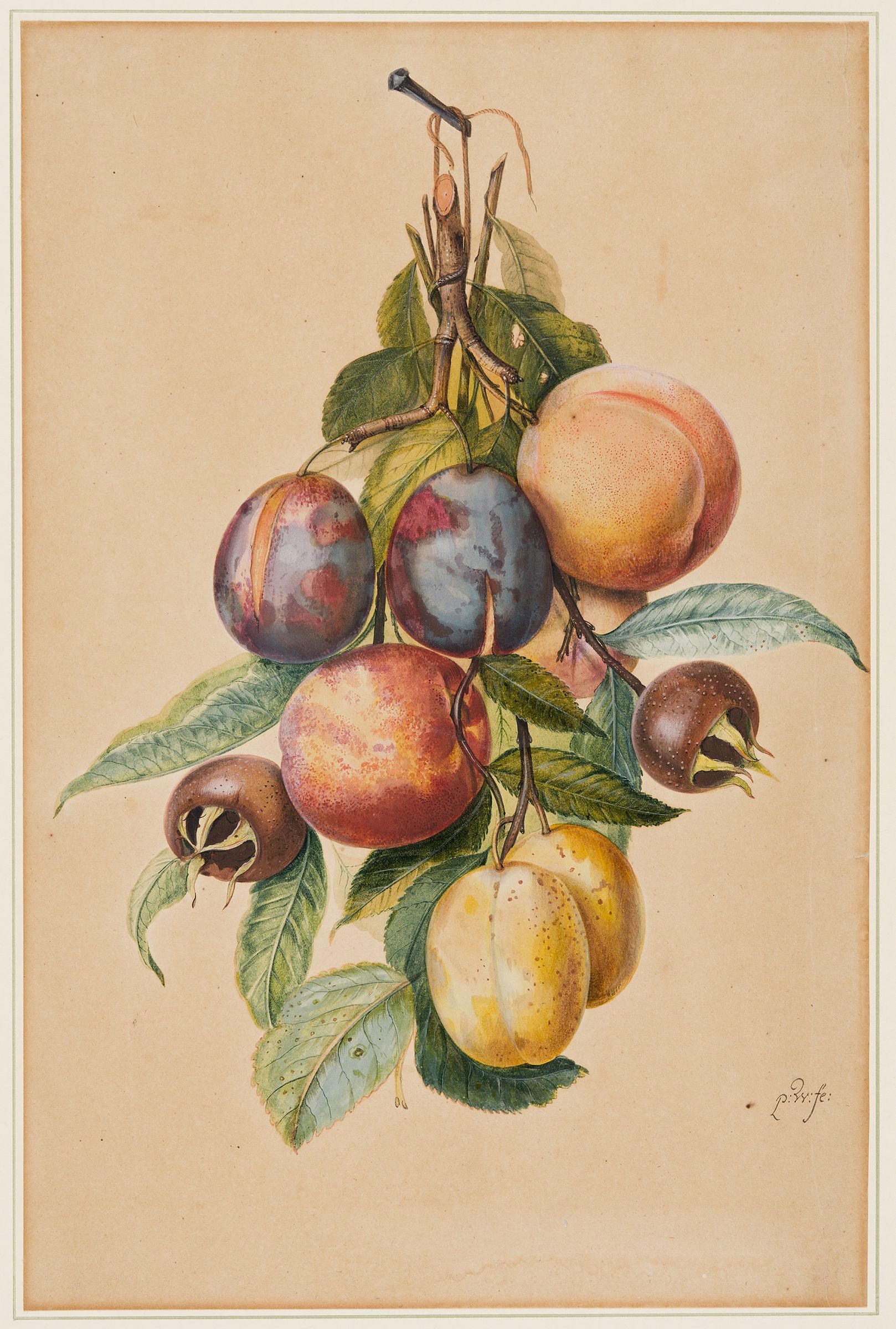
Pieter Withoos: Still Life with Plums, White Plums, Peaches and Medlars (17th century)
" … maturing into final form."
Some fruits require aging beyond their tree to become edible: quince, persimmon, and medlar most prominent among these. Each proves too astringent without further curing, the medlar famous for needing to age right to the edge of rotten before it attains its highly-prized and unique flavor. This curing process, called Bletting, historically occurred in some cool, dark place on straw to cushion the curing fruit. Bletting delays the usual essentially instantaneous fruit-consuming process. Typically, fruit's fate has been immediate consumption once spotted, stored for only very short periods, or preserved, for it usually features a remarkably short shelf life. Some portion of the fruit I purchase ends up in the compost bin because I can't quite keep up with it. It's living while actively dying, and I often lose track of where it’s going until after it's already gone.
The medlar, praised since Roman times, seems especially ancient, for it might need six or even more weeks of Bletting before it comes into its own for consumption, which often involves making a jam or sauce to enhance other flavors, especially wine.
Parallelling
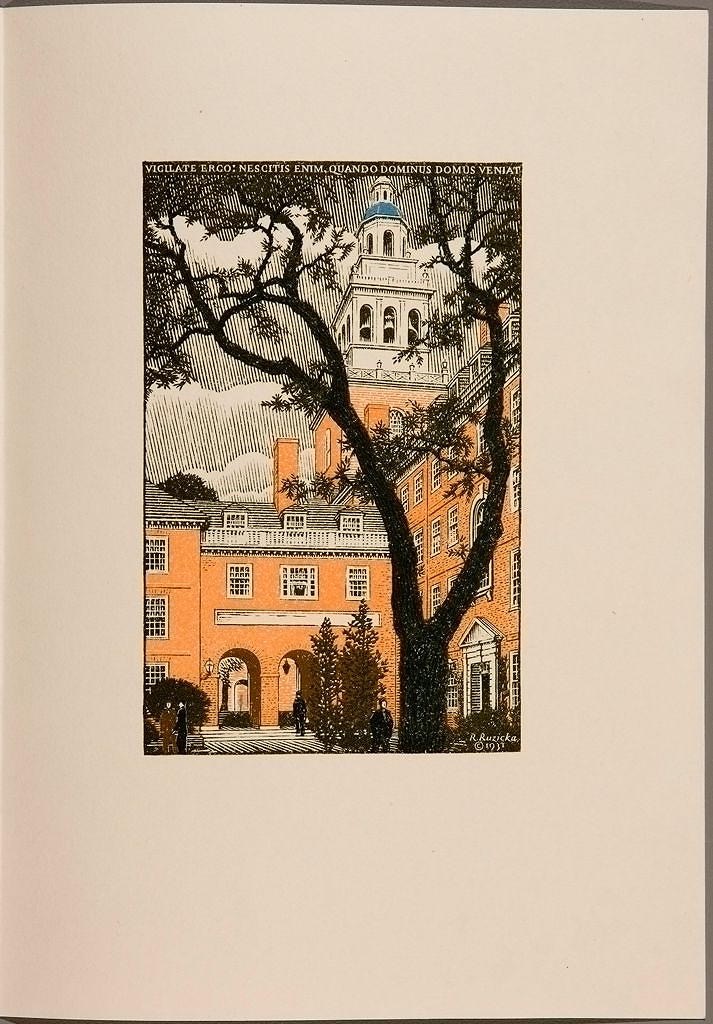
Rudolph Ruzicka:
Lowell House, Harvard University (c. 1931-32)
"My world, like yours, thrives on such intentions."
I maintain and manage a massively parallel publishing system consisting of many disparate parts conceptually connected but otherwise distant from and invisible to each other. I serve as the sole integrating factor, for only I know where the bodies have been buried because I was the one who buried every one. Using this system resembles serial graverobbing, in which my skills must approach master status. The resulting operation stretches the formal definition of system, as all integrated systems must. It was never designed and shows it. Nor has it ever been documented. Instead, it operates via a complex code of local knowledge and rumor. Some pieces barely serve their purpose, but its sole user knows of no better components or, at least, none cheaper. It includes nothing designed or marketed by Microsoft®, for our operator finds their products fundamentally unusable. This means that my publishing system most emphatically does not include MS-Word®, which, as near as I can tell, exists for the sole purpose of rendering writing, and so Publishing, fundamentally impossible.
This story, as every story I've written in this and every other series, simultaneously exists on several supposedly parallel planes.
StrategicHesitation
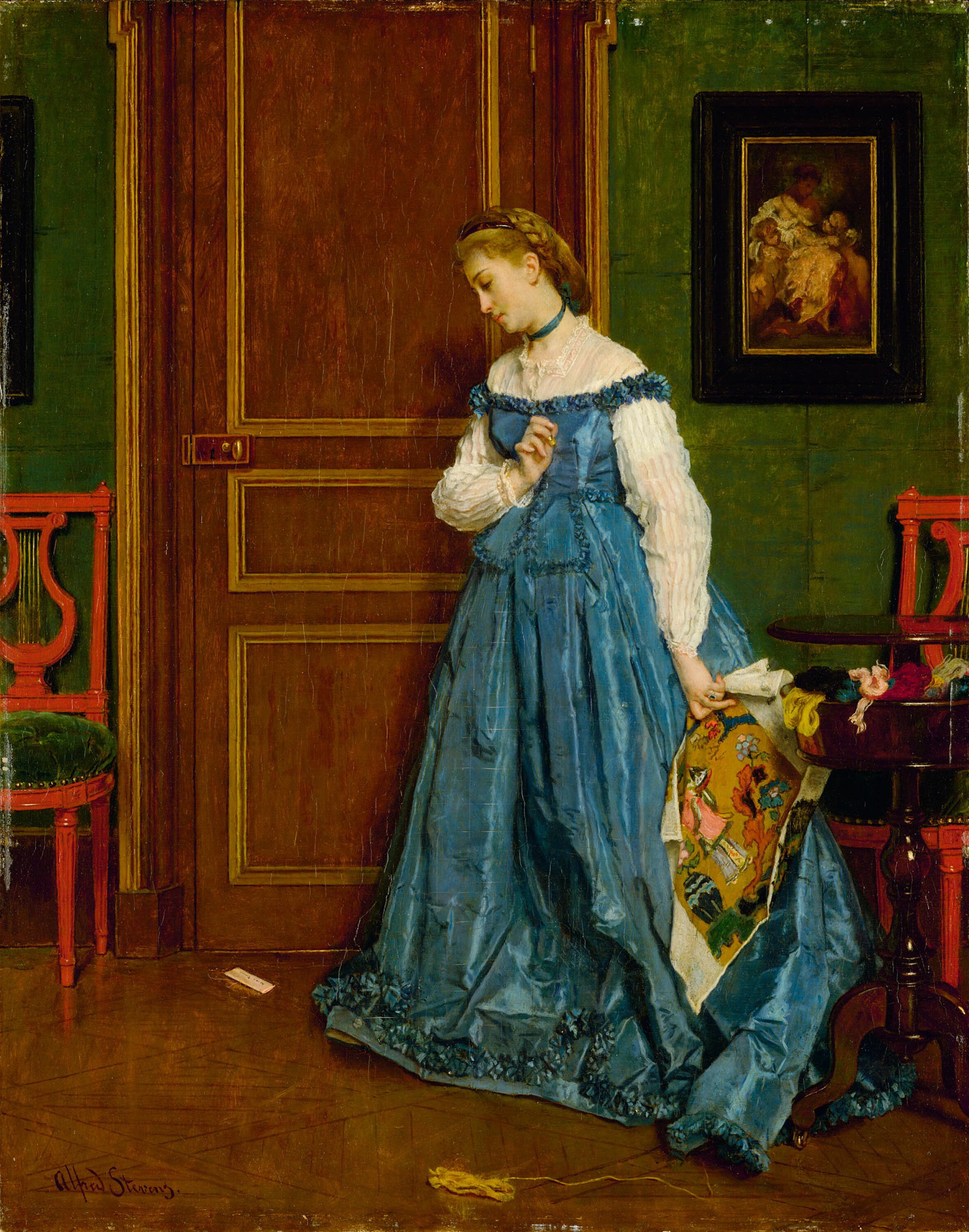
Alfred Stevens: Hesitation [Madame Monteaux?] (c. 1867)
"I might just be playing chicken with myself."
All who hesitate are not necessarily lost. Some certainly must be lost, but many engage strategically, not wanting to waste effort by expending it overenthusiastically and in a naive fashion. Especially immediately after experiencing some fresh revelation, people tend to go off half or even less than half-cocked, exercising freshly-discovered muscles in ways most likely to undermine intention and strain unaccustomed ligaments. I believe it essential then to resist that urge to charge forward holding that newly-discovered sword, lest that nascent swordsman do more damage than good to their cause. The first use of any insight might well best remain a sparing one. It's far too easy to overuse or even abuse unfamiliar forms of magic. It's often best to just use a sprinkle at first.
I have been encountering insights as I've explored Publishing.
KnowingNuthingness
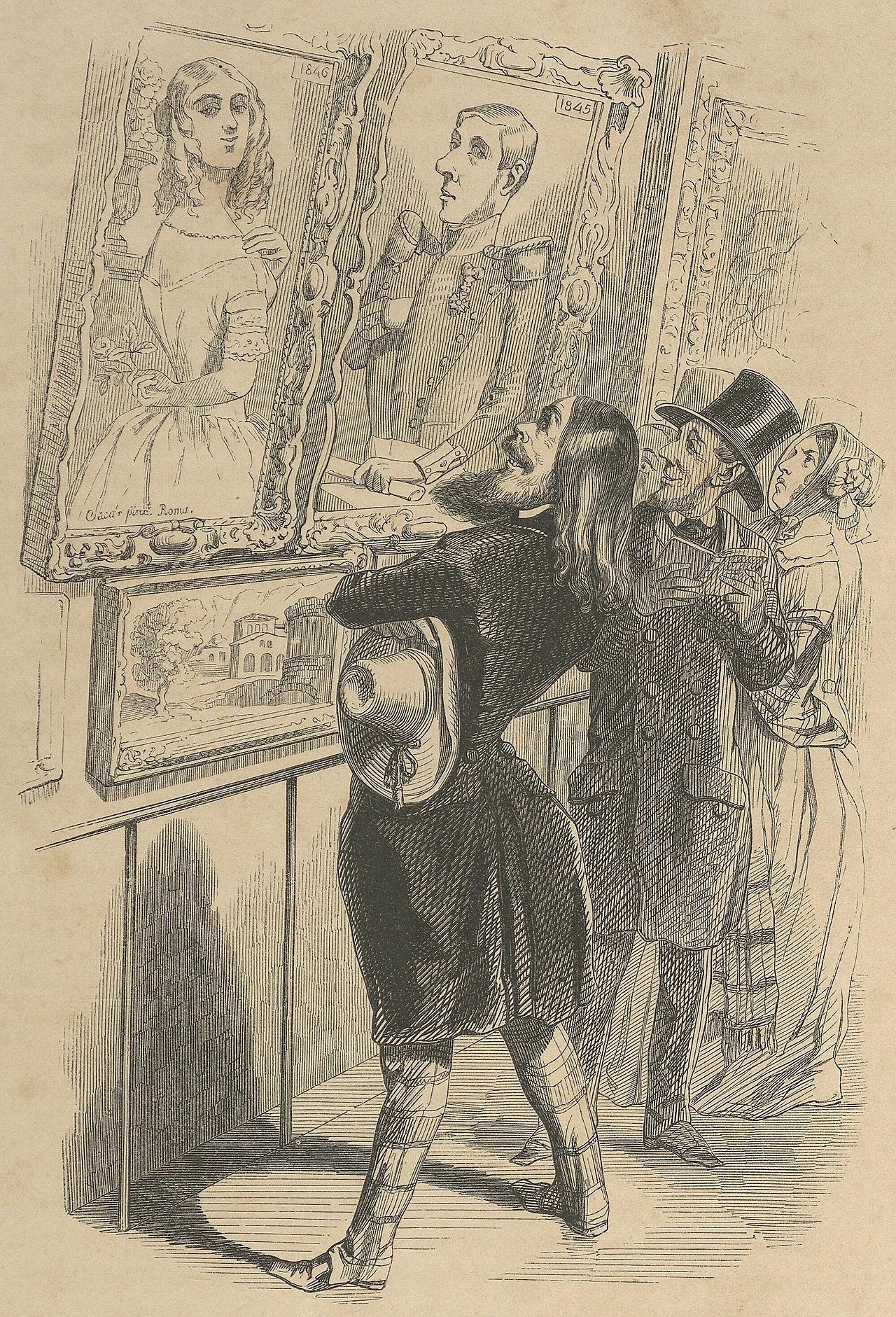
Jean Ignace Isidore Gérard Grandville:
Artist admiring his work.
Jerome Paturot a la recherche d'une position sociale
[Jerome Paturot is looking for a social position] 1846
"It's an unfair trade …"
Any profession diligently practiced eventually leads its practitioner back into a state of KnowingNuthingness. Any iteration of knowing action ultimately leads to fracturing understanding. One morning, or one late evening, our protagonist will experience KnowingNuthingness, just as if he was forever before merely faking facility as if he'd never actually known a blesséd thing. He will feel embarrassed recognizing the scores of stories he'd previously and irrevocably published, tales with gross errors embedded within them, each of which quietly disclosed just what an idiot he was, how filled with presumption he had been, how he had been masquerading while probably only successfully deceiving himself. The scales fall from his eyes in that brilliant moment, and he experiences his profession's peak sensation: Nuthingness again. He knows only in that memorable moment that he never knew Nuthing, that all of his passionate strivings had successfully guided him back to zero again. Again!
The wise ones insist that these sorts of experiences benefit the professional.
Homogenizing
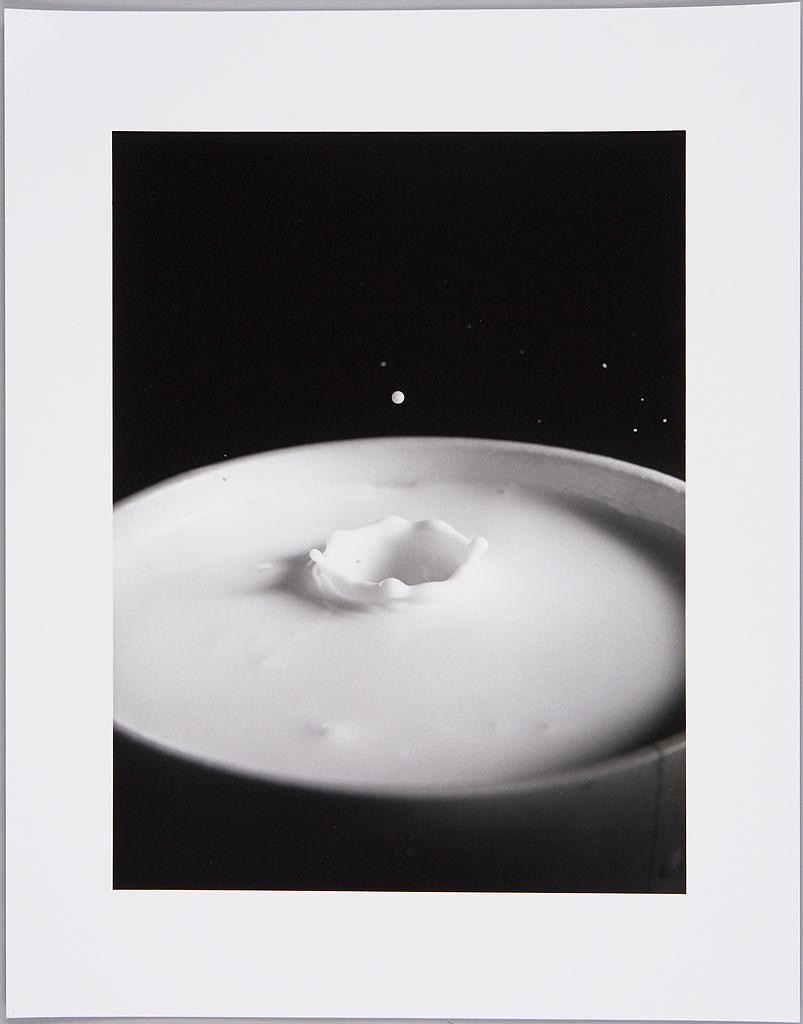
Harold Edgerton: Milk Drop into Cup of Milk (2) (1935)
“ … only become accessible once Homogenized …”
Those final editing passes amount to a kind of Homogenizing of the manuscript. First drafts tend to seem rough and feral in form. When creating, the writer wisely ignored many of the lessons their teachers tried to impart in favor of listening to their small, almost still voices emanating from their heart. Hearts do not know crap about comma placement, however, and no amount of intuition, no matter how damned well-intended, can predict what a Grammar Nazi might insist. It seems helpful to pass the work by Hoyle to gain his perspective, but a writer must never cede creative rights to any rule book. Much that makes a piece of writing interesting comes from its personality, tone, and innate quirkiness. Nobody appreciates a voice victimized by too damned much Homogenizing.
The A-Eye Grammar Engine seems determined to homogenize my writing.
Choreography
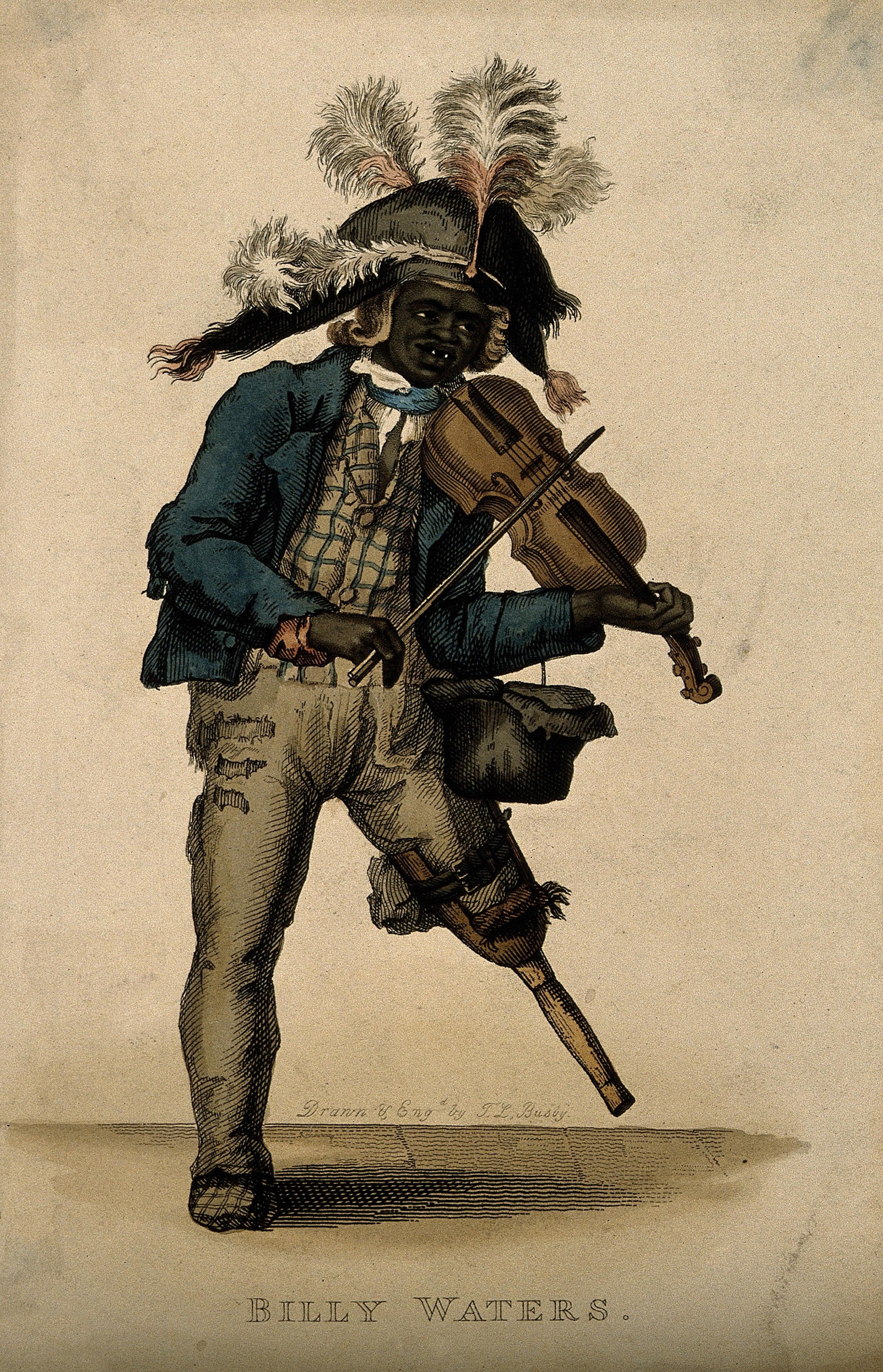
Thomas Lord Busby: Billy Waters, a one-legged busker.
Colored engraving from Costumes of the Lower Orders in Paris (1820)
"I build my castle upon shifting sands."
The steps I follow to successfully publish one of my daily stories have multiplied since I started writing this Publishing series. What previously seemed simple became complicated, though my intentions never considered creating anything convoluted. We all understand that this sort of outcome happens, though we remain largely baffled at how an urge to simplify produces complications. The expansion comes in insignificant increments, so-called inch-pebbles, rather than by milestones. An embellishment might require much more work yet produce an effect that seems damned well worth what initially seemed like a small additional effort. Multiply that tweak by twelve or even by five, and the resulting steps become challenging to hold in one's head yet remain too fresh to be easily turned into a checklist.
At some point, what starts as an inspired improvisation becomes an imperative, no longer mere embellishment but an integral part of every performance, not to be omitted.
A-Eye
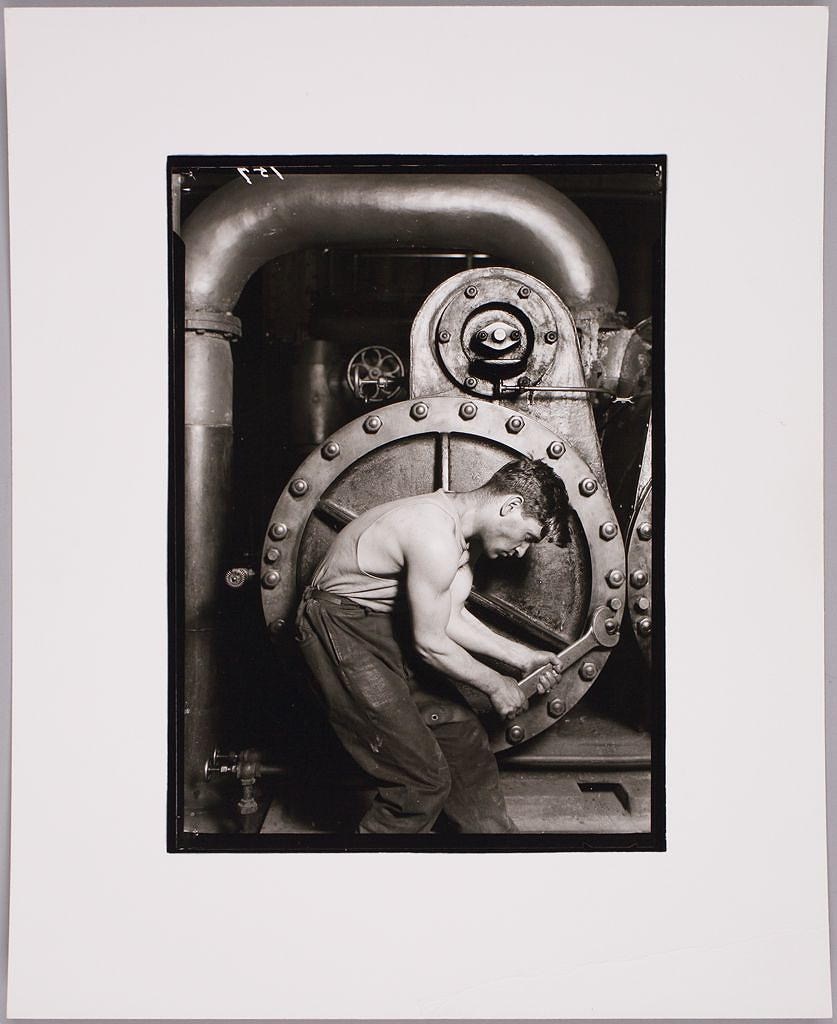
Lewis Wickes Hine: Powerhouse Mechanic (1921)
" … a rather bleak and lonely job …"
I have a confession to make. I sincerely hope that this one will prove to be good for my soul, as I'm reliably informed that confessions tend to be good for the confessor's soul. As with all confessions, this one might involve the disclosure of some sin I've committed or, if not precisely, a sin, some shortcoming. One confesses, I guess, in the sincere hope that one might gain forgiveness, at least from themself and, perhaps, from others. Atonement might or might not be indicated in this situation. I risk ruining my reputation, though, so listen generously, please, understanding that I'm just flesh, more than capable of falling short of any ideal.
I started using AI this week in the form of an Artificially Intelligent copyediting engine.
RabbitHoling
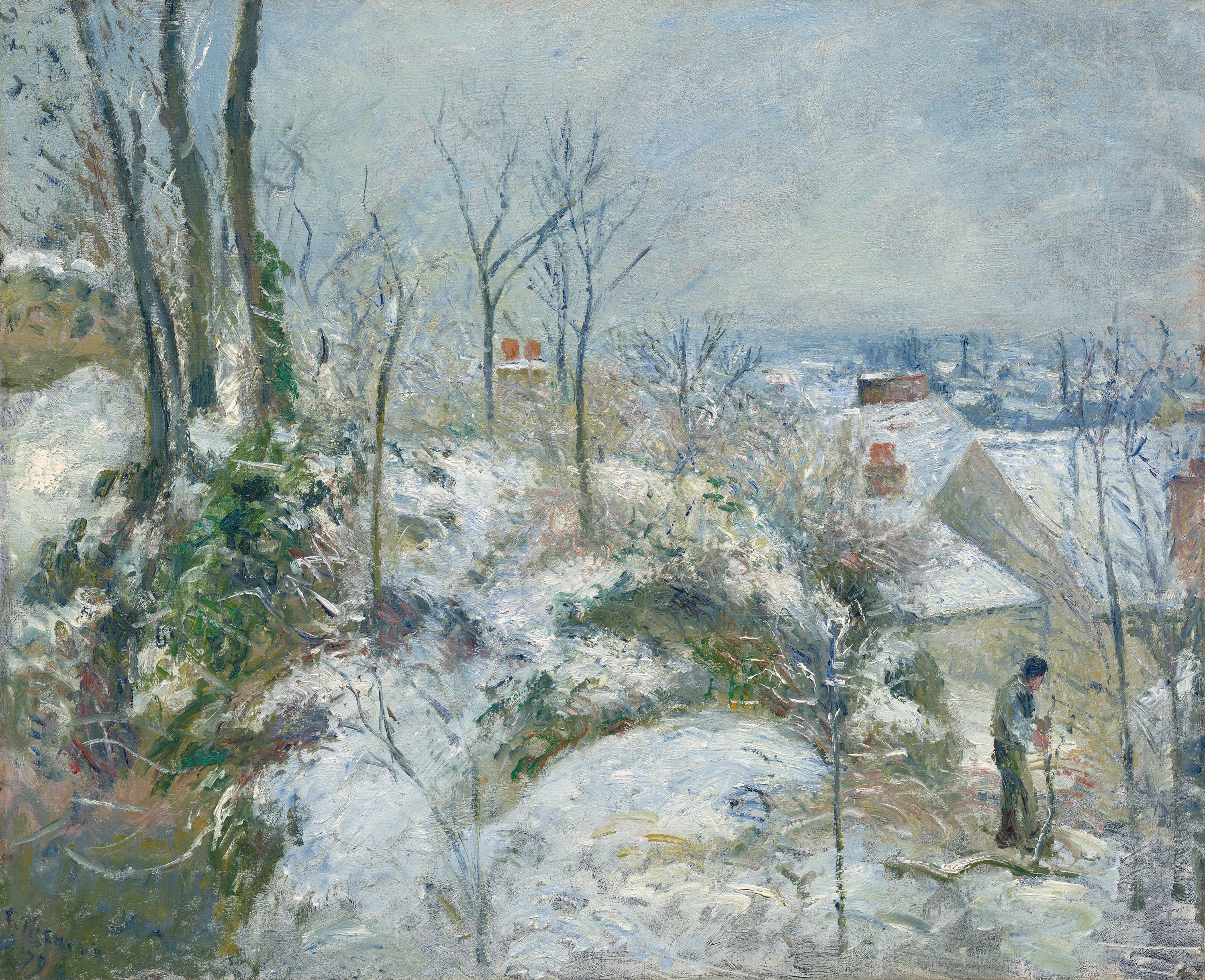
Camille Pissarro: Rabbit Warren at Pontoise (1879)
" … yet still enormously proud."
Final editing seems like preparing a corpse for burial. The body's mass and shape serve as no concern; only appearance matters then. The time for constructive criticism passed long before. The plot's pattern resolved; the author wants only to remember this story as one he finished without regrets. It will always be just as he leaves it now, and the work, on exit, nudges its author into what appear to be warrens, twisting tunnels down surprising holes. The final effort before publishing might as well be labeled RabbitHoling.
The actual finishing work feels remarkably renewing.
PastSins
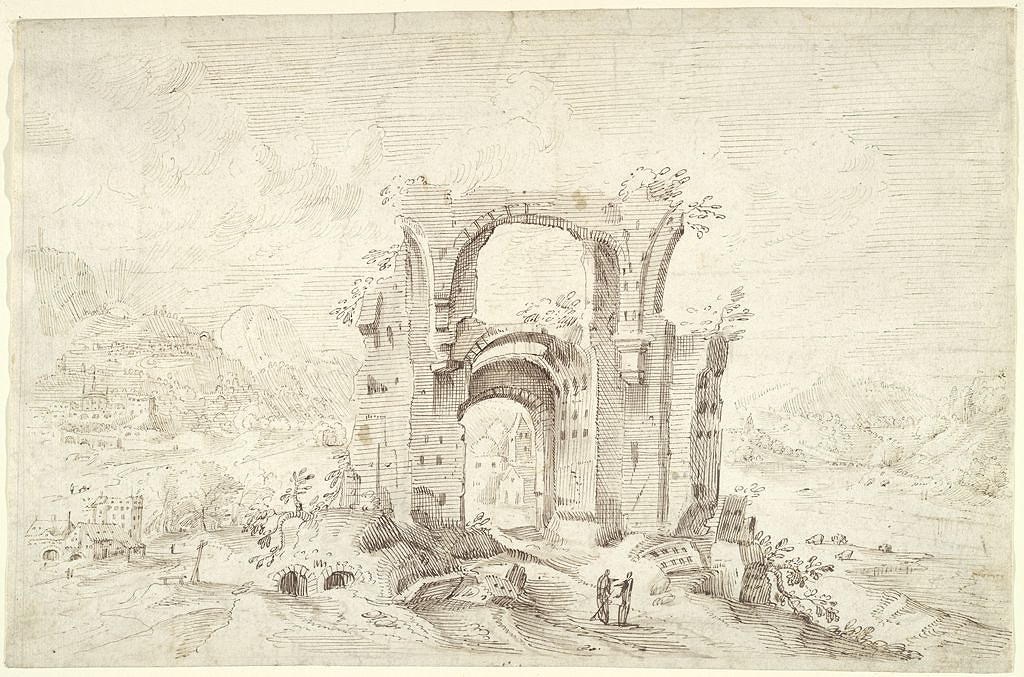
Circle of Hendrick van Cleve III:
Landscape (c. 1525-1589)
"A writer's work never gets done."
Publishing serves as the terminating step in a long series of creations. It works like beatification in that it represents a work's entry into that much-vaunted "state of bliss," whereby it might prove worthy of public veneration. More importantly, it moves out of what I might best describe as a persistent state of sin, for each unpublished work represents some PastSins as yet unforgiven. Writers feel haunted by their collected works which have yet to find publishers. These lay around like haphazardly set aside toys, interrupted before completing their mission. Many of those pieces probably could have never really qualified as more than practice, but they remain undead, never entirely forgotten.
The flotsam surrounding every working writer sometimes (like often) seems overwhelming.
Grooving
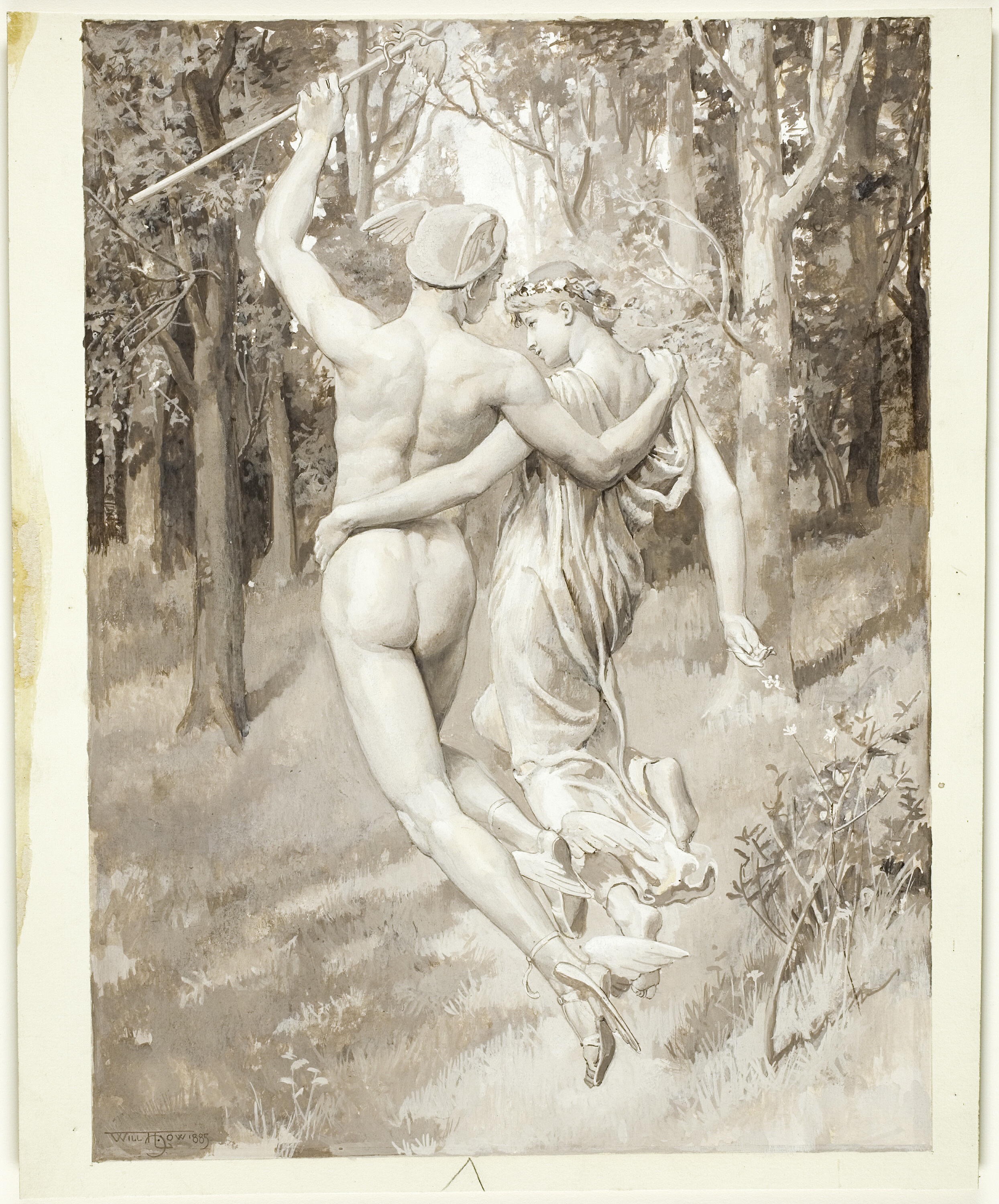
Will Hicock Low:
Into the Green Recessed Woods They Flew (1885)
"The journey, not the arriving, might just be the purpose here after all."
I distrust anyone who seems to know where they're going from any outset, and that goes double for anyone who appears to know very much about how to get there. The first while should properly humble any adventurer as he settles into his somewhat surprising new context. It must be different than expected, or it’s not an adventure. More than half of any excitement comes from the surprise emanating from it. It really should seem different, though judgment had rarely matured to the point yet where very much appreciation accompanies these initiations. They're almost universally experienced as inconveniences, as problems, as broken and needing fixing. Usually and fortunately, by the time the initial disorientation settles down, some fresh Groove emerges from the chaos, and things at least start promising to unfold more smoothly, with no intervention to fix anything really necessary.
My inquiry into Publishing should have proven no different from any standard Class A excursion.
FeedingSystems
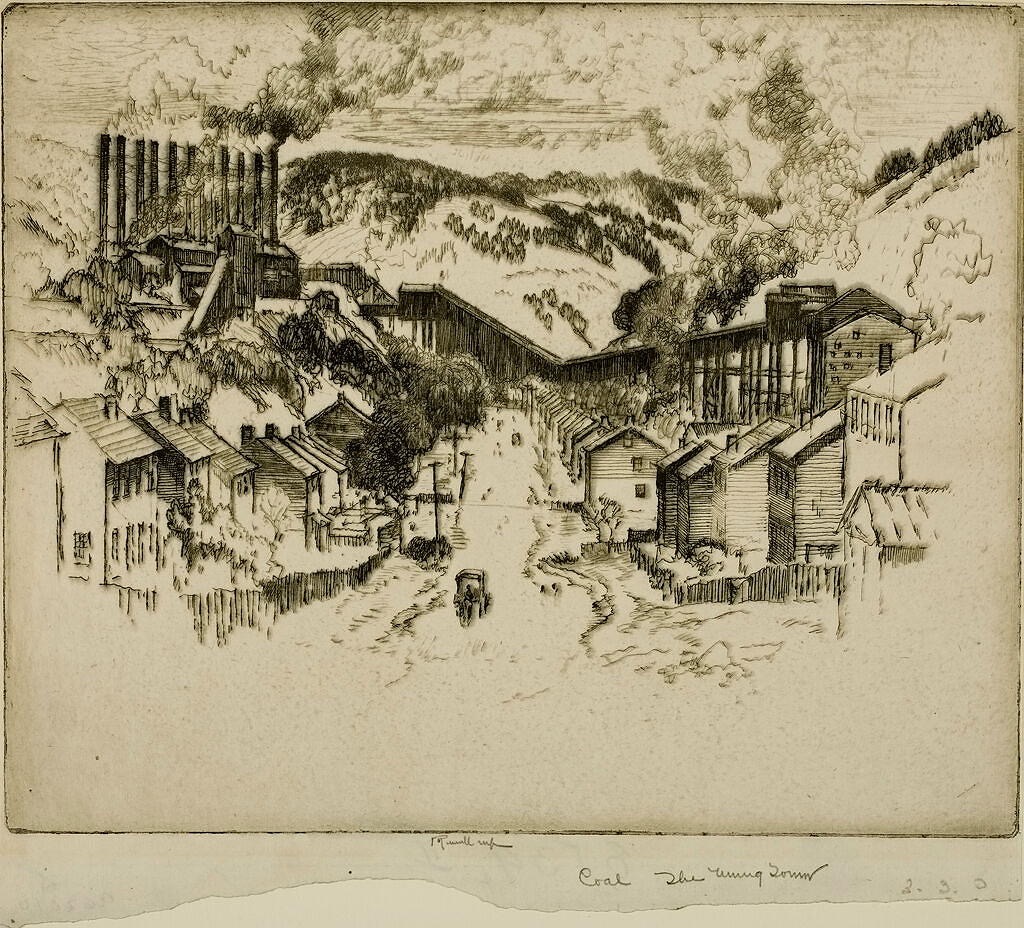
Joseph Pennell: Coal Mining Town (19th-20th century)
" … necessary effort …"
Writing works as a relatively self-contained and self-satisfying occupation because it's typically accomplished in near-perfect isolation. Just the writer and his thoughts bleeding out onto the keyboard, a tightly contained system. Publishing adds exponential complexity to writing's simplicity, to the point that writing might seem almost beside any point. The writer leaves the moment to live in anticipation of some future. He writes for an audience then and loses some connection to the familiar small, almost silent voices which had previously guided his hand. He gains the questionable gift of self-awareness, stage presence, and management obligations to engage in FeedingSystems.
That printed page proves insufficient to share and must be duplicated, packaged, and shipped somewhere, somehow, and all that requires systems.
CopyWrongs
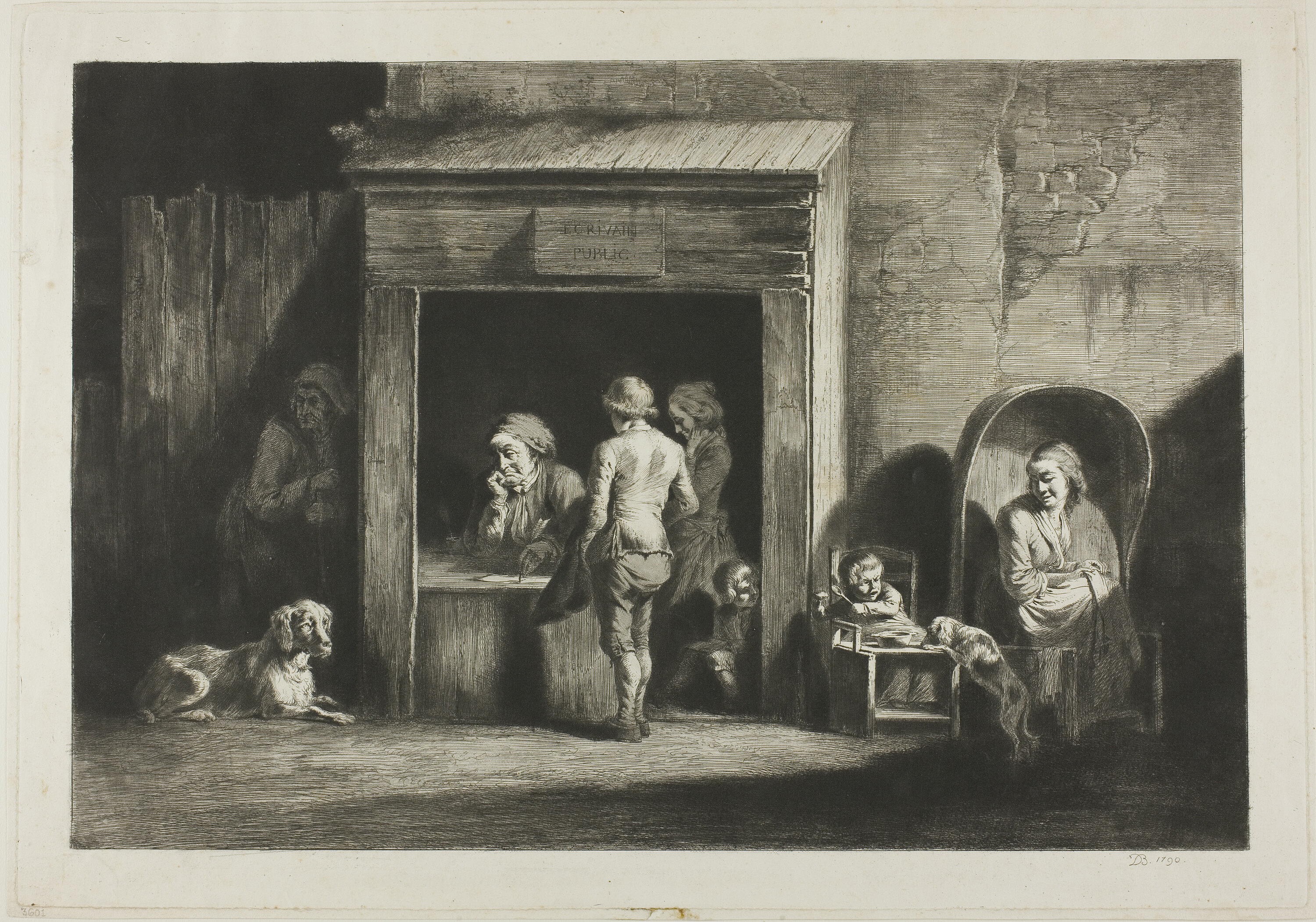
Jean Jacques de Boissieu [after Jacob van Ruisdael]:
The Public Scribe (1790)
… tend to default to their Bastard setting unless questioned …"
Publishing exercises what's called copyright, the right to copy. According to common law, copyright belongs to the creator of a work, though that ownership can and often is bargained away in exchange for Publishing. For example, one common precondition to achieve publication involves the creator agreeing to assign their copyright ownership to the work over to the publisher. This transaction has become so widespread now that it's rarely questioned, though other agreements remain possible. For example, some publishers satisfy themselves with First Print Rights, accepting that the author rightfully owns their work in perpetuity but that they might share the work more broadly without making an orphan out of it.
Copyright, in practice, seems a civilizing convention.
UnwieldyMachine
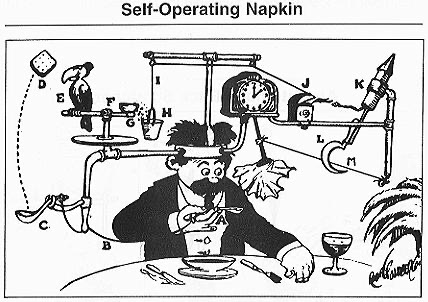
Rube Goldberg:
Professor Butts and the Self-Operating Napkin (1931)
Soup spoon (A) is raised to mouth, pulling string (B) and thereby jerking ladle (C), which throws cracker (D) past toucan (E). Toucan jumps after cracker and perch (F) tilts, upsetting seeds (G) into pail (H). Extra weight in pail pulls cord (I), which opens and ignites lighter (J), setting off skyrocket (K), which causes sickle (L) to cut string (M), allowing pendulum with attached napkin to swing back and forth, thereby wiping chin.
"We're none of us terribly efficient."
My decades of experience with Systems Thinking leaves me incapable of not thinking of Publishing as just another sort of machine, though it seems at best an UnwieldlyMachine. Some devices, though complicated, seem relatively simple. Not so Publishing. I suspect it acquires its apparent unwieldiness from the human effort embedded within it, for Publishing's never accomplished by the mere flick of a switch. Some pieces have been long automated to various degrees. I'm thinking of Gutenberg and his bible printing machines, but even those required excessive amounts of tedious human effort to produce their product. They represented a quantum leap beyond hand-producing illustrated manuscripts, but they remained tedious as, indeed, has the overall Publishing "system" to this day.
Its necessary mindfulness helps render it Unwieldy, for mindfulness takes time when the whole purpose of systems seems focused upon trimming time from production.
SelfReliance
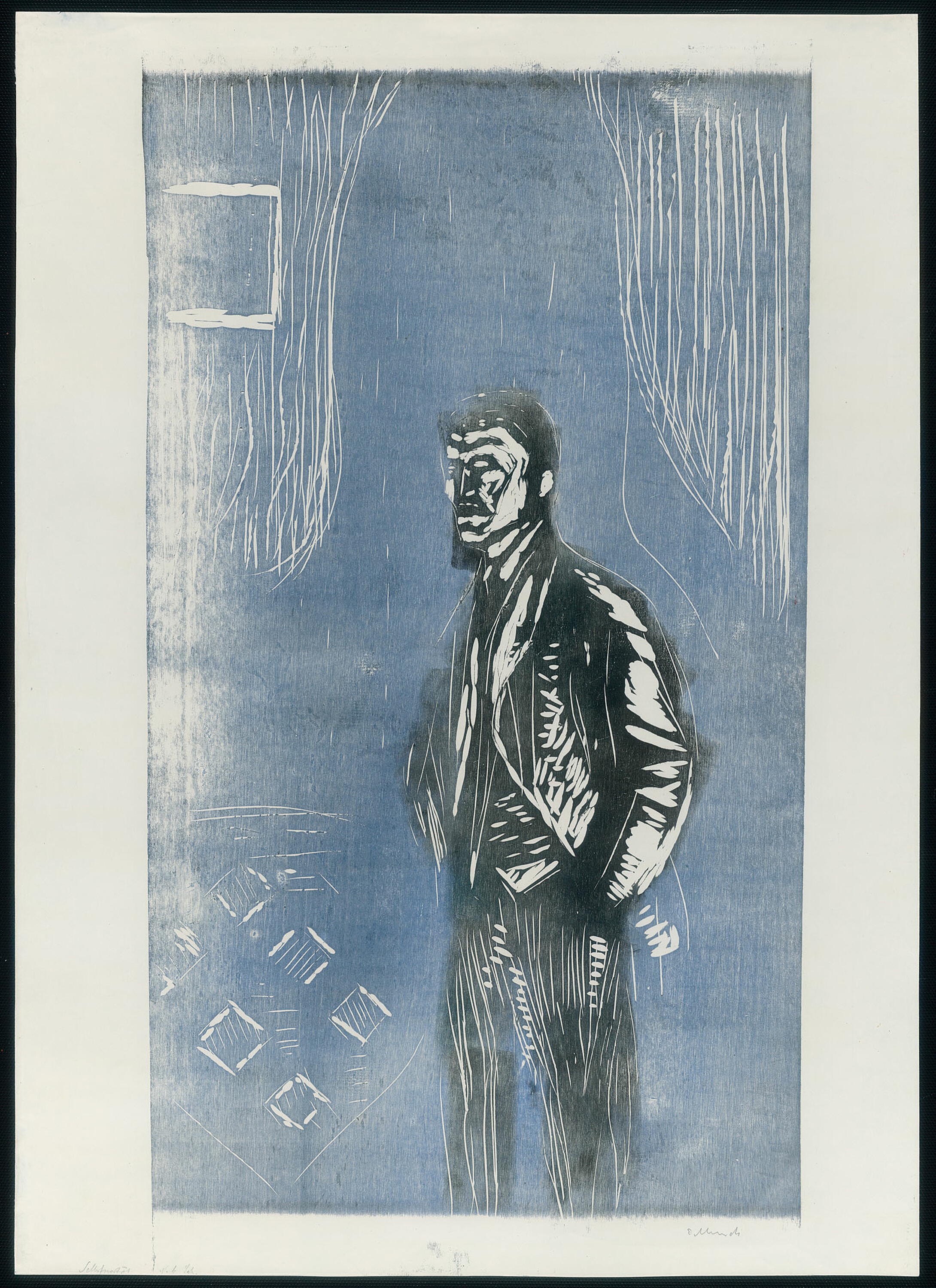
Edvard Munch: Self-Portrait in Moonlight (1904–06)
" … a lesson which I never expect to stop learning."
However steeped in frontier tradition the concept might be, SelfReliance seems worthless when Publishing. While writing might be fairly characterized as a solo endeavor, Publishing's inescapably plural. It features altogether too many moving parts and picky pieces for any individual to master. It takes a village, and all that, to publish.
Still, the writer blanches through acceptance of this humbling fact.
ShelfDiscipline

Lucian and Mary Brown:
Untitled [boy playing with action figures on shelf] (c. 1950)
" … groaning in the background."
The manuscript shelves in my office hold printed, unfinished manuscripts. It serves as one of the stages in my never-ending seeming copyediting queue. Since I find copyediting disquieting, I rarely visit those shelves, so they also serve as an essentially infinite queue. I cannot imagine ever arriving at the end of that pile. It grows by one fresh member every quarter, and I'm several quarters behind. How many? I cannot tell for certain, for I only managed to start a list when I began writing this Publishing series. I've not yet finished it.
I seem to lack a specific sort of discipline; the ShelfDiscipline required to conquer my copyediting queue.
PluralSelves
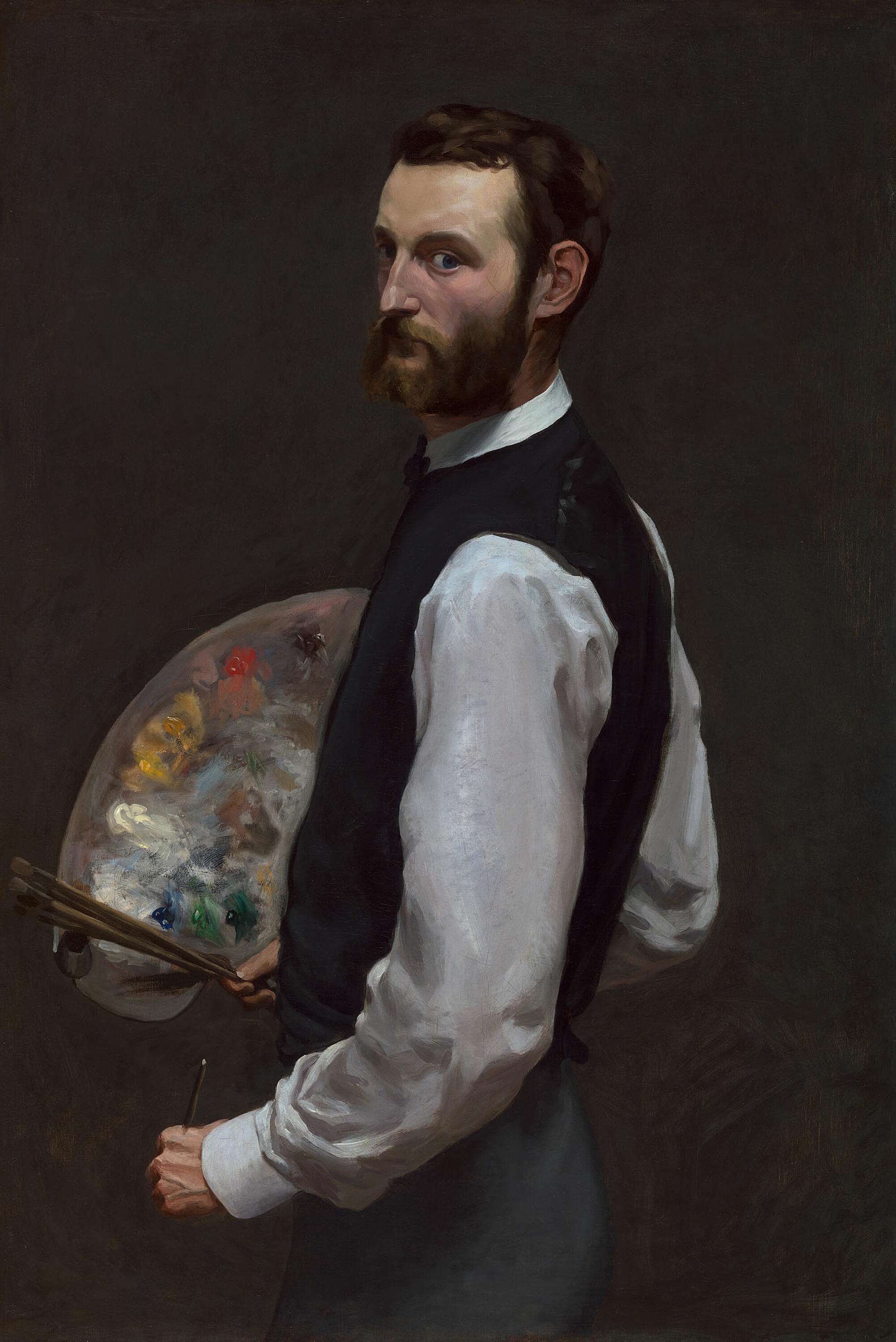
Frédéric Bazille: Self-Portrait (1865/66)
" … a life far removed from its author."
Most of the great nineteenth and twentieth-century painters produced self-portraits, works that at first looked very much like them but which later took on other lives. Writers perform this trick, too, for they also inescapably produce self-portraits. I might argue that anything any artist produces amounts to another self-portrait, whatever the content, and that each work goes on to live a separate life from its creator. Artists live life as PluralSelves, with at least as many instances of themself as works they produced. Publishing distributes an artist's work more broadly than their studio. In this way, an artist's presence need not depend upon that artist's physical presence. Their influence stretches much farther than they ever know.
Few consumers of any artist's work ever think to drop that artist a note of appreciation to thank them for exerting the influence they produced.
APublication
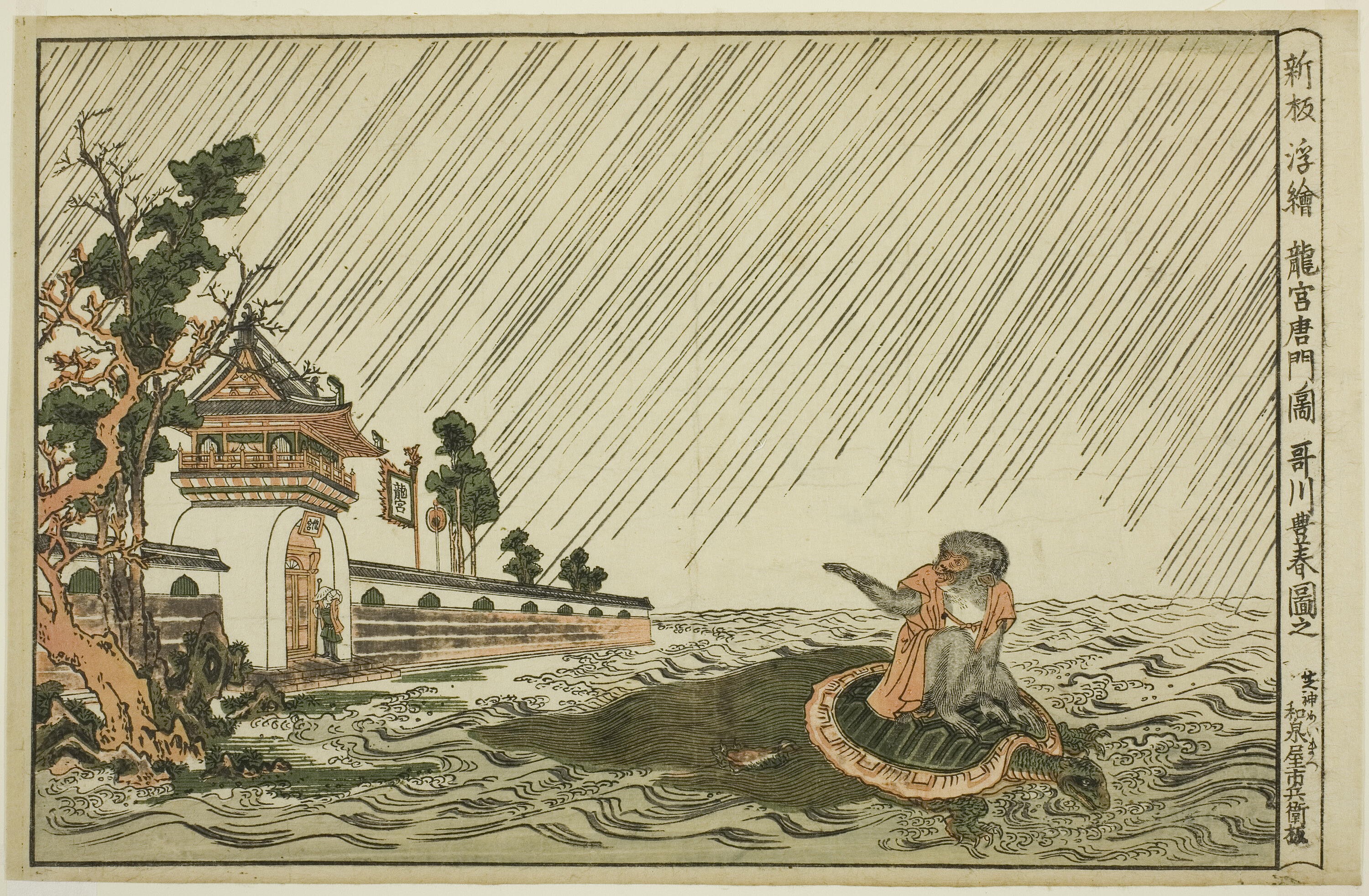
Utagawa Toyoharu:
Newly Published Perspective Picture of the Gate
of the Palace of the Dragon King
(Shinpan uki-e Ryugu karamon no zu) (c. 1772/89)
" … illegal prepositions at the end of imperfect sentences."
My son Wilder, visiting with his two kids over Spring Break, slipped upstairs as we waited for breakfast, returning with a slim volume. It was the long-awaited book of my dearly departed Dwarlink Dwaughta Heidi's poetry, freshly published. After she died, a family friend who had also lost her poet daughter at an even younger age volunteered to edit a volume of Heidi's surviving works, for her poetry seemed suddenly immortal, certainly more so than their author. My first wife wrote a brief forward, I contributed an afterword, and my son, an accomplished fine artist, produced the cover art. I held a thin slice of time in my hand.
APublication can achieve this sort of impossible.
DamnedPandemic
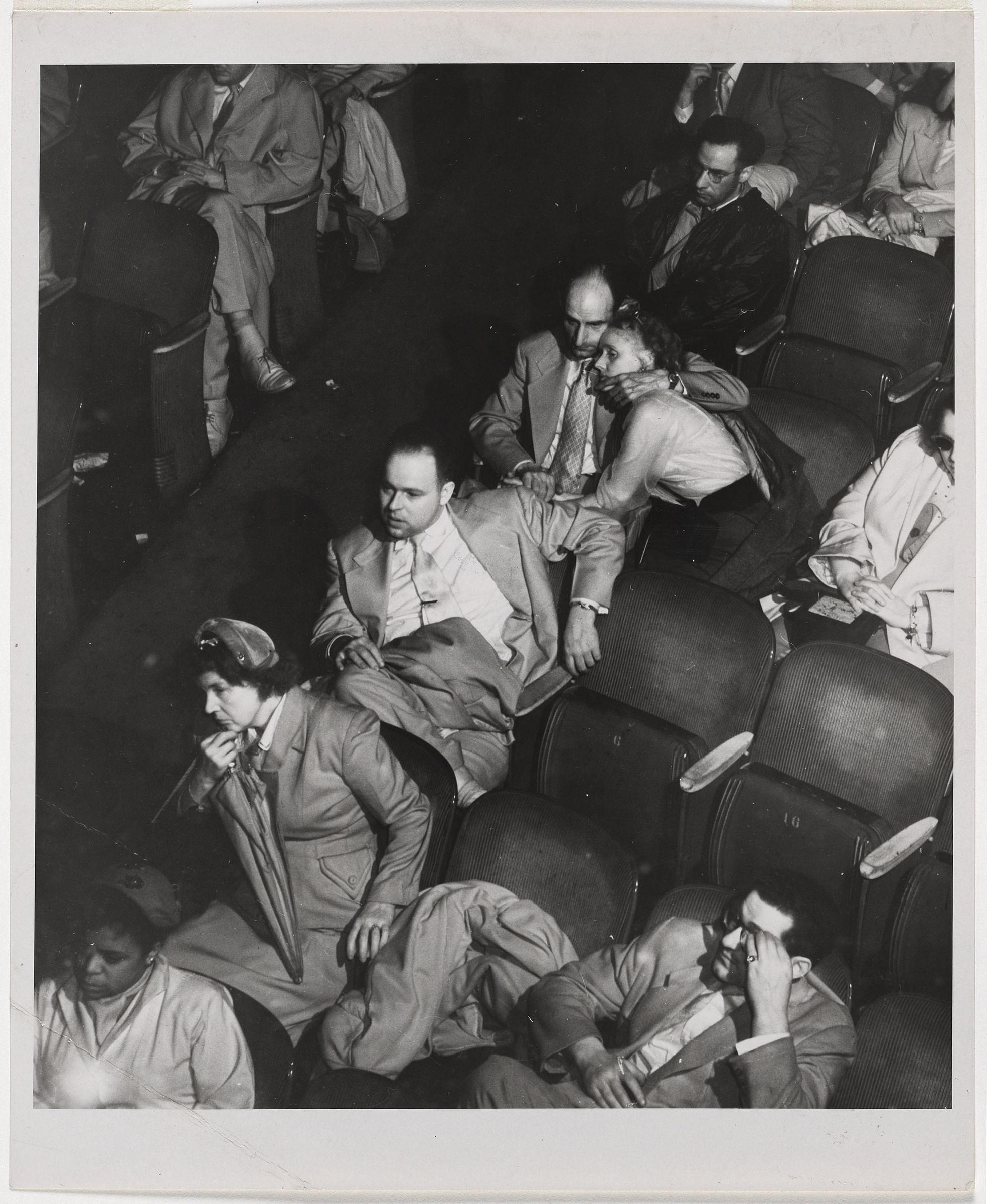
Weegee (Arthur Fellig):
Audience Reaction (c. 1940 - c. 1950)
"I'll always continue wearing my mask."
Our continuing Damned Pandemic has utterly changed my relationship with this world. Previously unimaginable reactions to what certainly appeared to be clear and present dangers left me feeling extremely paranoid. I gratefully took to wearing my mask, baffled why some found the task onerous. Fresh definitions of freedom emerged: I, with my freedom to wear my mask in public, a great and reassuring liberty to me, and others, with their belligerent insistence to never wear one, whatever the personal or collective consequences. I saw self-centered cynicism run rampant, even among family members. I, myself, sequestered. I took respite behind firm defenses. My paltry social existence further withered. I essentially became a hermit.
I invited a few into my bubble, and a blesséd few accepted my offer.
SmallStumbles
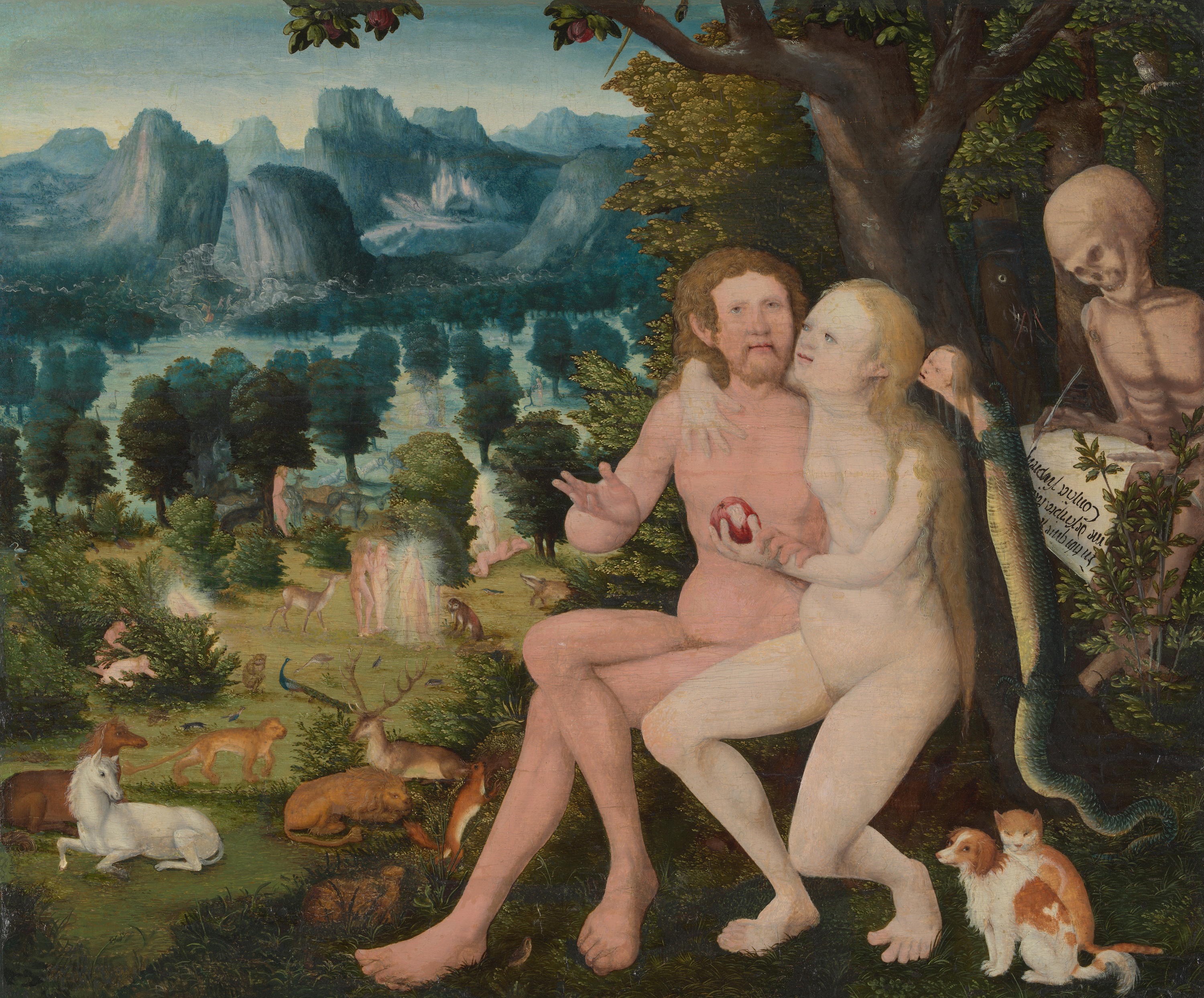
Attributed to Augustus Cordus:
The Fall of Man with Scenes of the Creation (1544)
"This is Publishing?"
The first few steps disorient me. I had become accustomed to success, easy success, and actions taken within my domain. Outside, trying different, I find walking disorienting. I cannot find my spot. I need to think carefully, ponderously, before moving, and even then, I discover that I'm moving in some wrong direction, not precisely backward, but not precisely forward, either. I seem capable only of SmallStumbles. I inch my way along. My more grandiose schemes utterly gone, I seek footholds and still stumble. I relearn that I can move forward in reverse, backing my way into my future, but I have to look over my shoulder. My perspective narrowed, and I feel grateful for achieving any momentum and calling that progress. Small steps with SmallStumbles amounts to initial success.
I'm not yet sold on the idea of Publishing.
BreakingGround
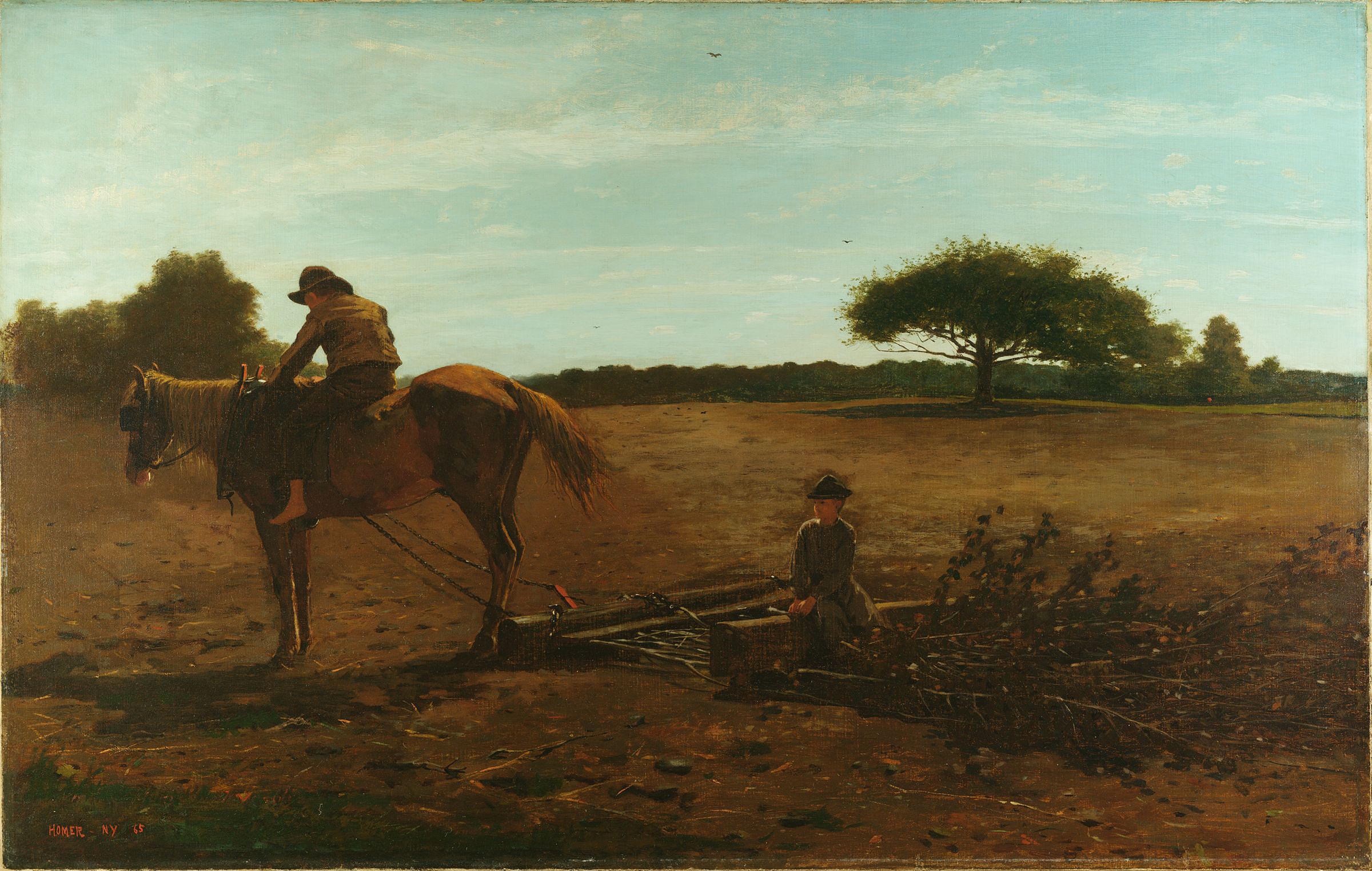
Winslow Homer: The Brush Harrow (1865)
" … hoping for better without ever really expecting it."
Spring threatens before arriving. I can imagine it already here, even before the equinox, even while it continues snowing some mornings. The sun's angle serves as inexorable evidence of its imminent arrival. I'm caught unprepared. Even if I had properly prepared last Fall, I would still feel unprepared because everything suddenly wants doing at once. Wherever I might begin will feel like the wrong place to start, a distracting sideshow from the actual effort needed. It doesn't matter where I get started. It very much matters that I begin.
However much I might have prayed for these days' arrival, I will drag my heels.
Averting
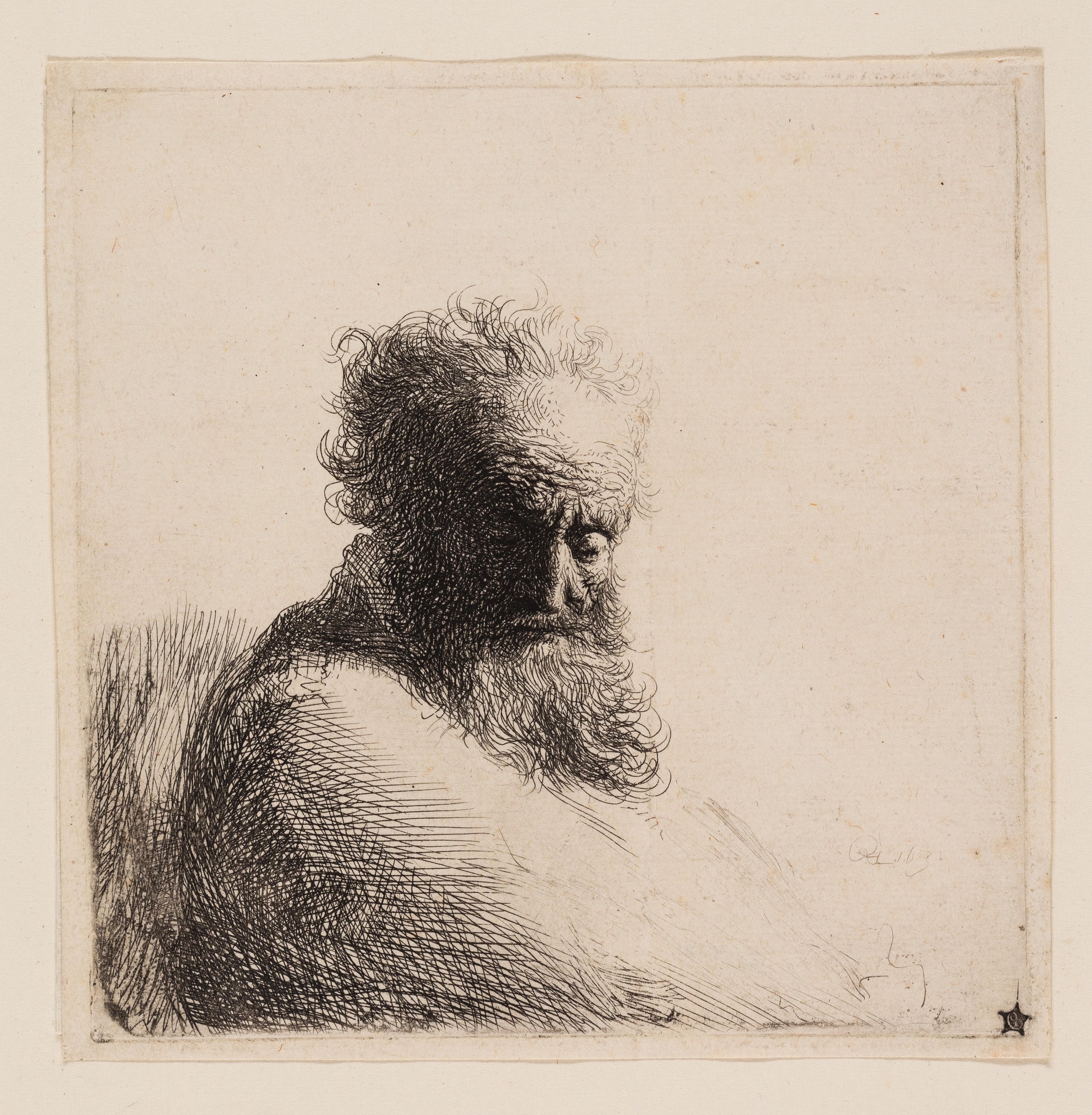
Rembrandt van Rijn:
Bust of an Old Bearded Man, Looking Down,
Three Quarters Right (1631)
"I imagine that I am watching for it."
It's been a tough week here in old Lake Woebegone, or so Garrison Keillor would have said, starting another in a decades-long weekly update from his fictional hometown on the prairie. He and his Prairie Home Companion radio program long ago left my Saturday afternoons, but it was a staple while it persisted—little remains of much of my experience. I retain more writing than I seem able to manage and a few relatively scant memories. I took very few pictures, opting for the primary experience rather than the experience of attempting to capture that experience. Shifting my focus toward Publishing, the challenges seem overwhelming. I find myself Averting my attention from the full ramifications of my fresh choice. I deliberately avoid trying to see the whole expanse before me. I can barely deal with whatever's right before me. I do not need the complications a panoramic perspective provides.
Averting seems like a minor art form, yet still a definite skill.
HelpAsk
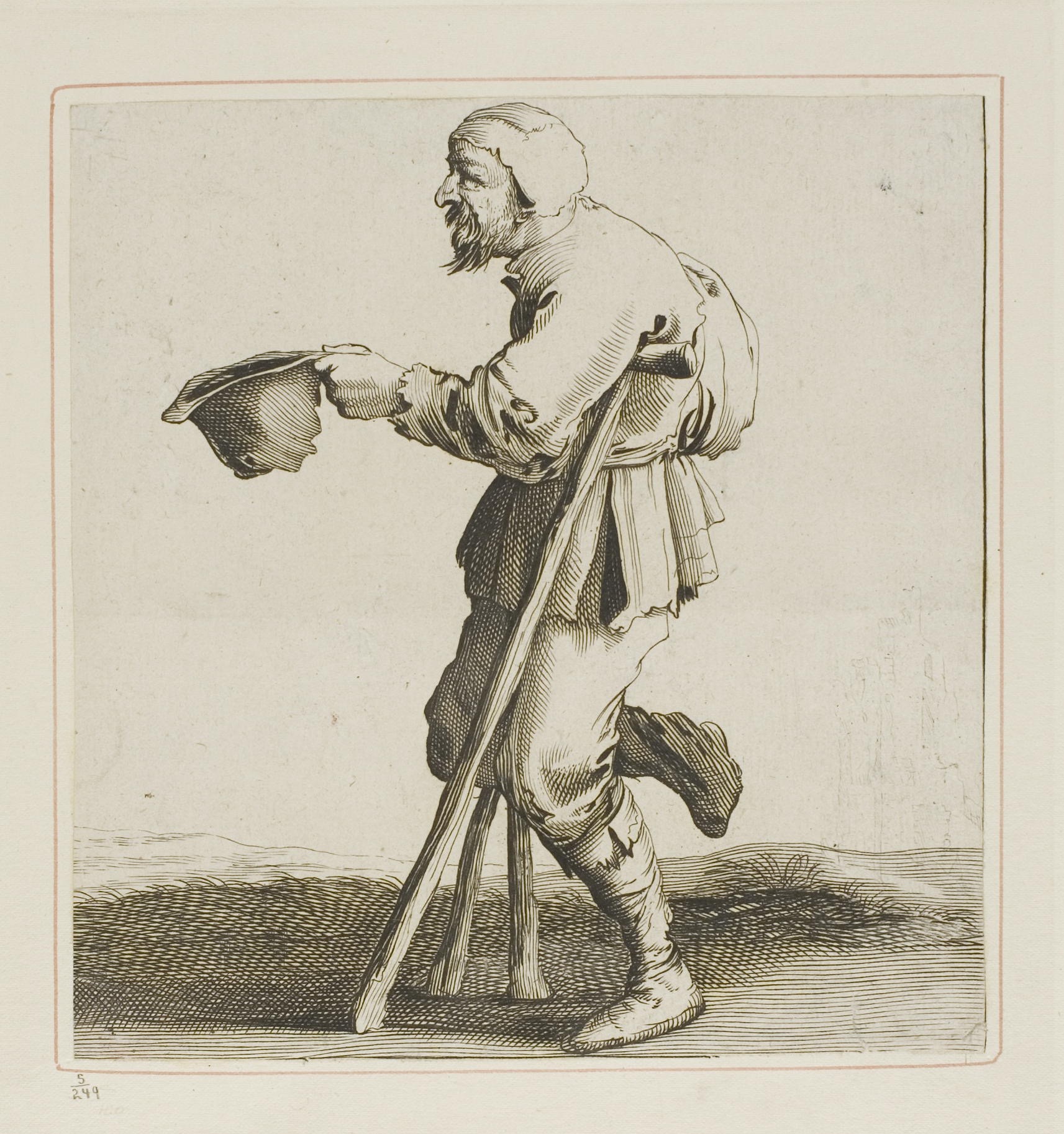
Pieter Jansz Quast: Lame Beggar Asking for Alms,
from T is al verwart-gaern [It’s already confusing]
(not dated-early 17th Century)
" … continue into the thoroughly unforeseeable future."
If Publishing differs from writing because it requires a community's effort, an early shift for the aspiring-to-publish writer must include the HelpAsk. This act does not resemble asking for help, for our publisher nee writer can't yet form proper requests. He does not know what the difficulty might be. He suffers from symptoms and knows it. He further lacks even the expertise to properly select an expert to help. He might start 'asking around' only to find that he's surrounded by helpers whose capabilities he never suspected. One, then another, will disqualify themselves for the best of excuses. The community first grows to include the self-rejected, though these people help, too, for their refusals help narrow the search and might even render the seeker a tad less clueless, though he's unlikely to feel any improvement. He comes to understand that he's more lost than he imagined, that he'd been inhabiting a kind of fantasyland where a sense of competence served as the common experience. He grows less competent by the minute and feels this.
It would be perfectly acceptable to reject the call to this adventure.
FamiliarTerritory
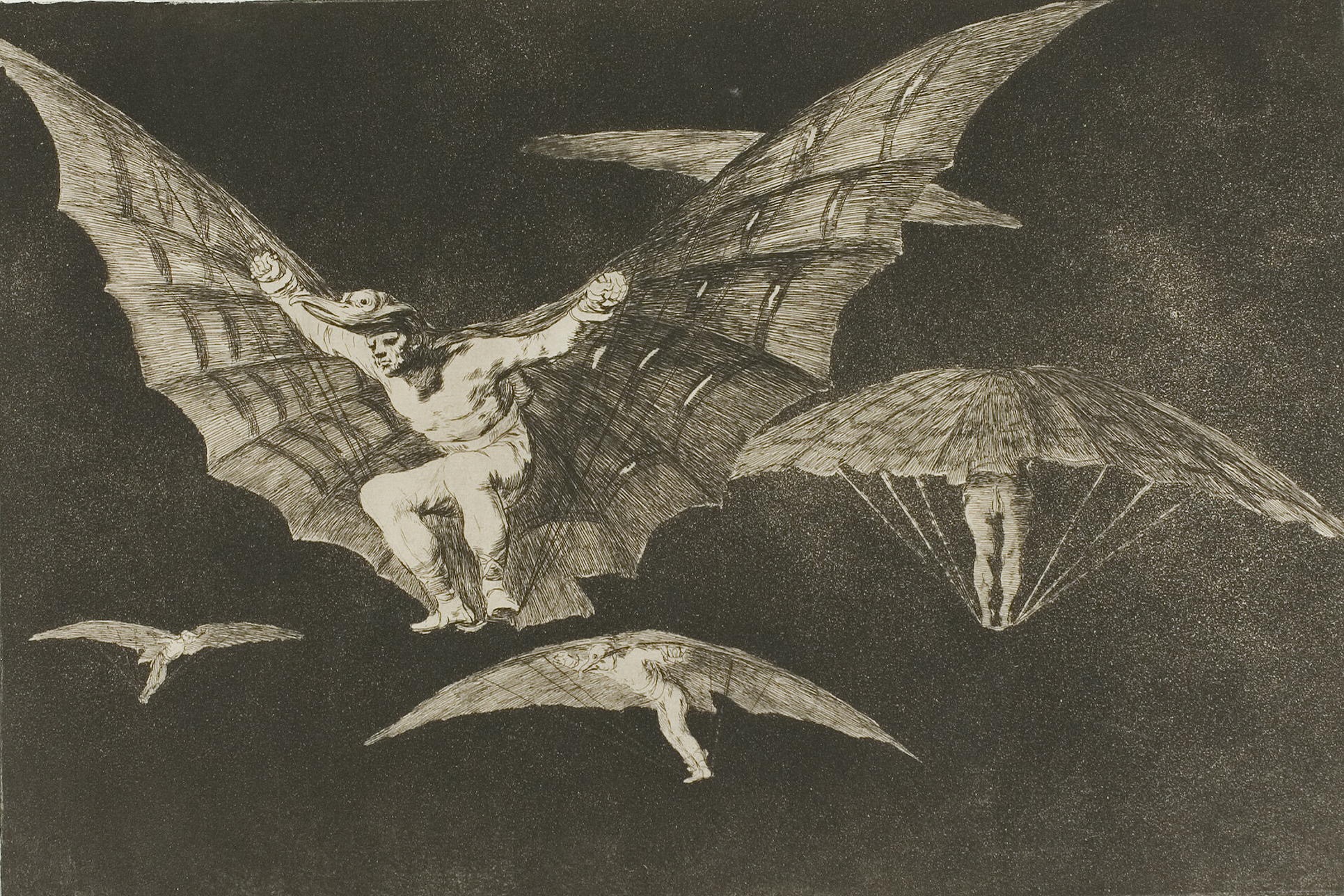
Francisco José de Goya y Lucientes:
A Way of Flying, from Disparates [Nonsense],
published as plate 13 in Los Proverbios [Proverbs]
(1815–17, published 1864)
"This lost feeling surely shows progress."
My blog's not working again this morning, an all-too-familiar start to my day. I'll write my daily missive in the blog software's word processor anyway, out of long habit rather than for any rational reason. I inhabit FamiliarTerritory, a Very Late Status Quo Space, a convergence of shortcomings I have been watching closely in on me for a very, very long time. The blog software has been hinting at impending failure for ages. I've been investigating resolutions without making discernible progress. Yesterday, I began a fresh series and stumbled rather badly out of the blocks. I finally successfully posted something to SubStack before spending much of my following morning editing that content, fixing apparently unavoidable errors. SubStack turned out to be just as opaque of an application as my month spent researching it suggested it would be. I should properly be months, if ever, sorting out details on that platform.
It always starts like this.
Authoring
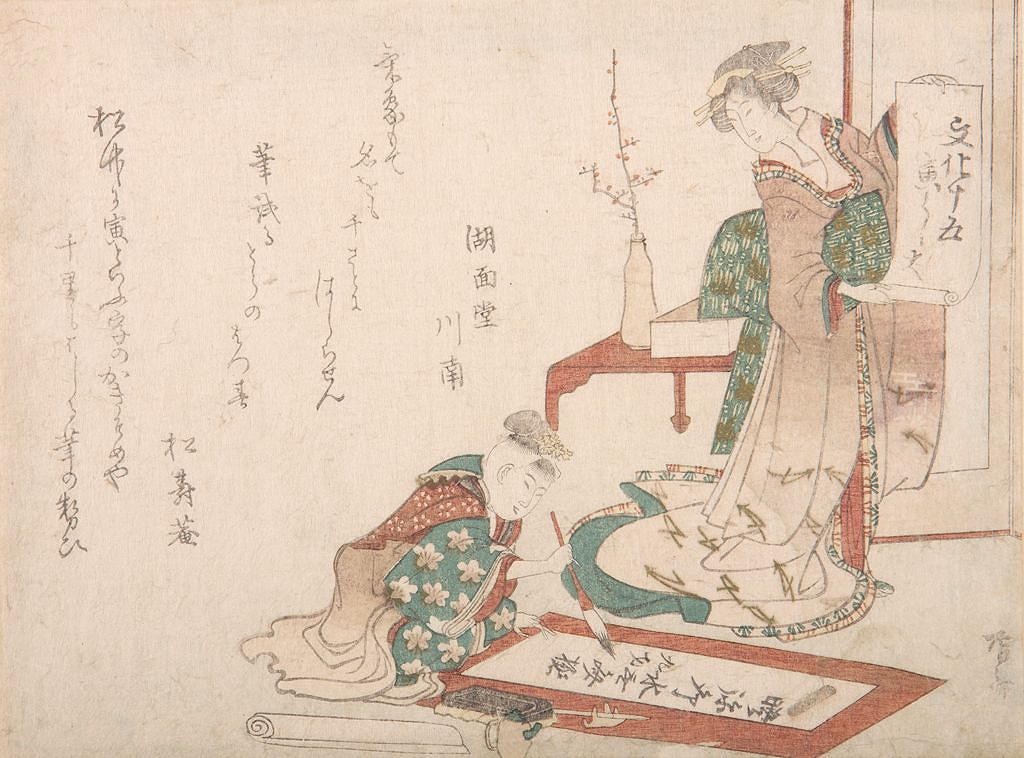
Ryūryūkyo Shinsai:
Boy Writing (Edo period, 1615-1868)
"Welcome along for the ride!"
I became a professional writer thirty years ago, when I sold an article to a periodical for a couple of hundred bucks. I've been professing to being a writer ever since, though my brushes with actual publication have been infrequent. This distinction between writing and publishing gets to the heart of Publishing, for an author does much more than just write. Sure, writing's a huge part of the profession, but it amounts to little more than a beginning. While writing can be an isolating undertaking, Authoring's much more social. It requires a community to author anything, however hermit-like the writer's habits. Authoring requires emerging from that shell to engage with a broader world. Any introvert worth his temperament should shudder a little at this prospect.
My writing practice seems unsustainable unless I manage to connect to an output spigot.


